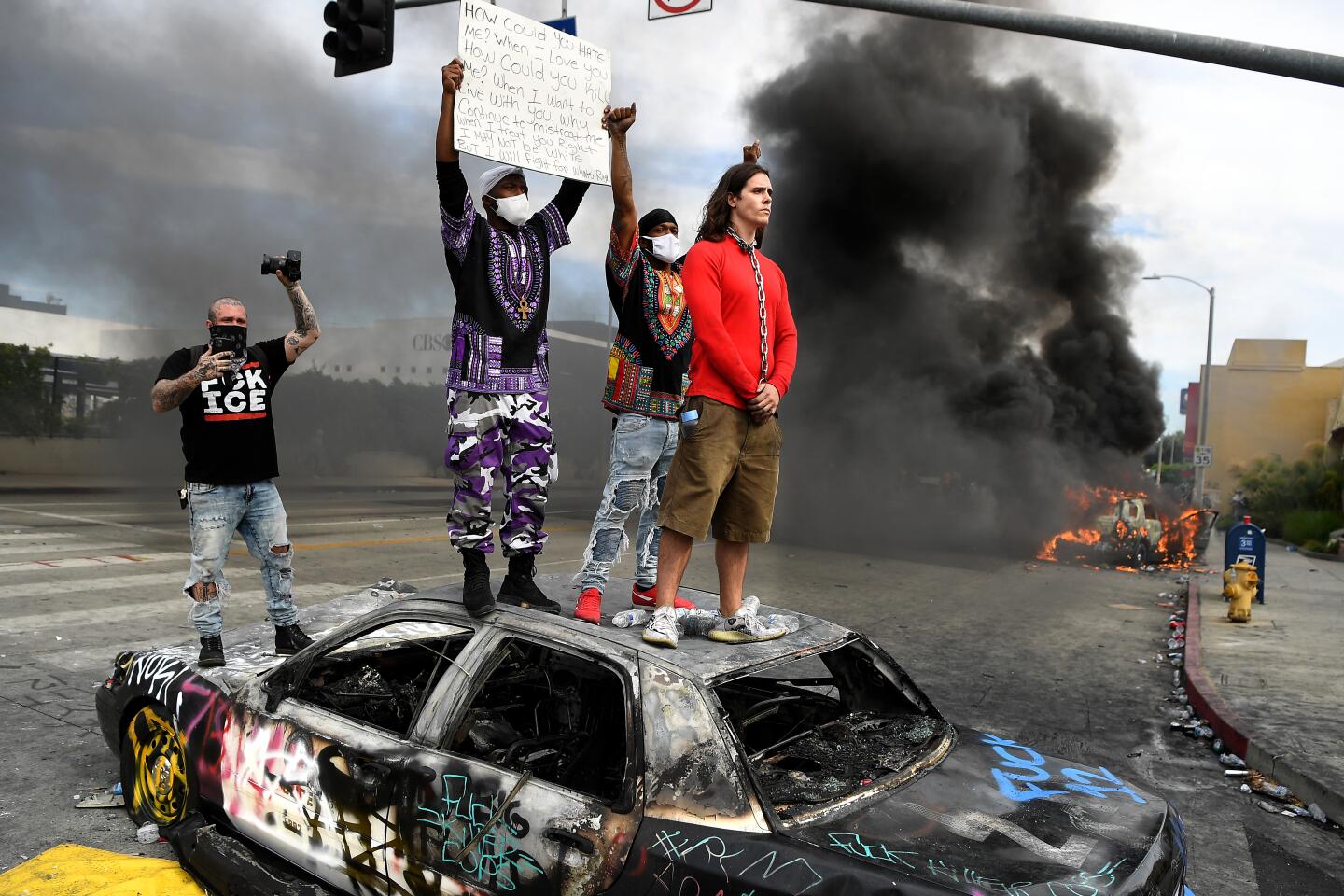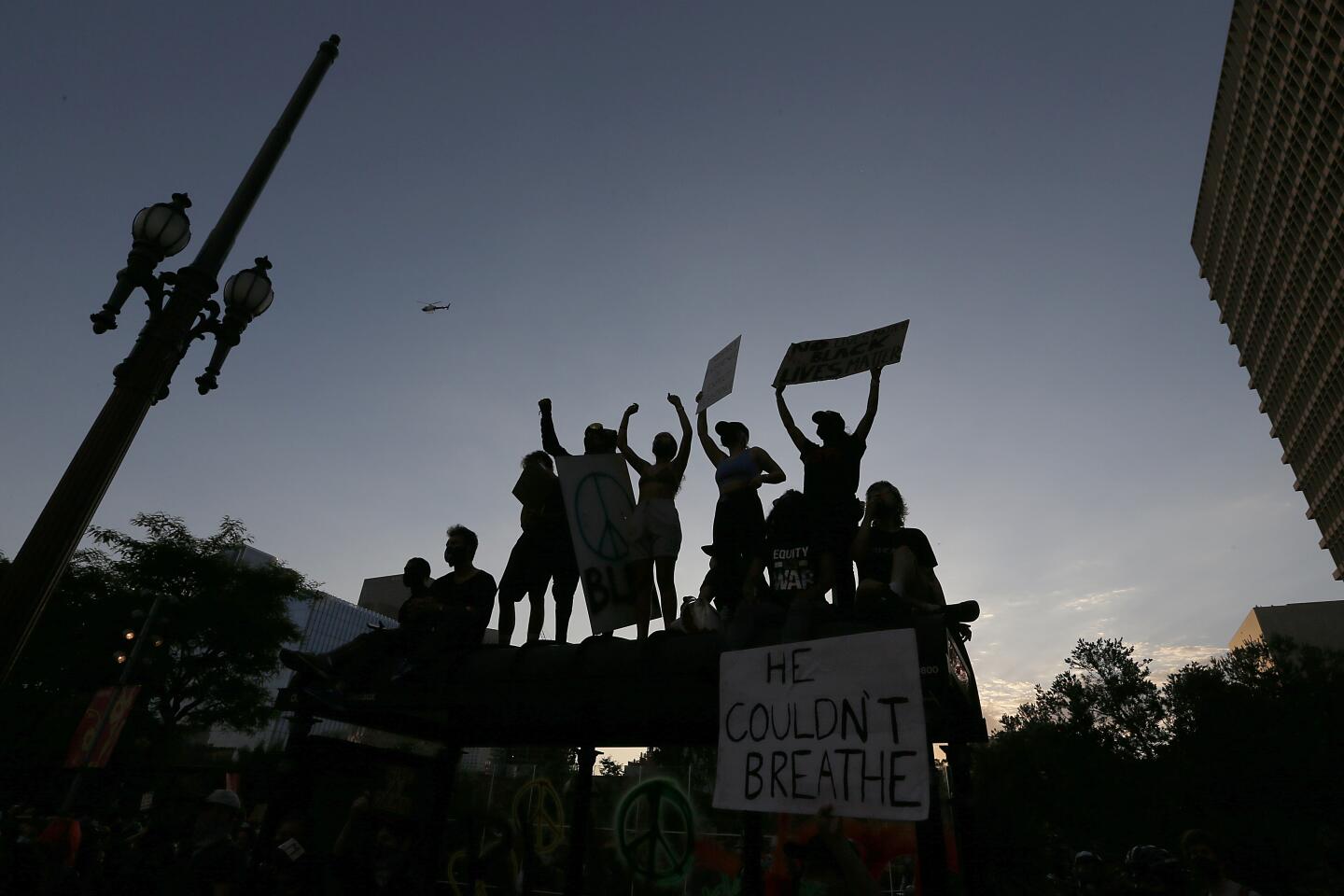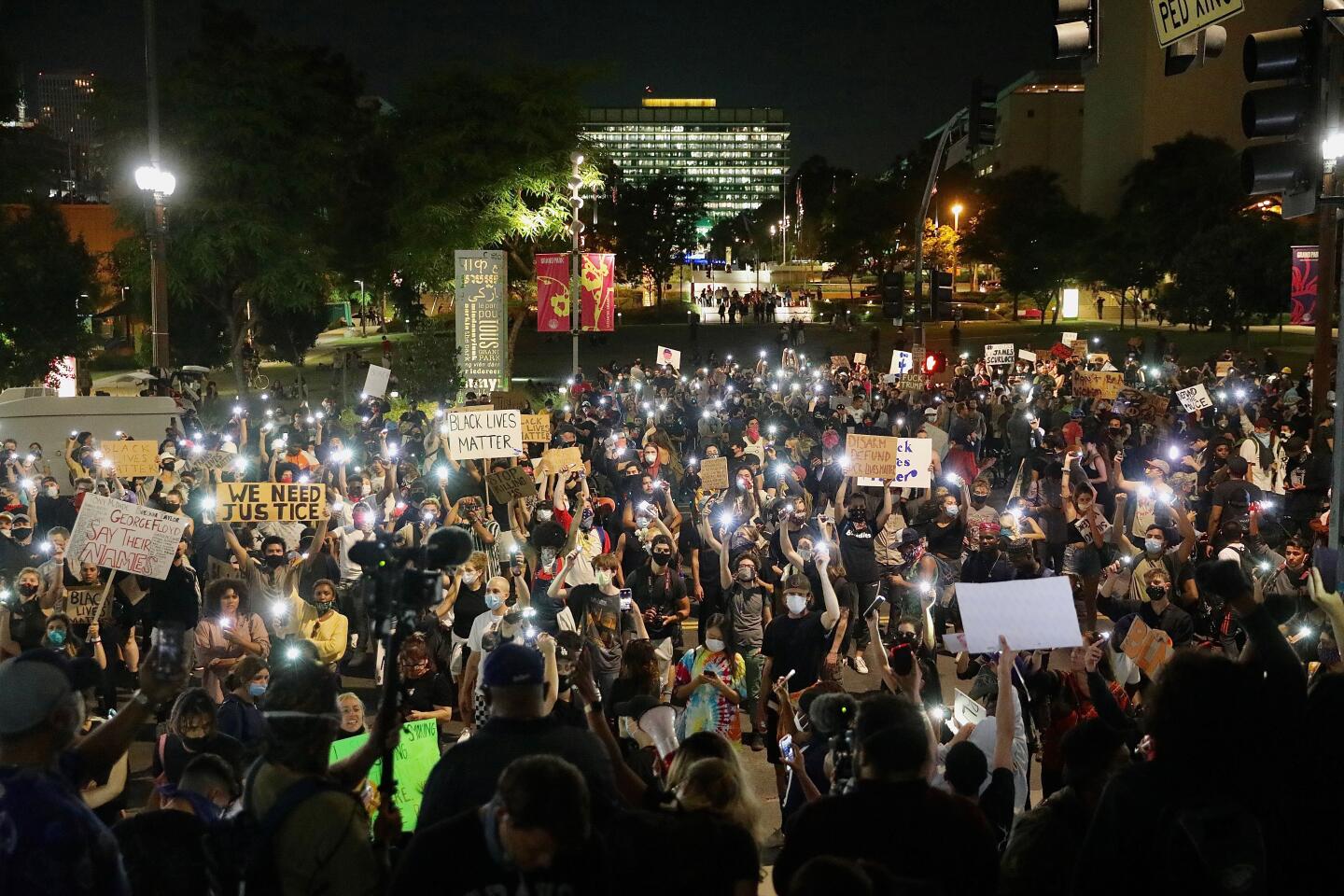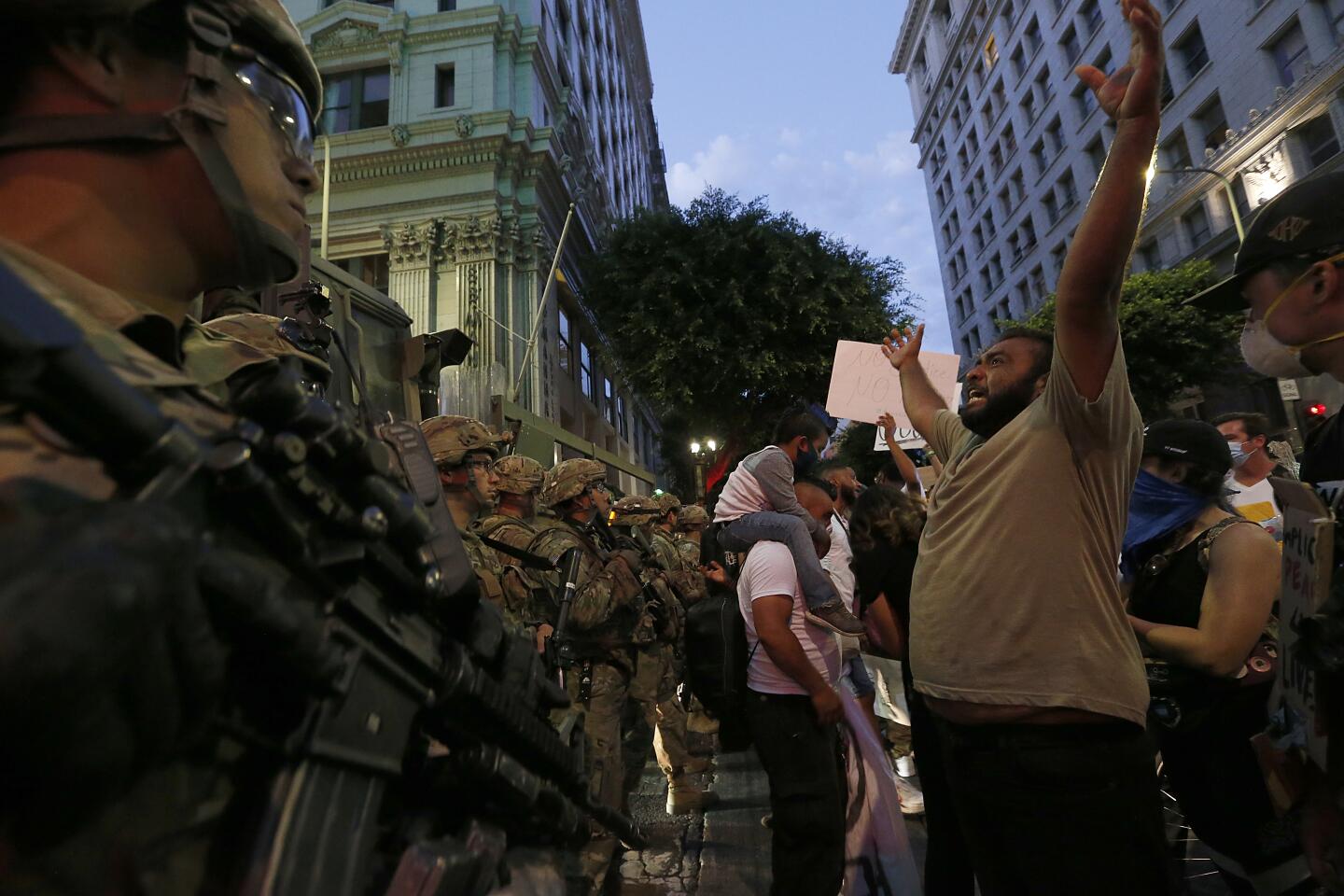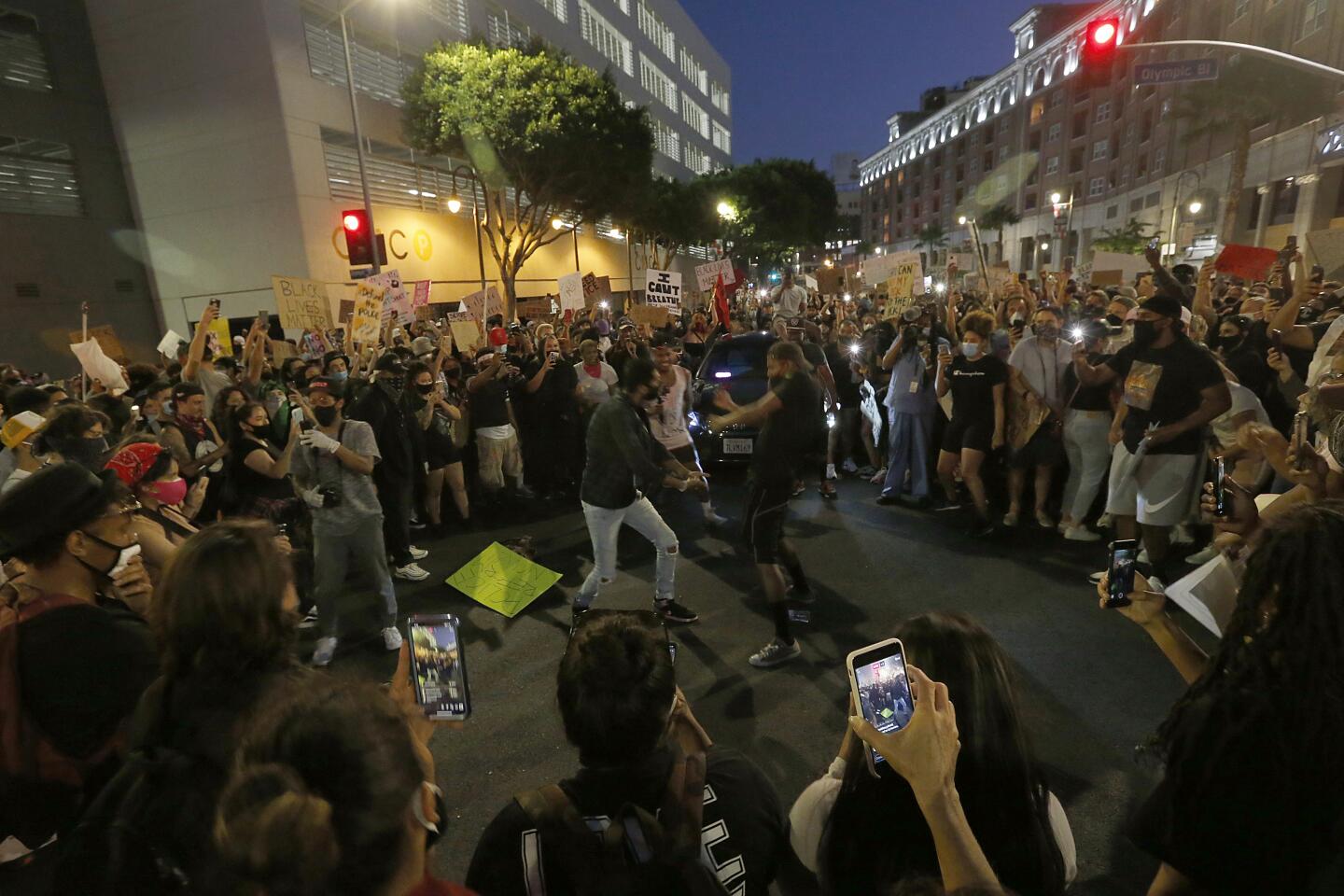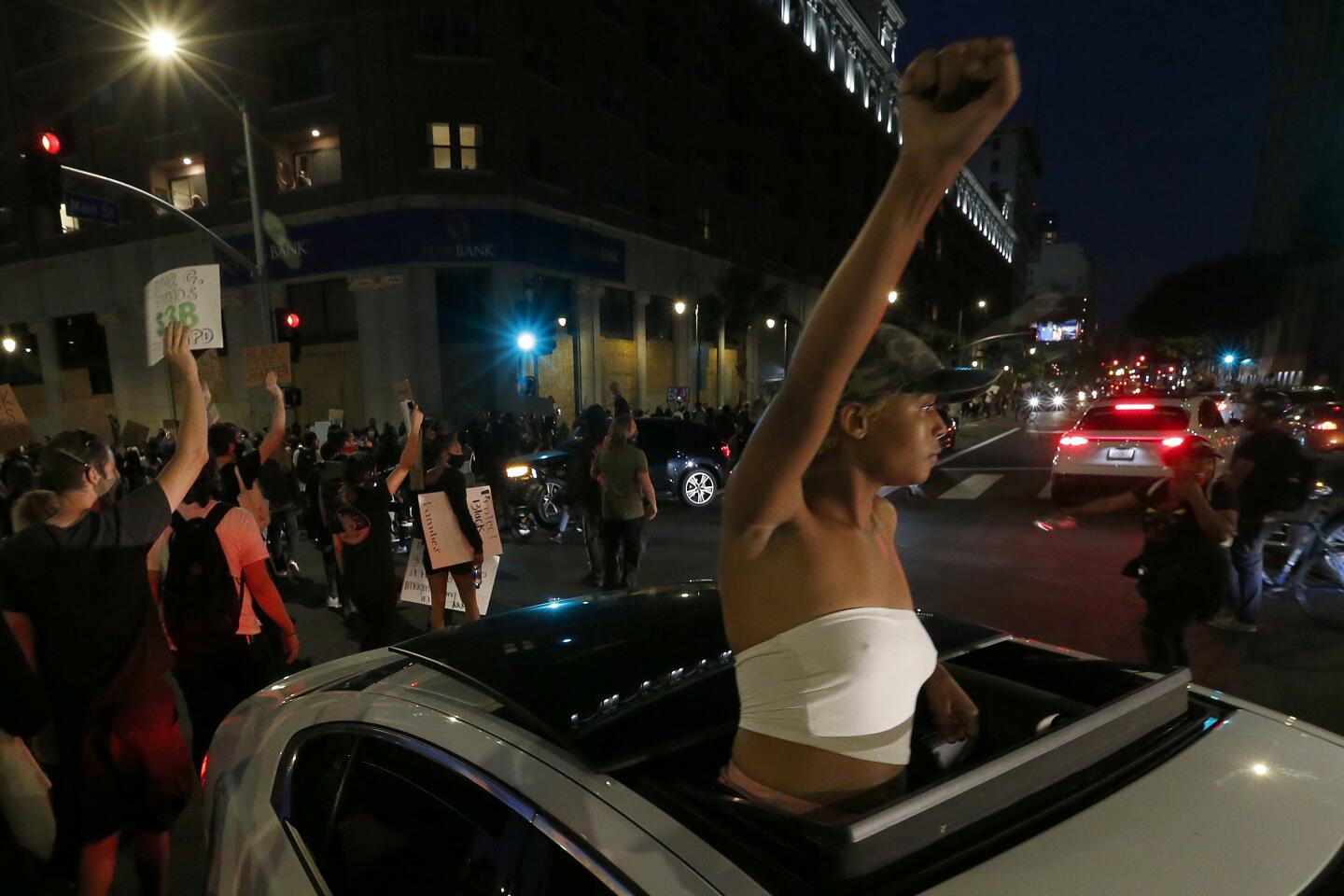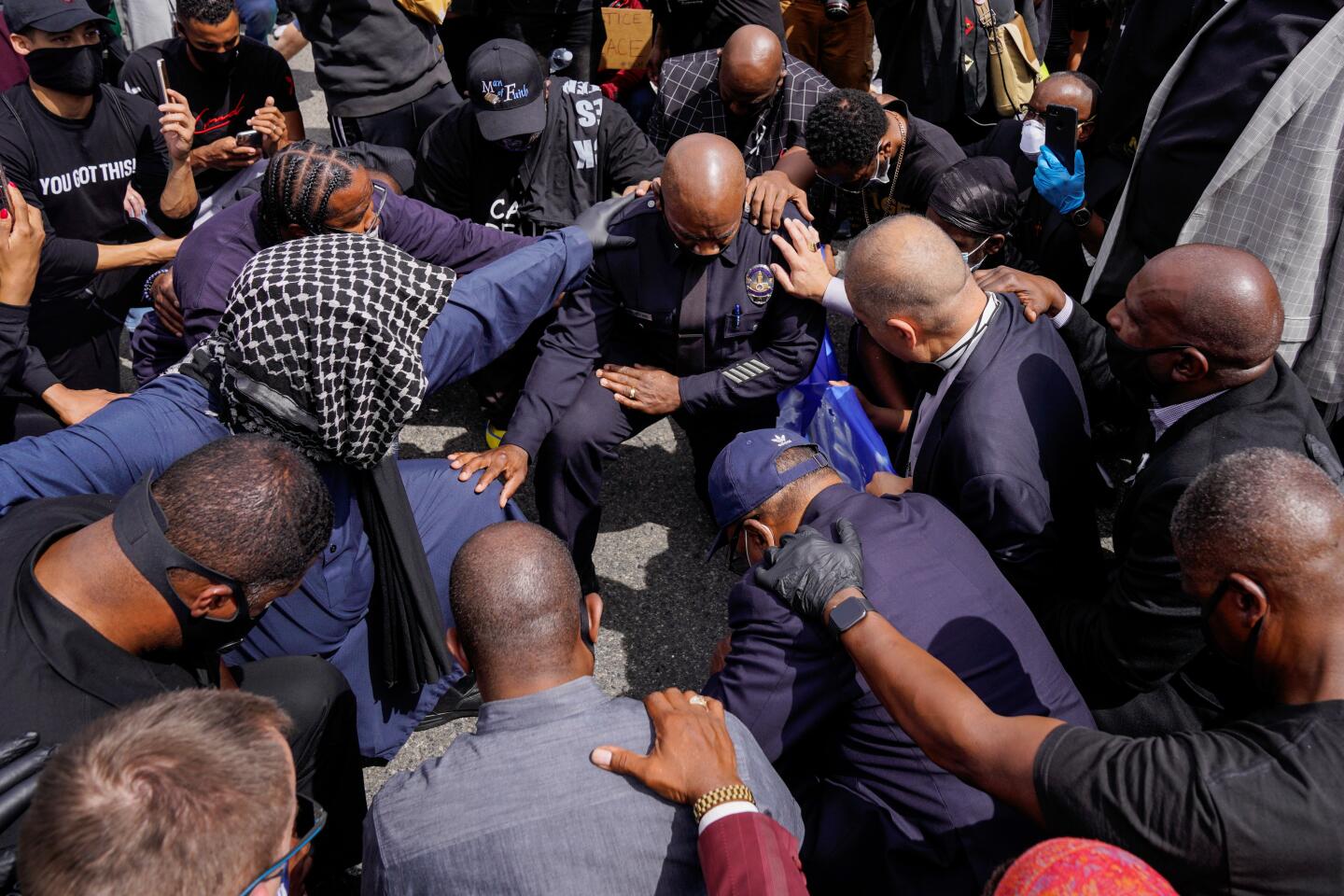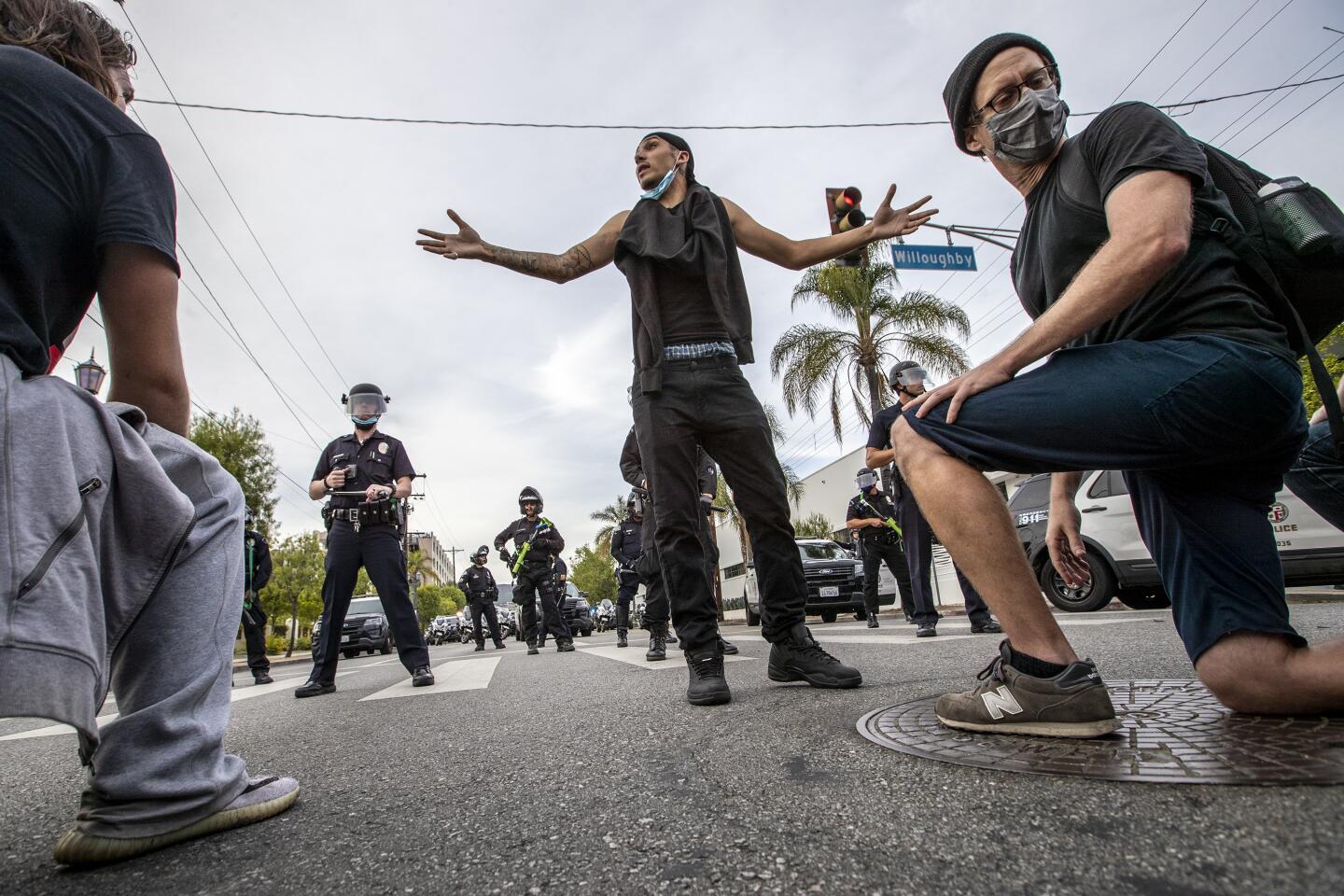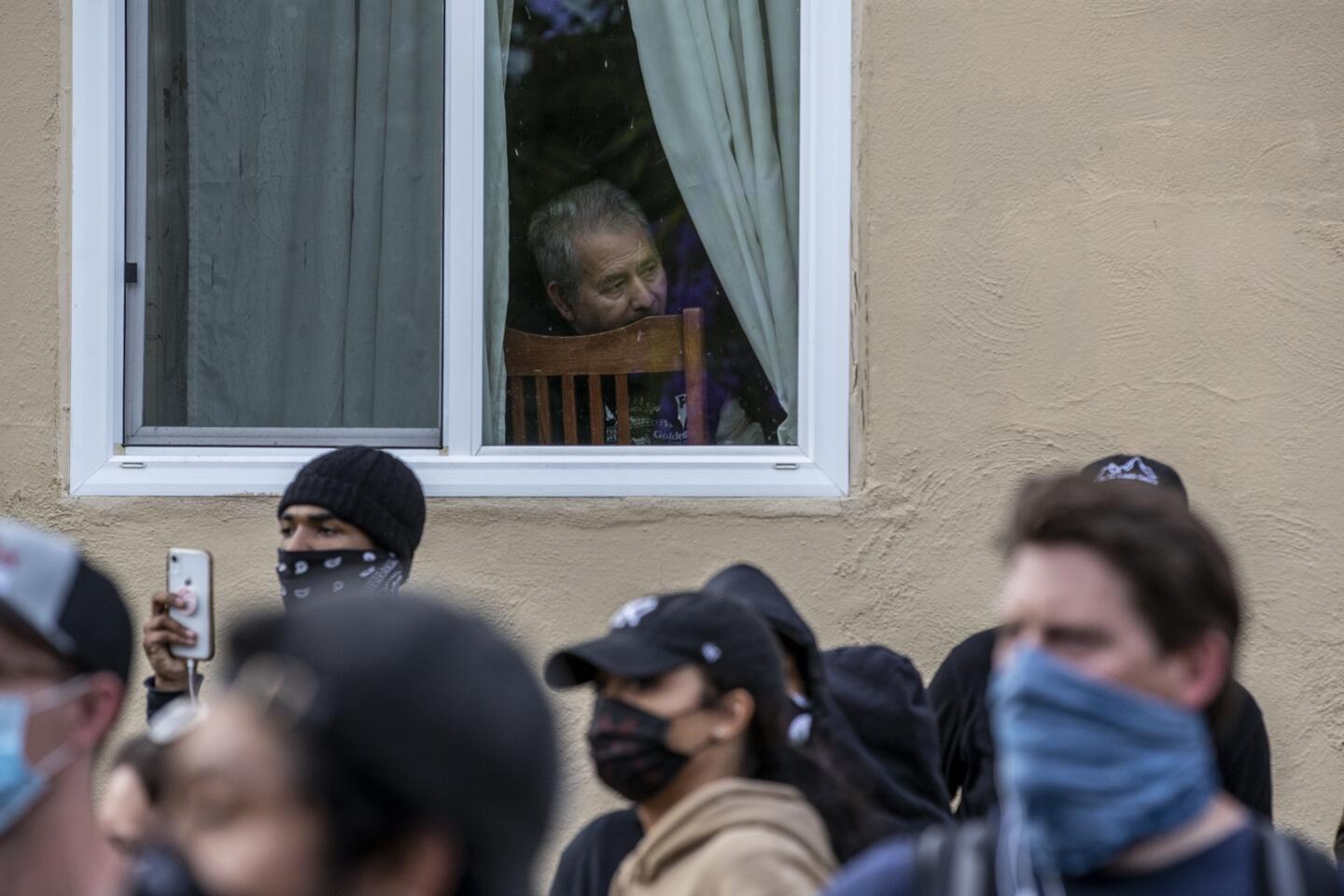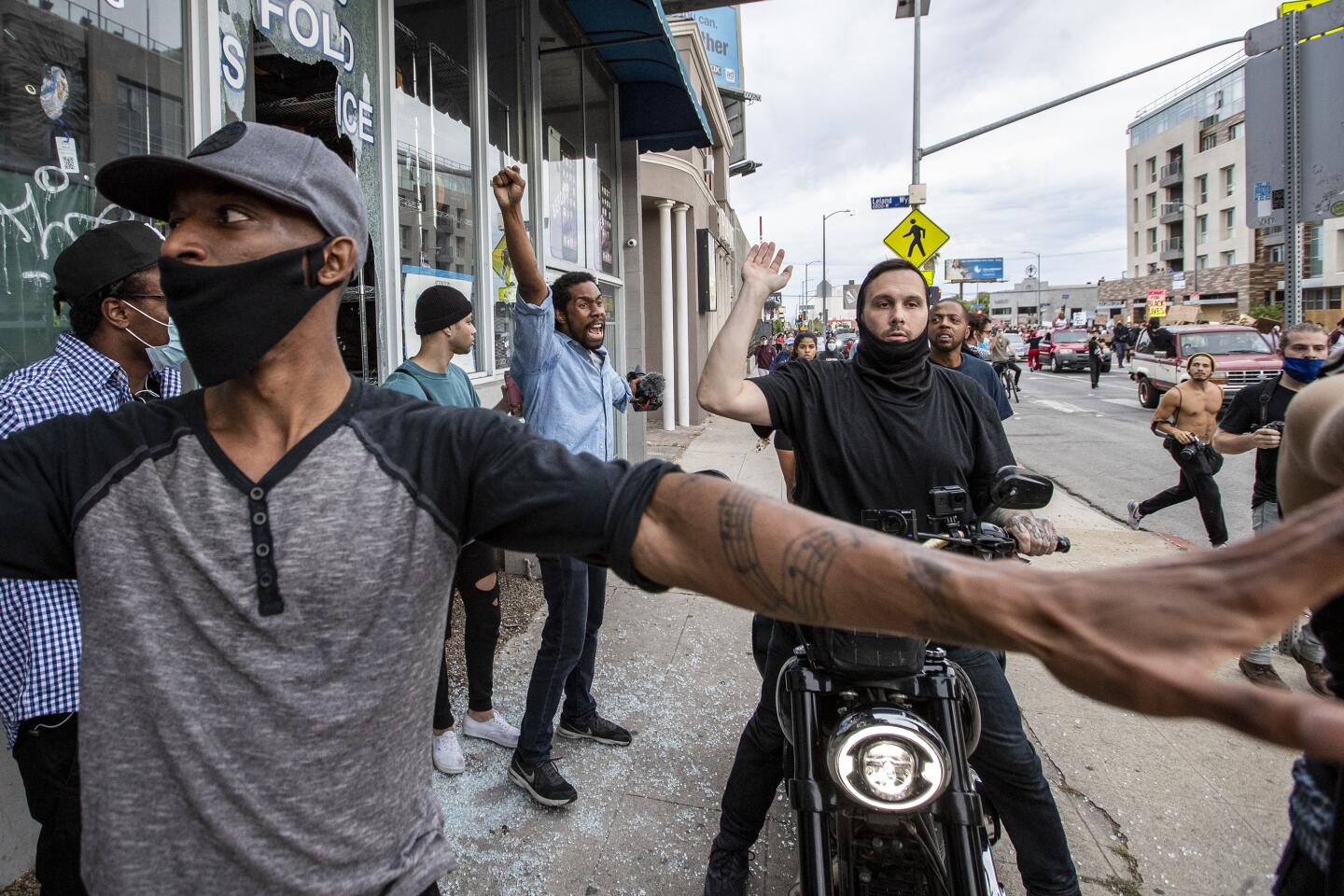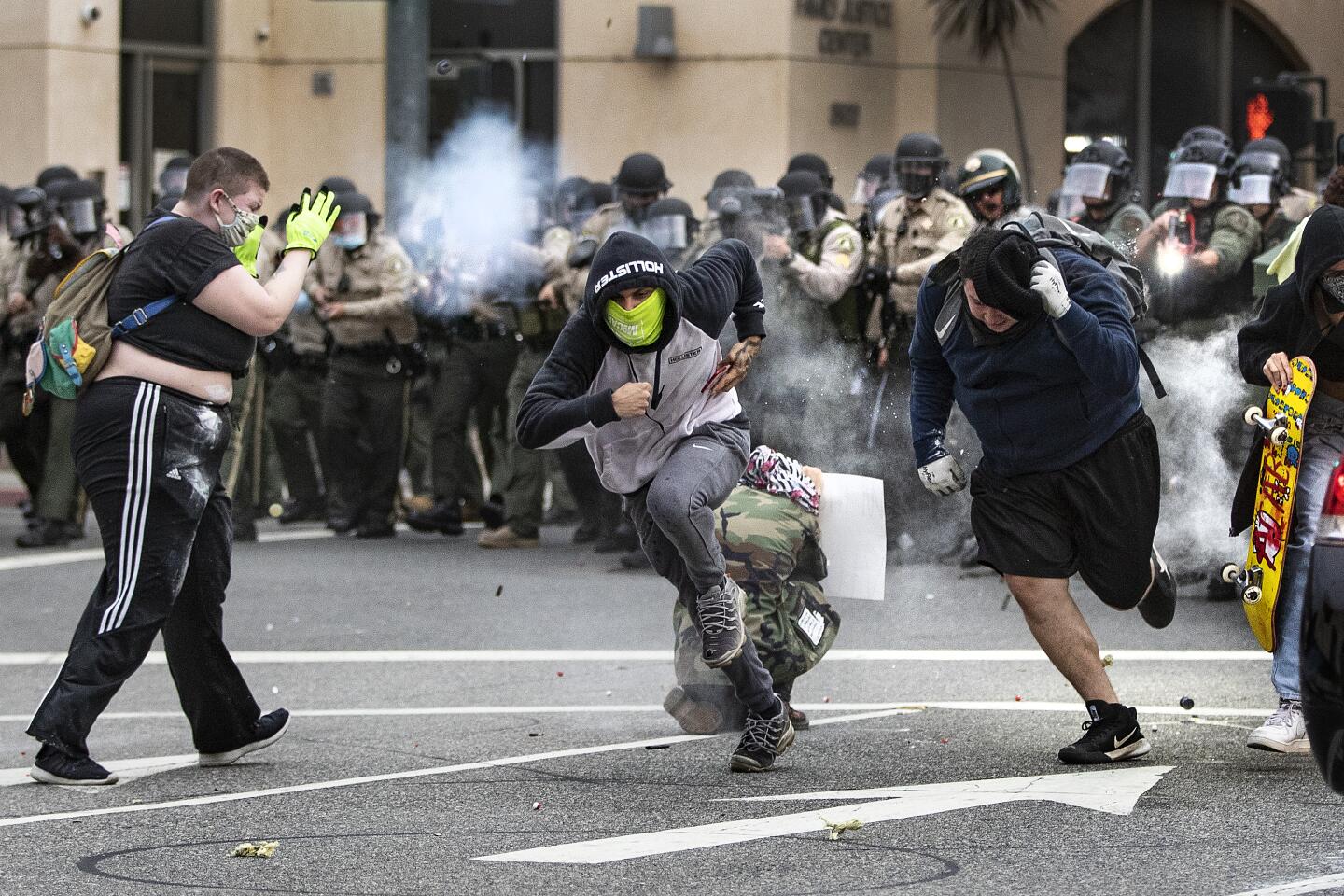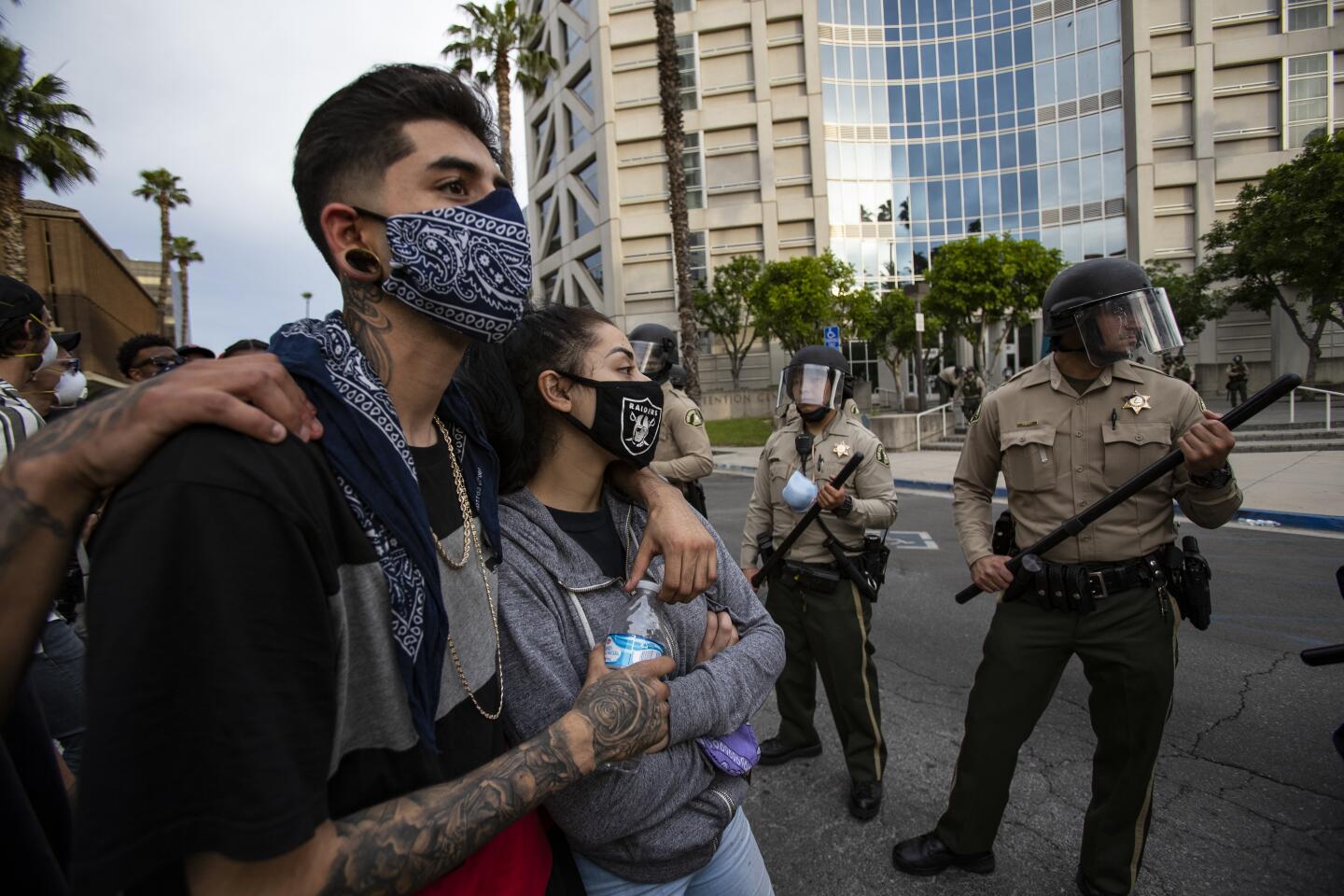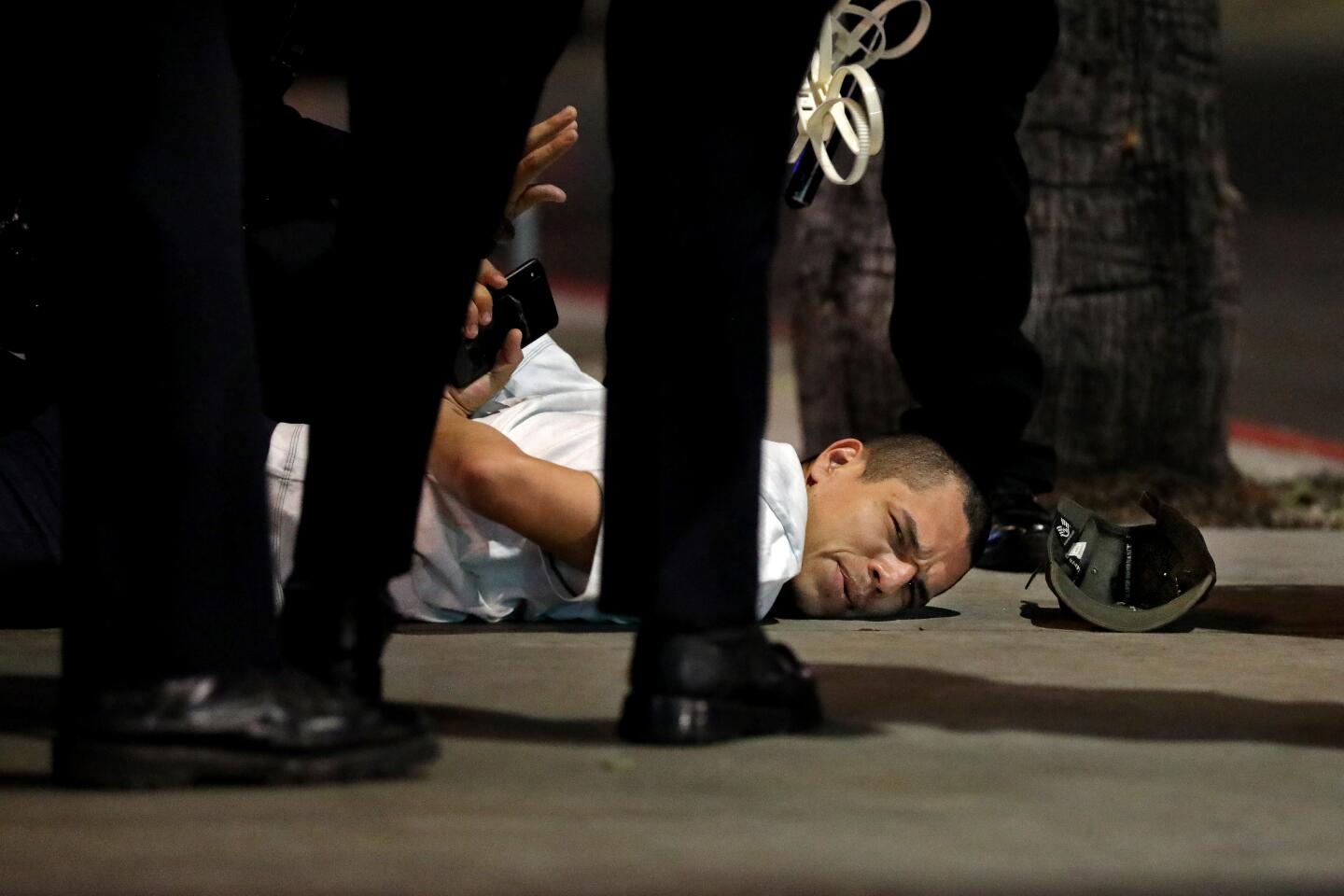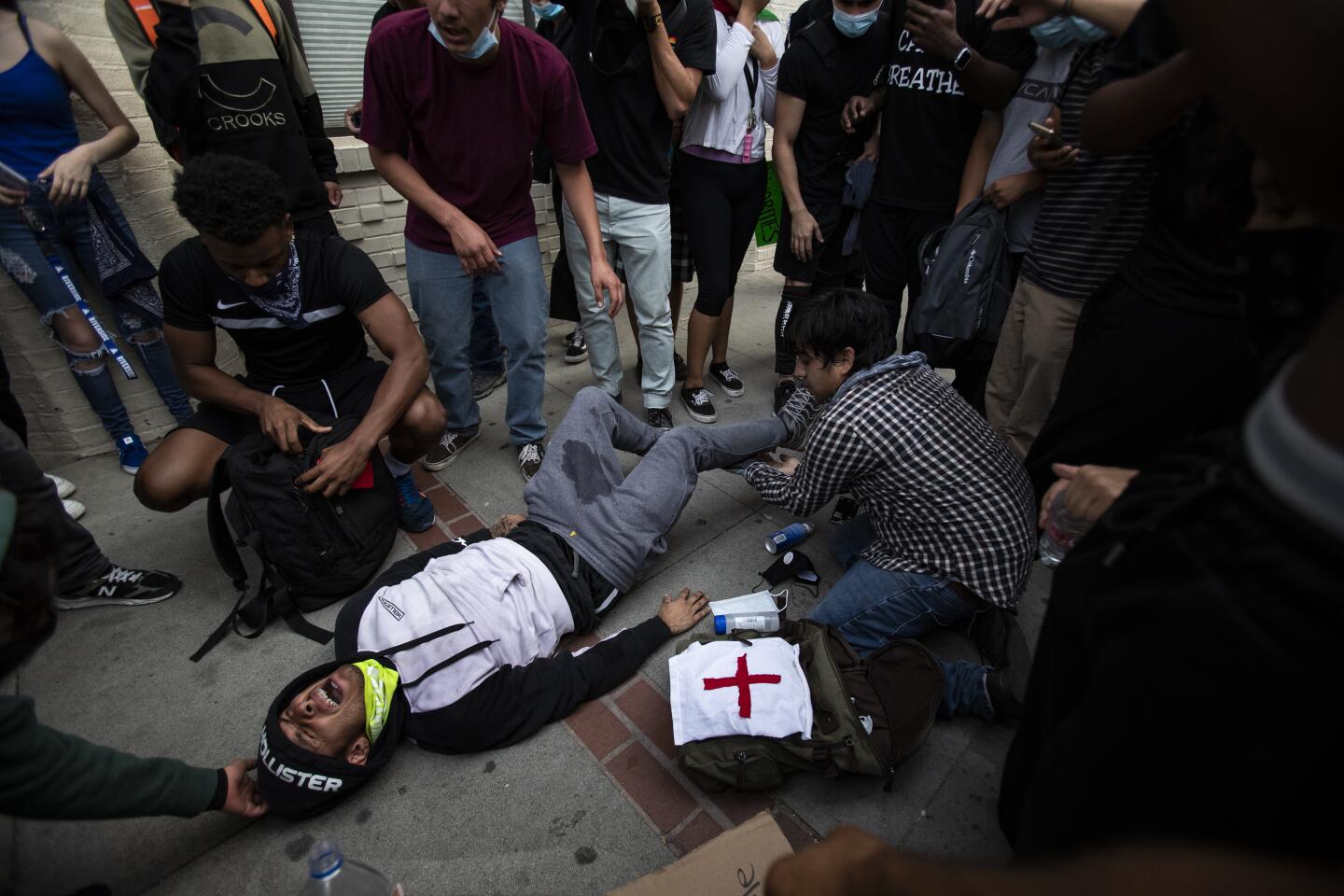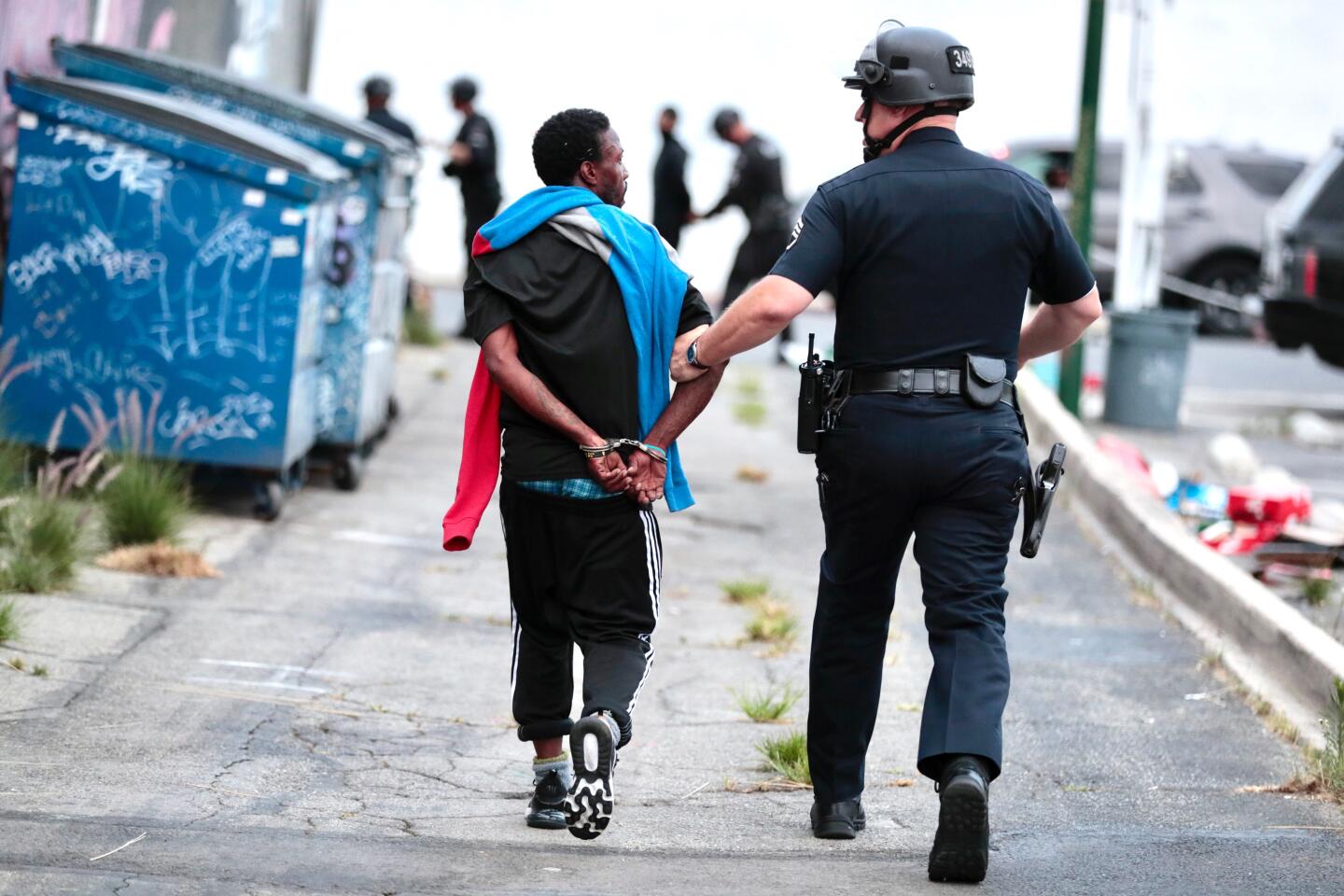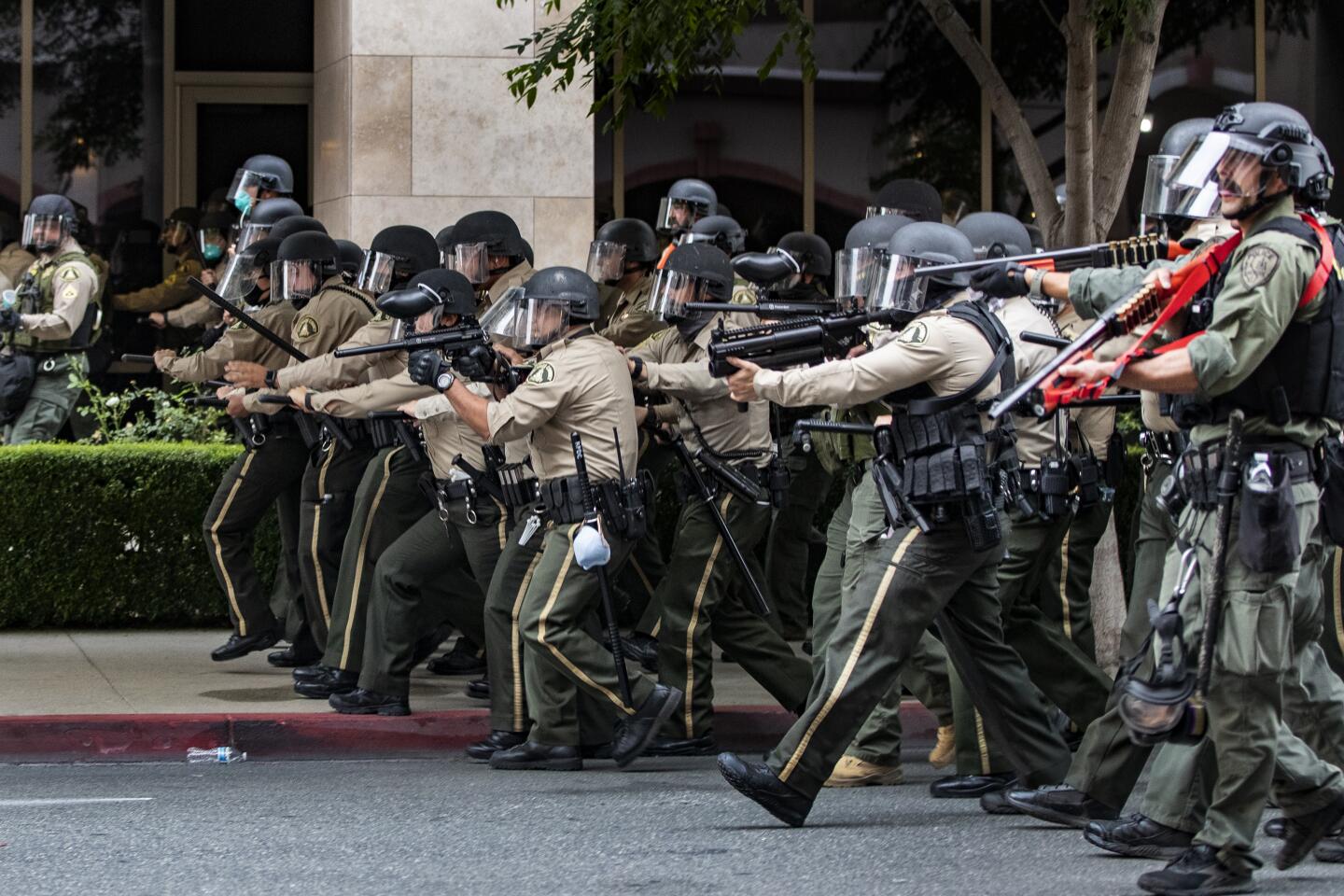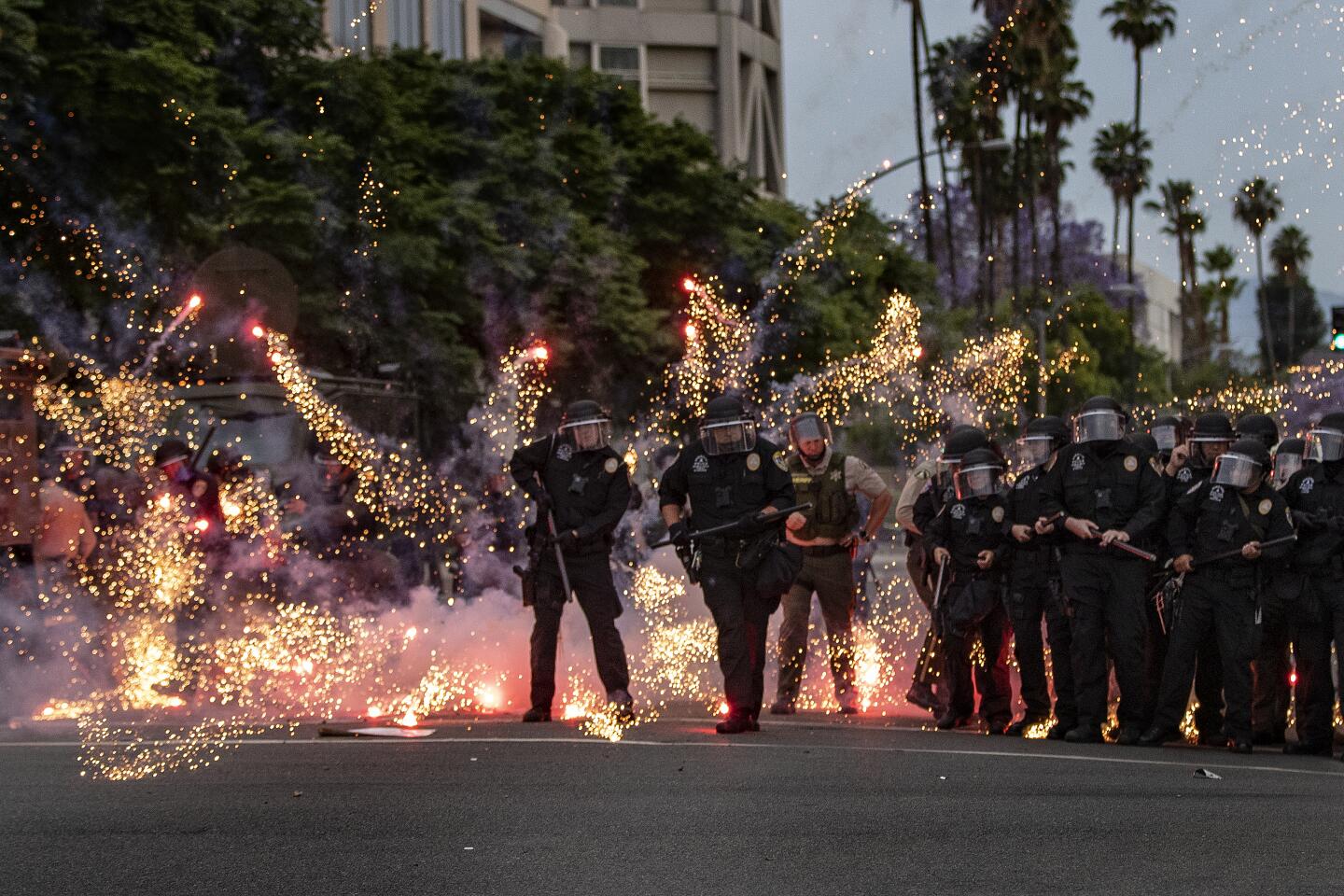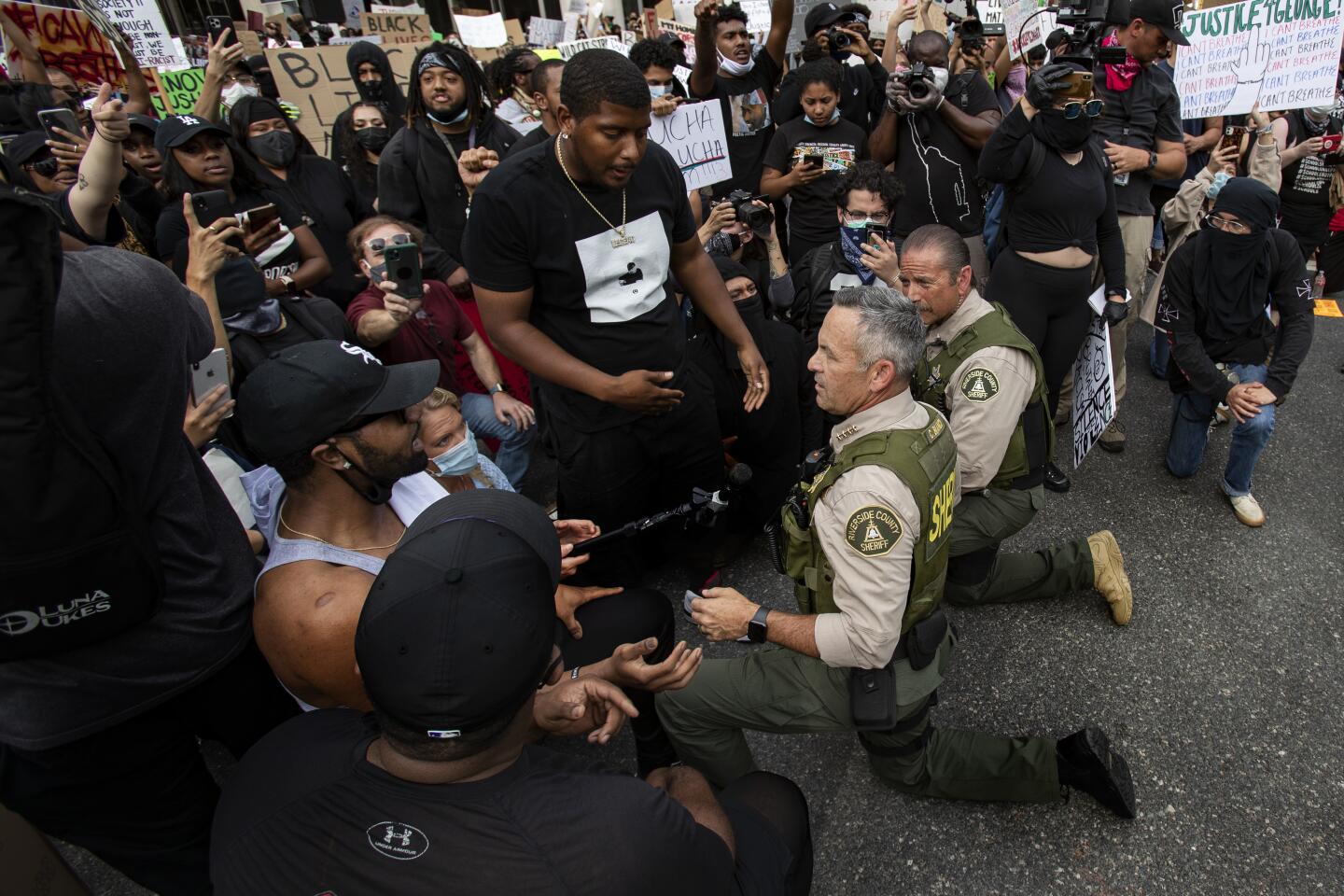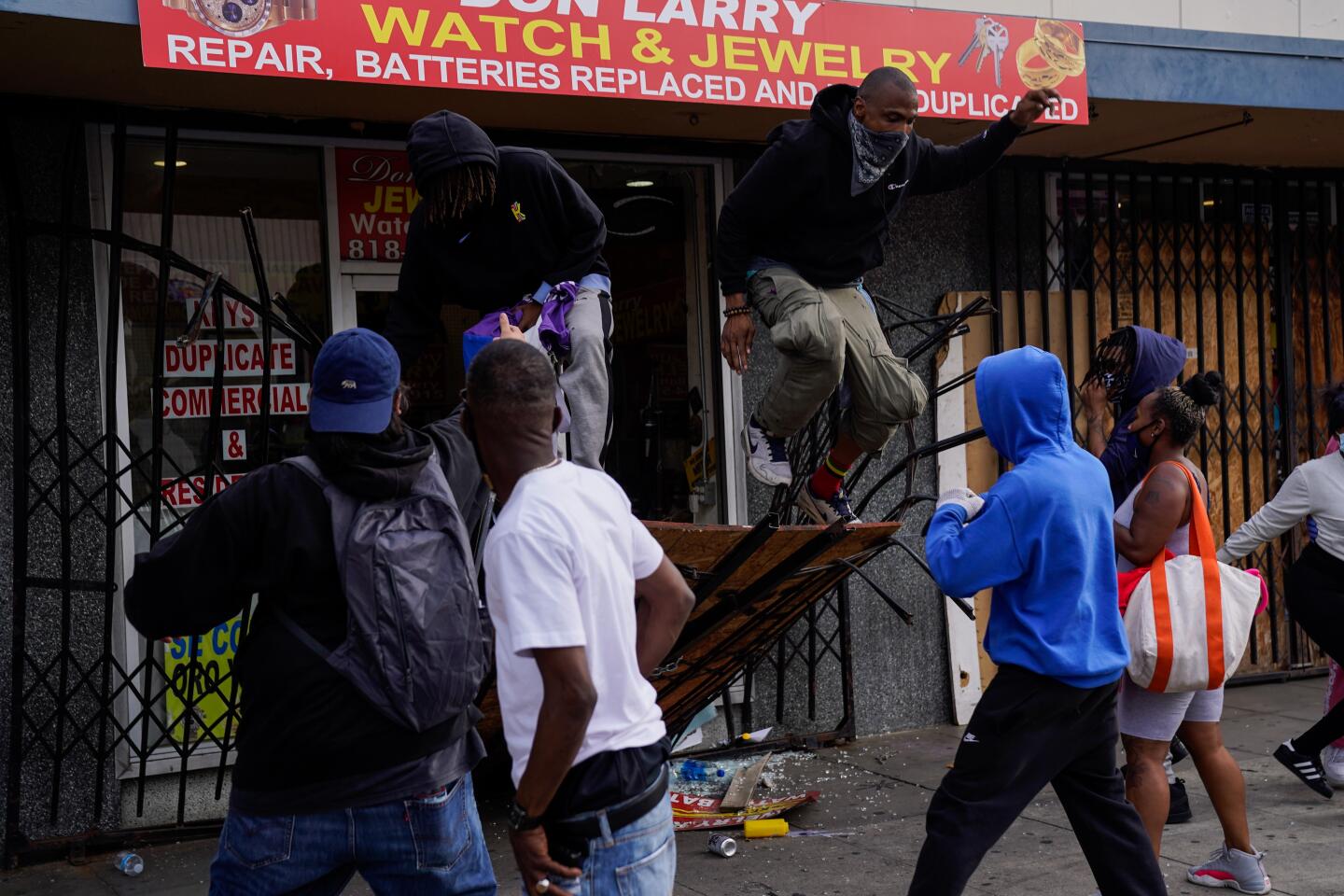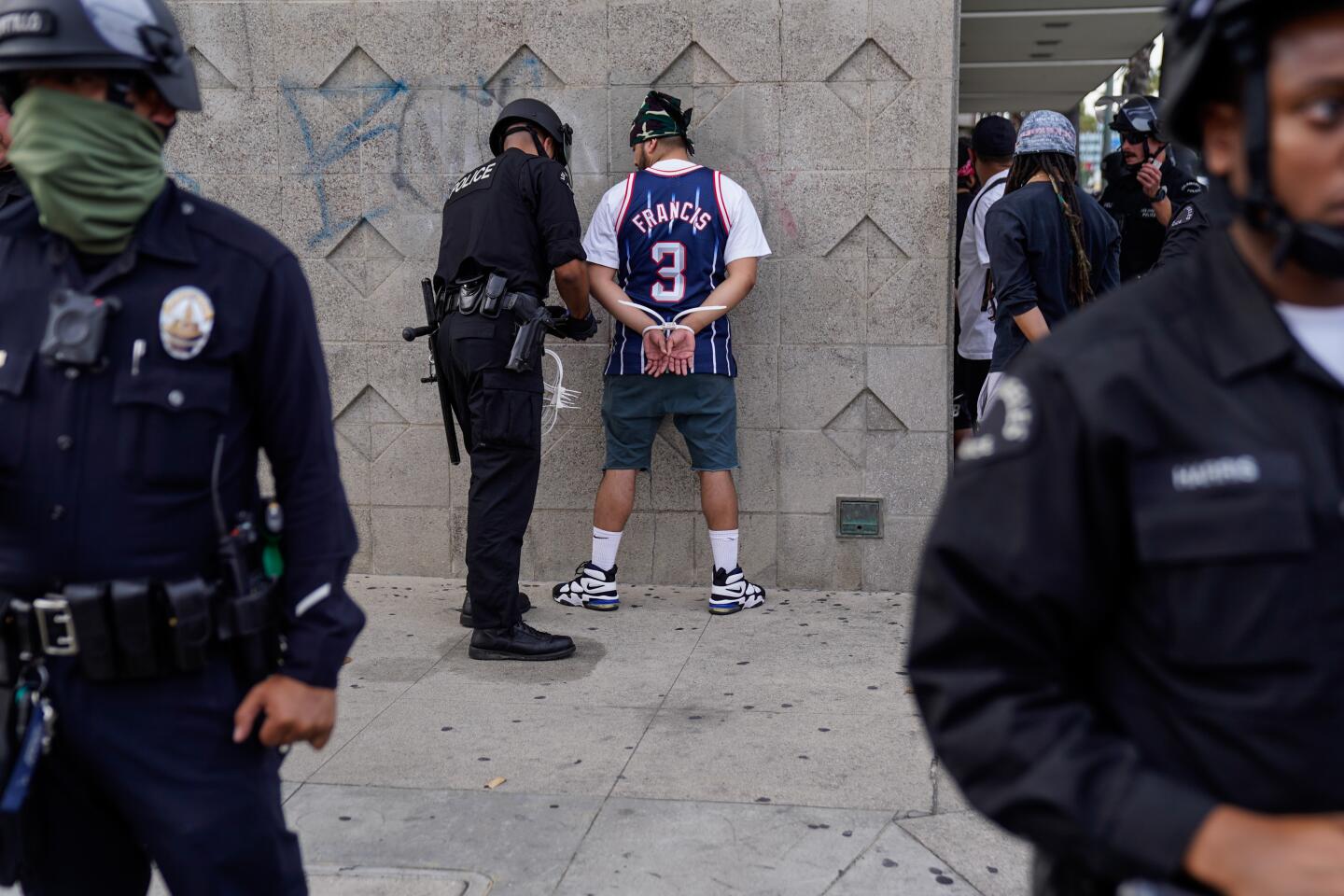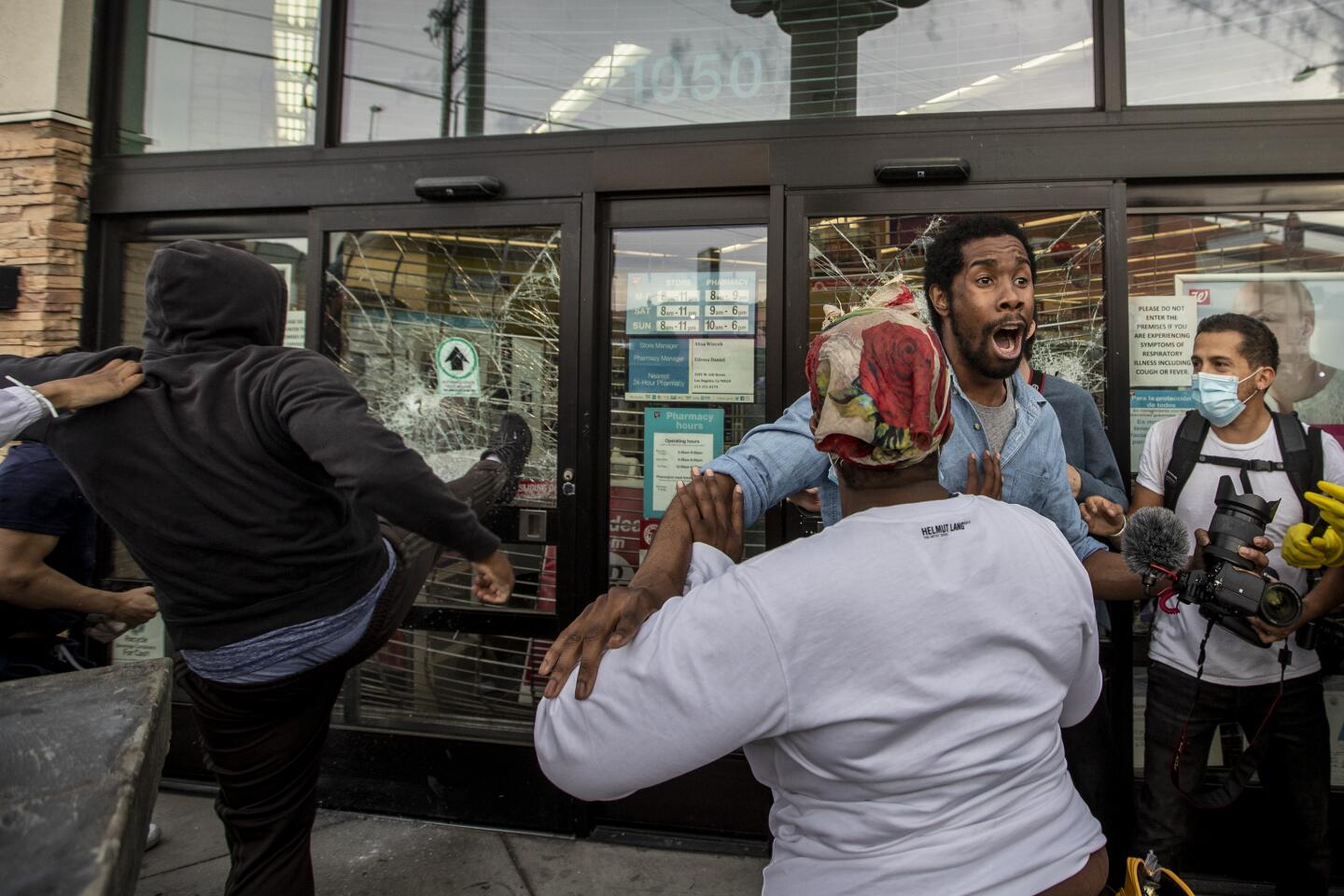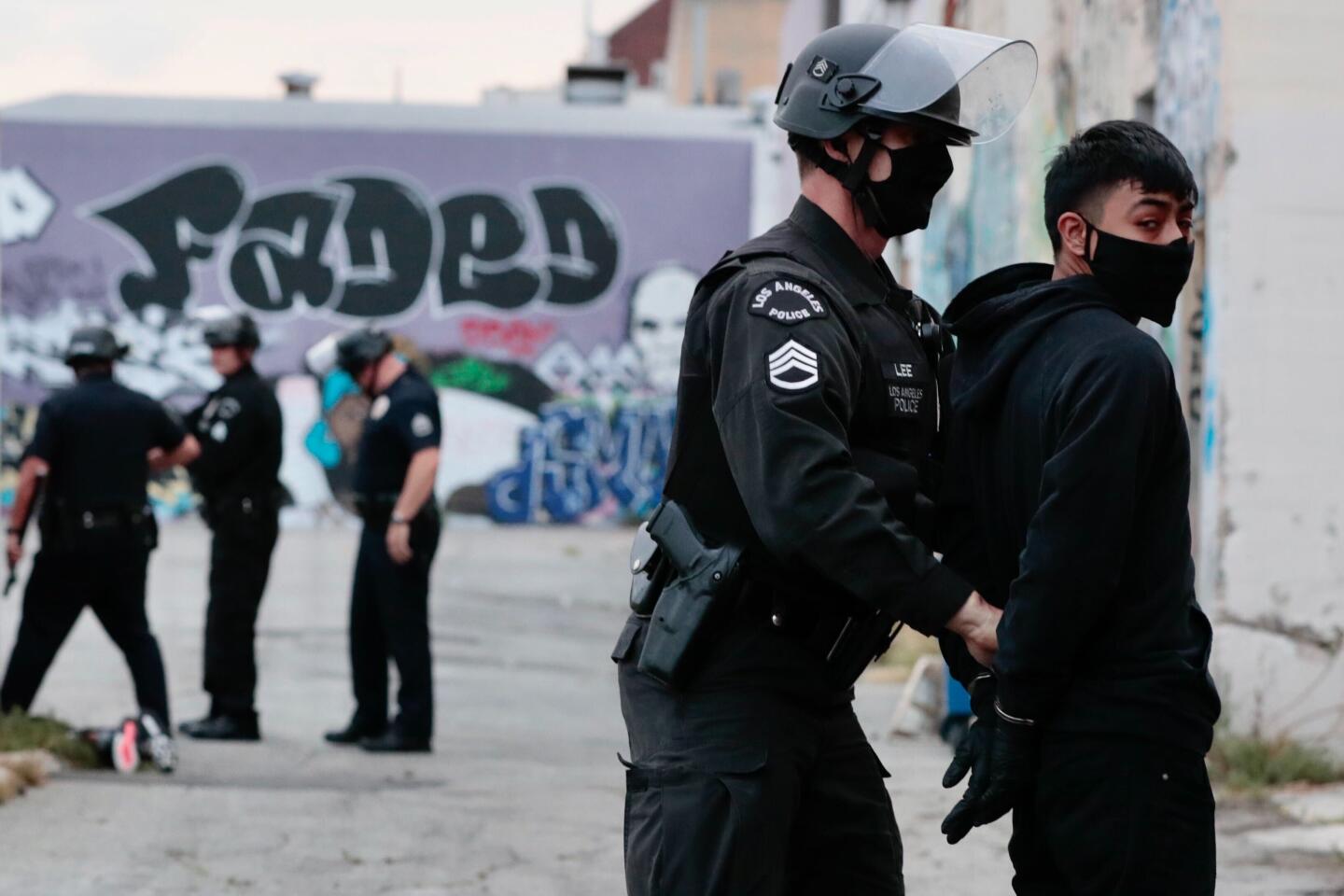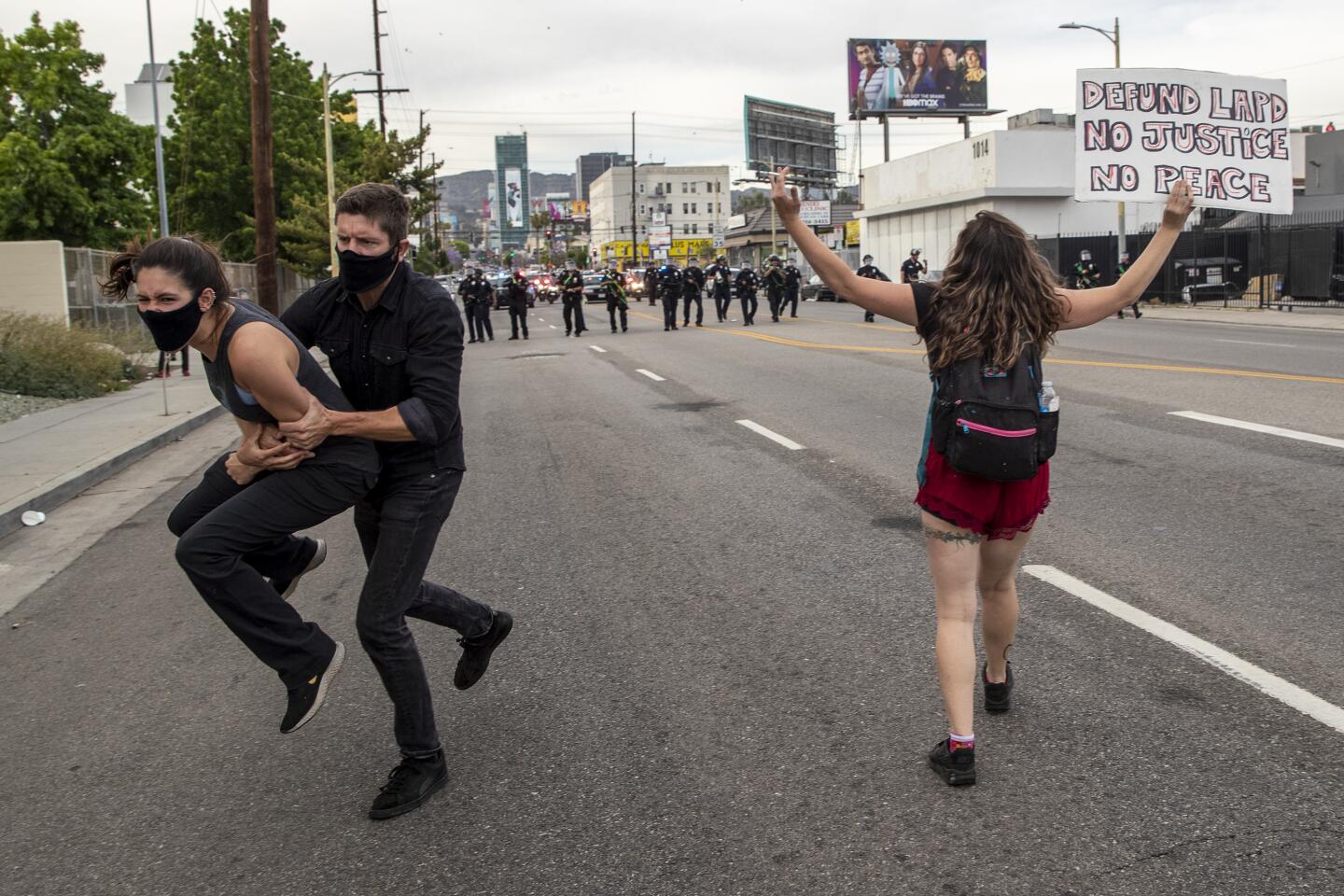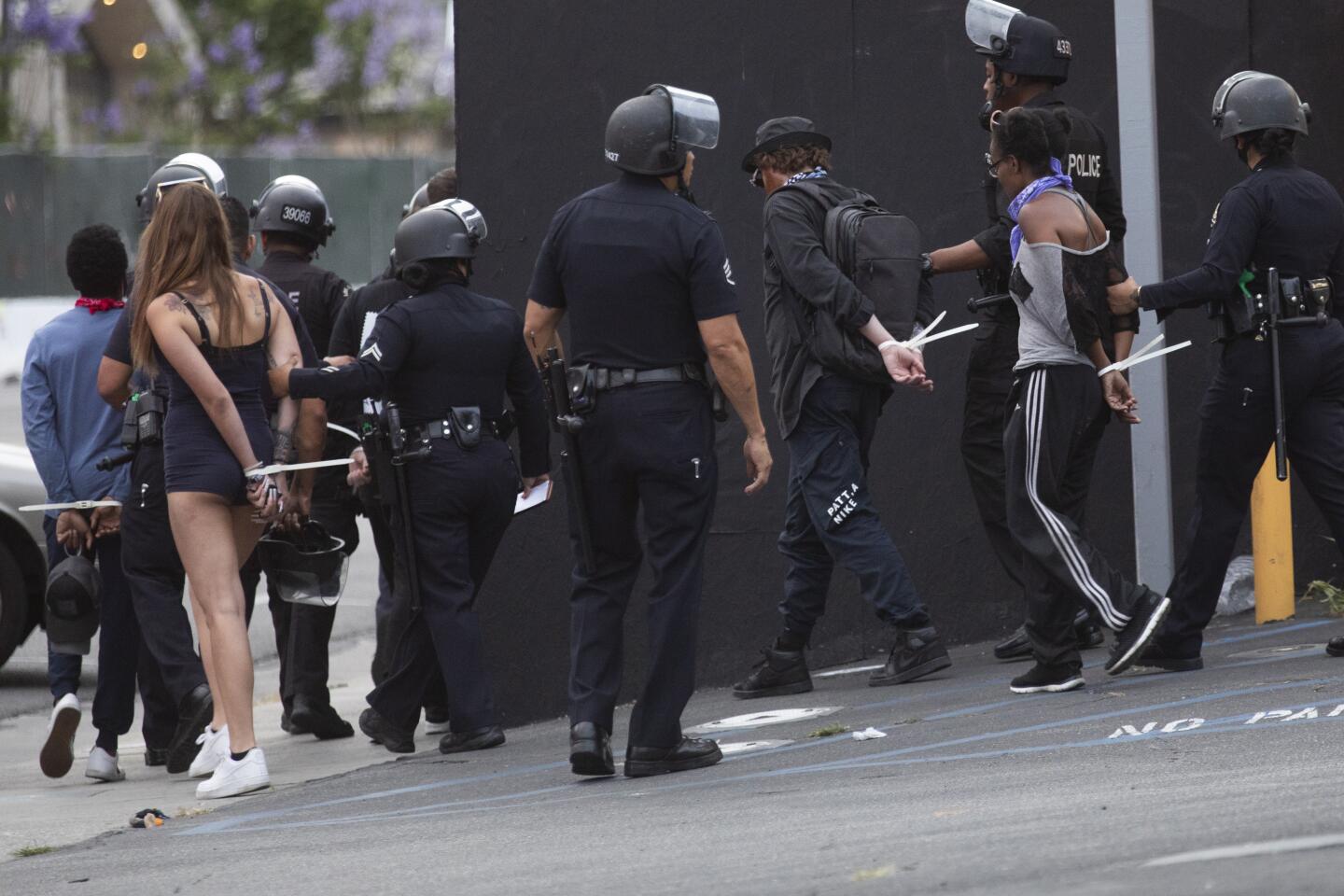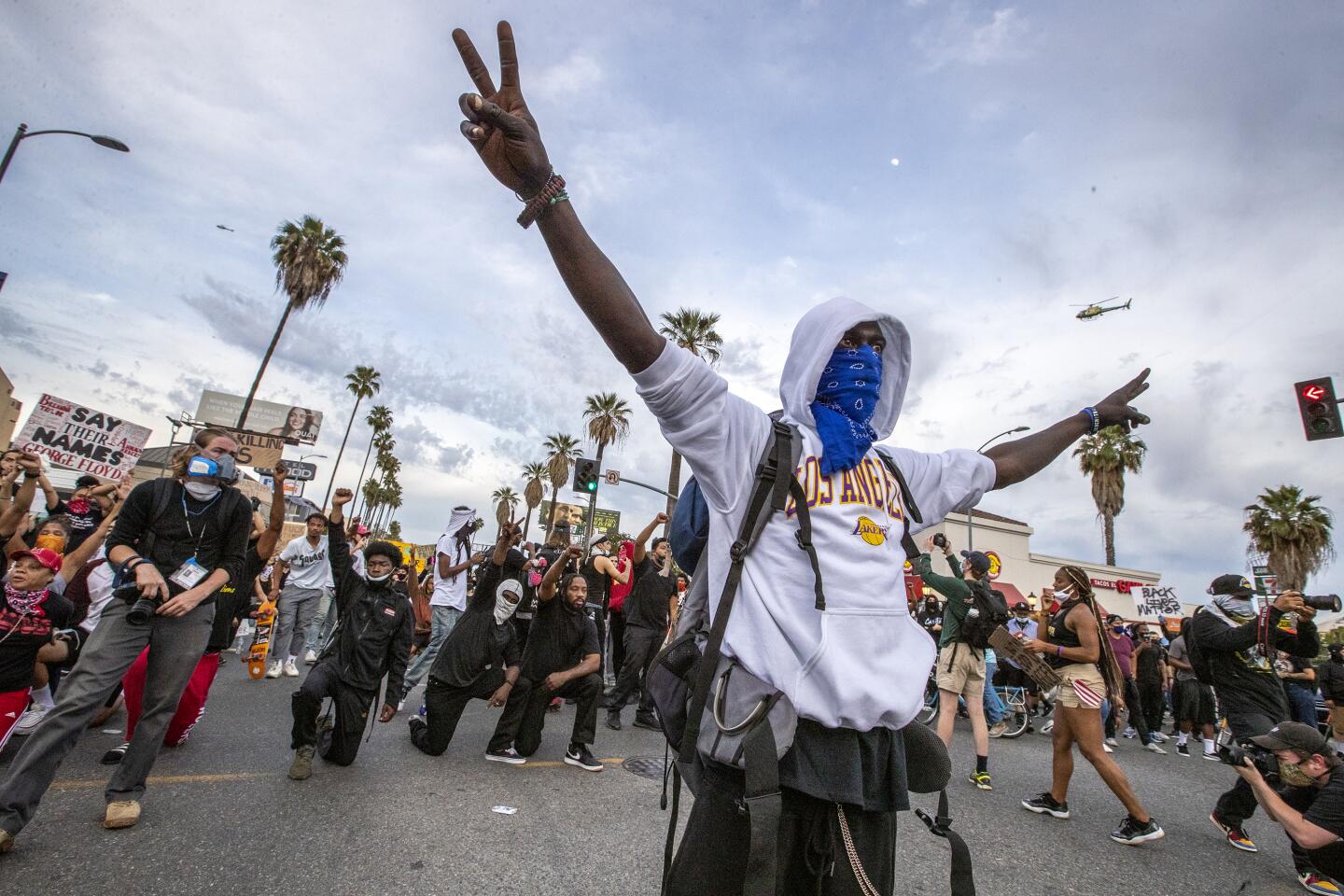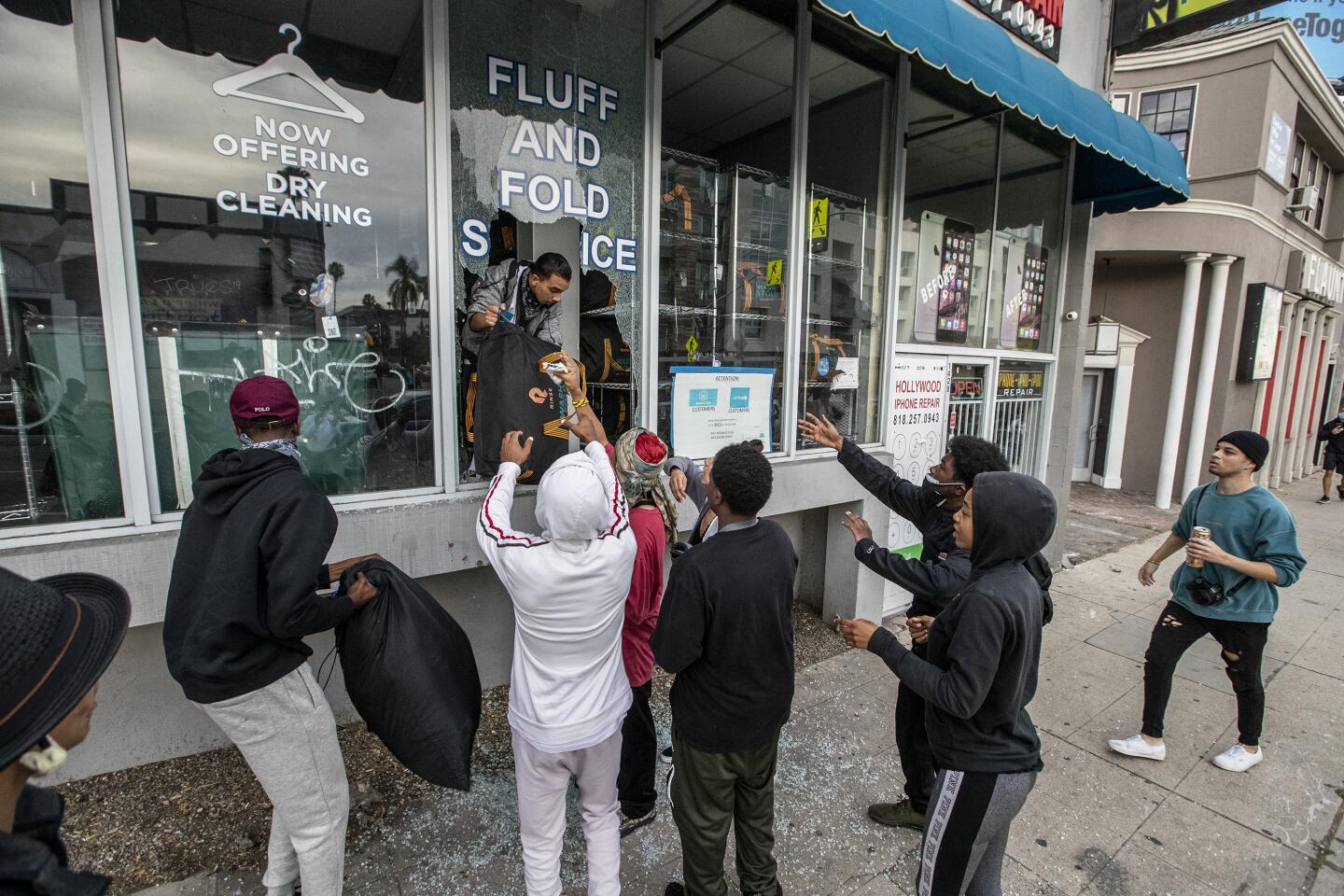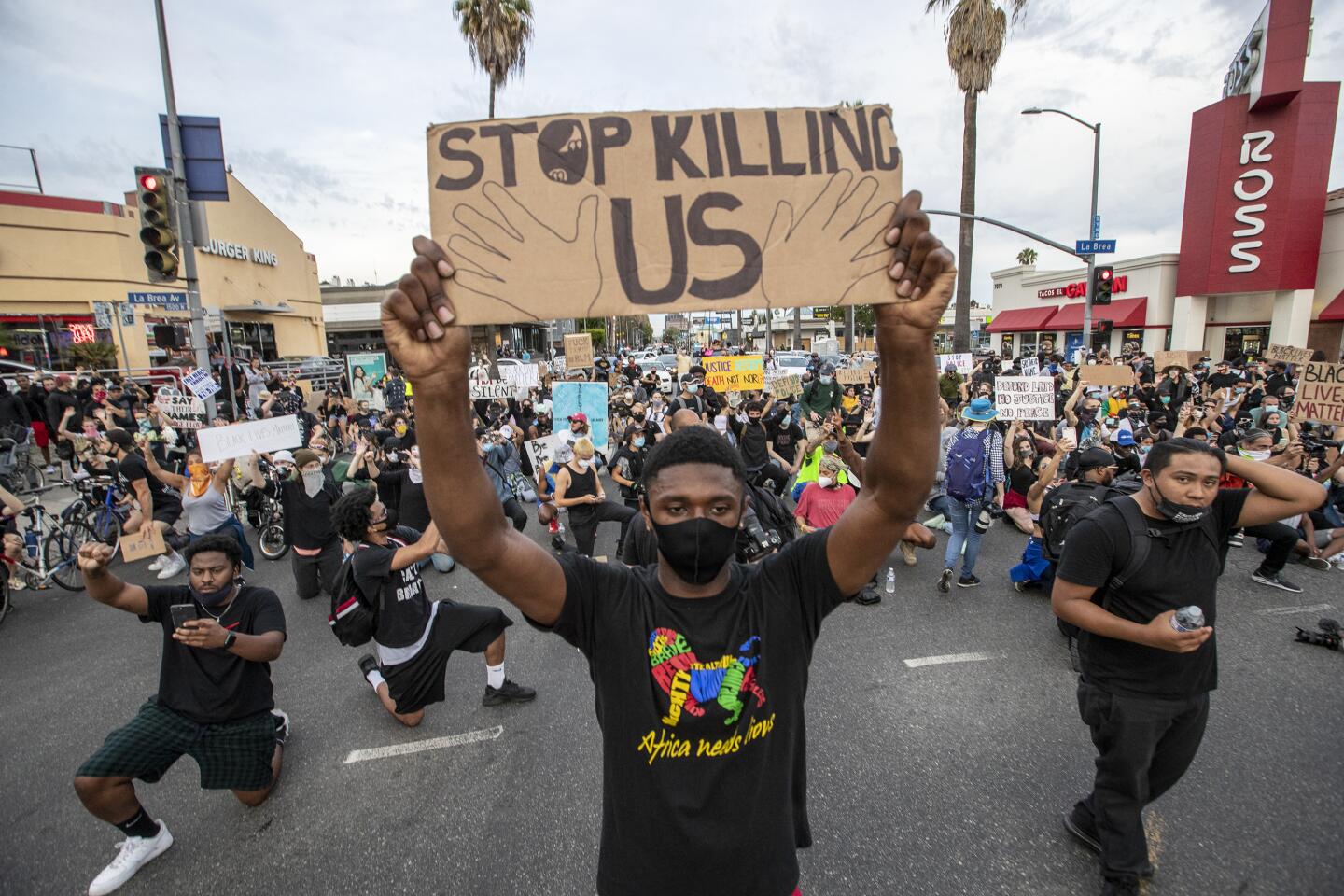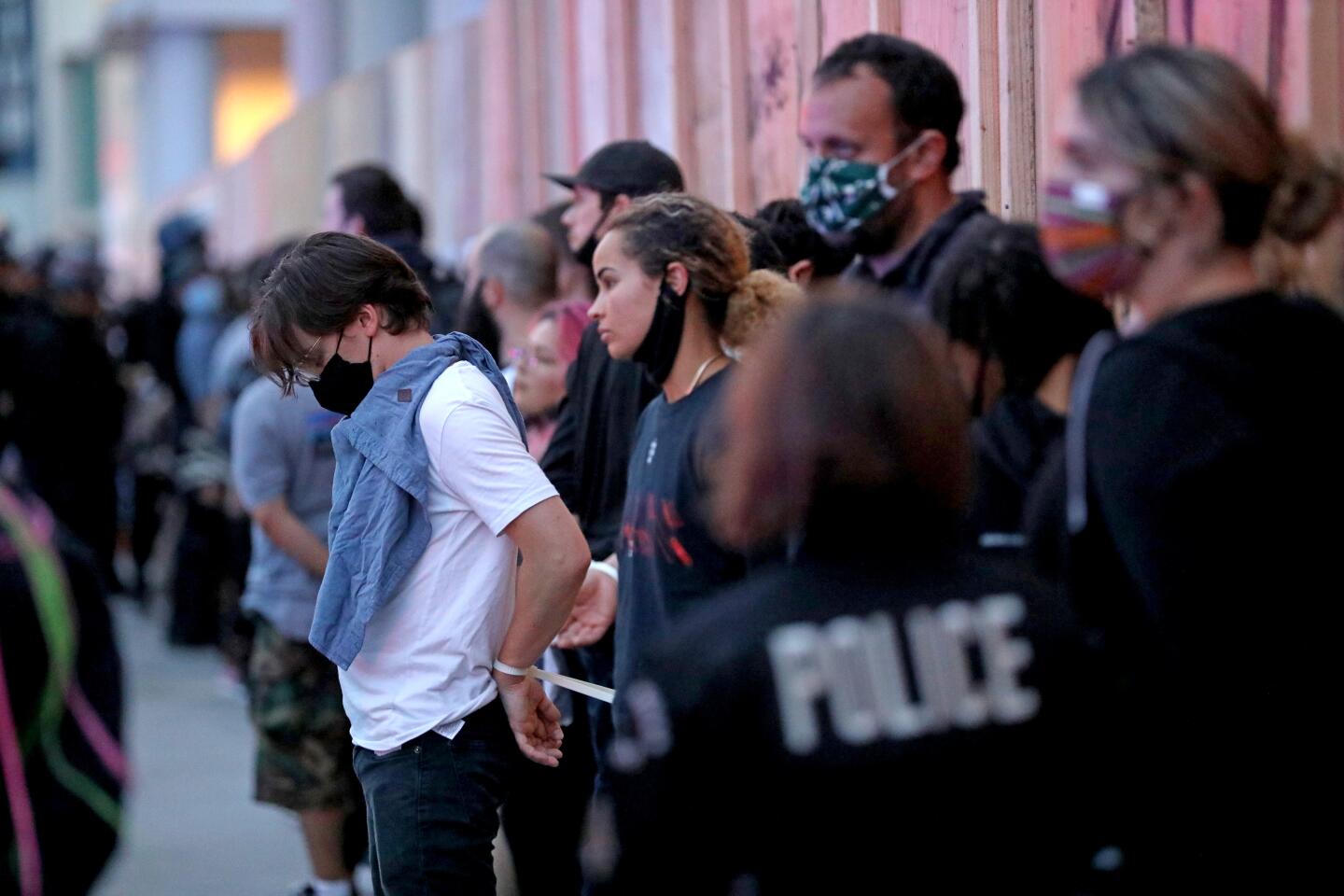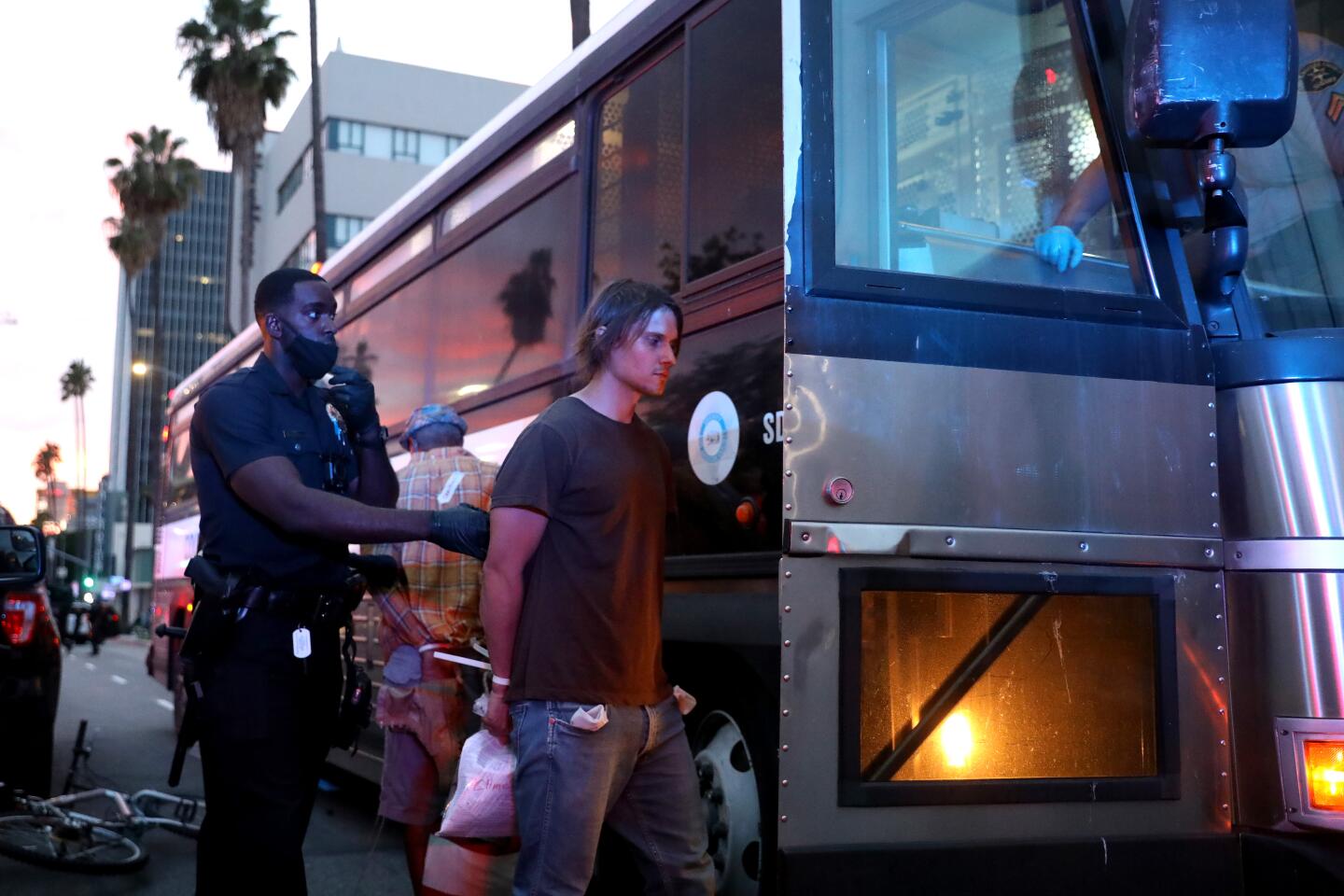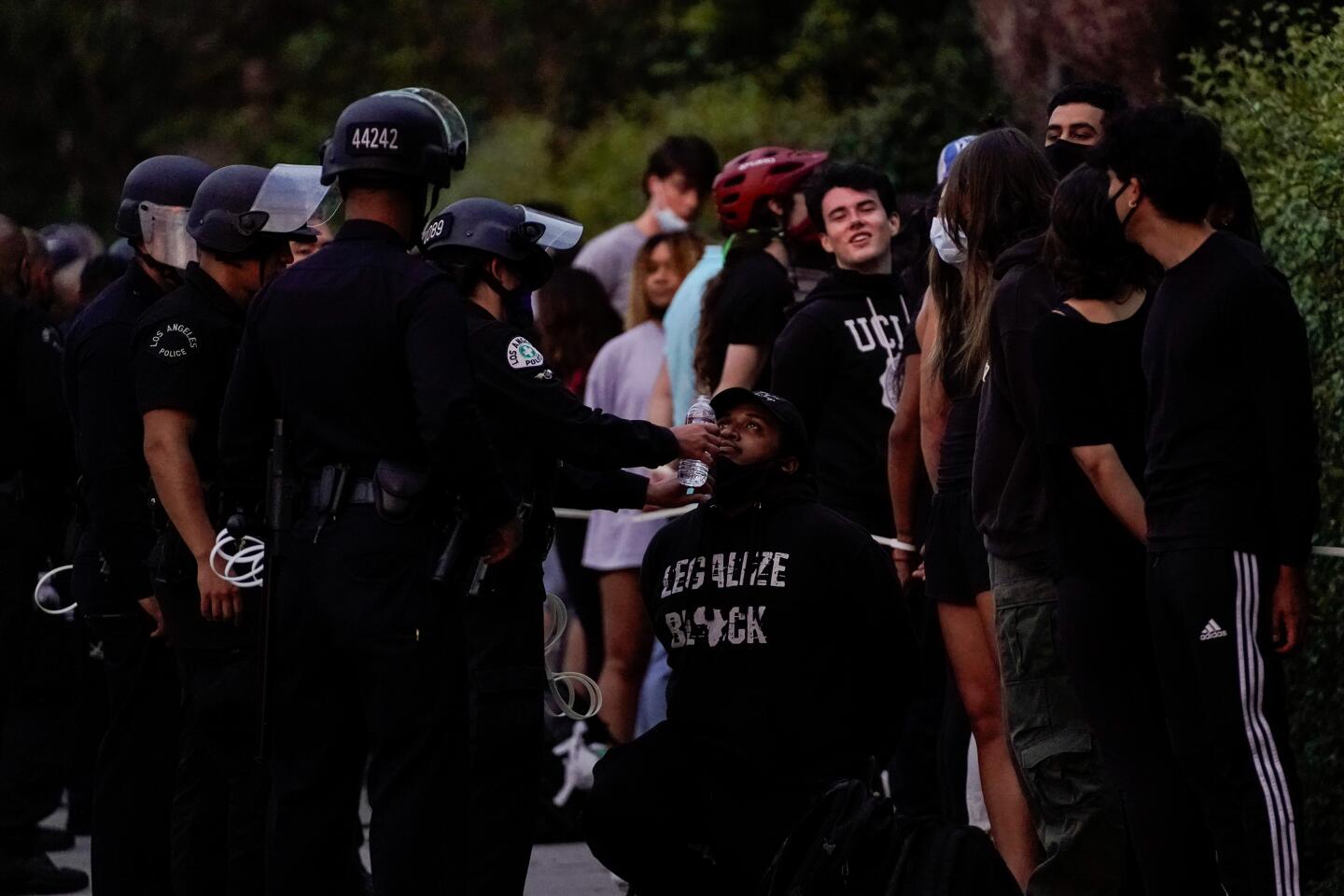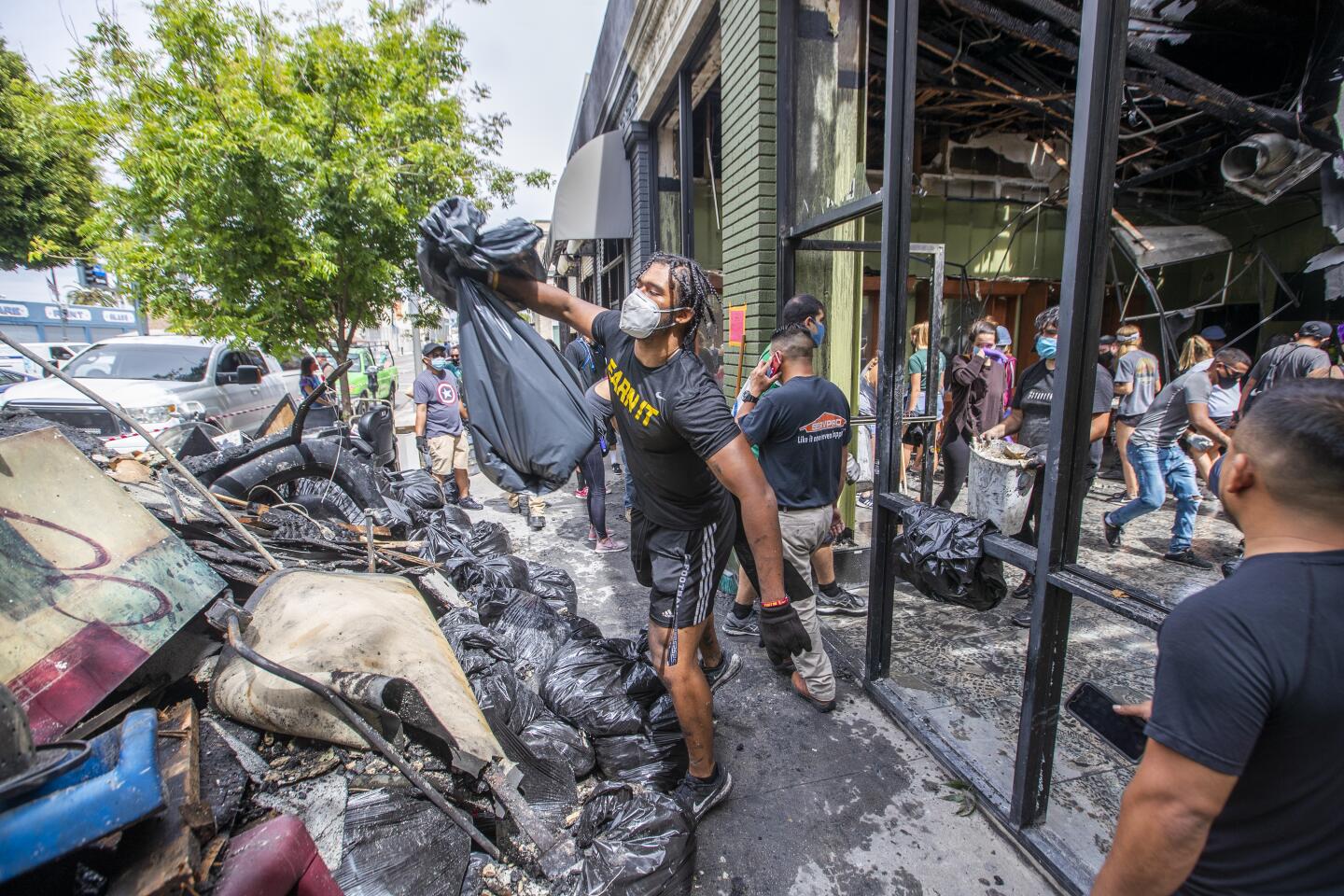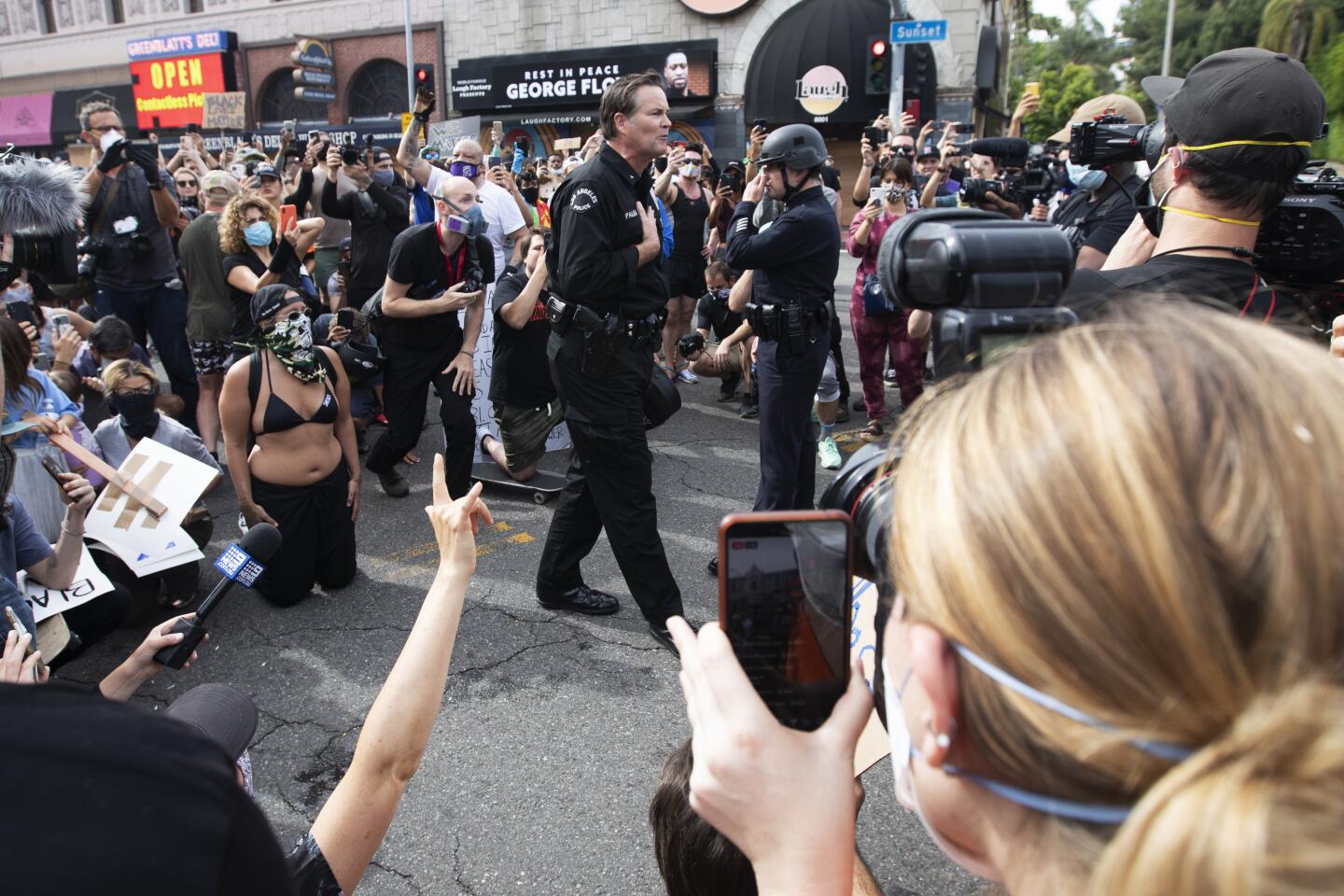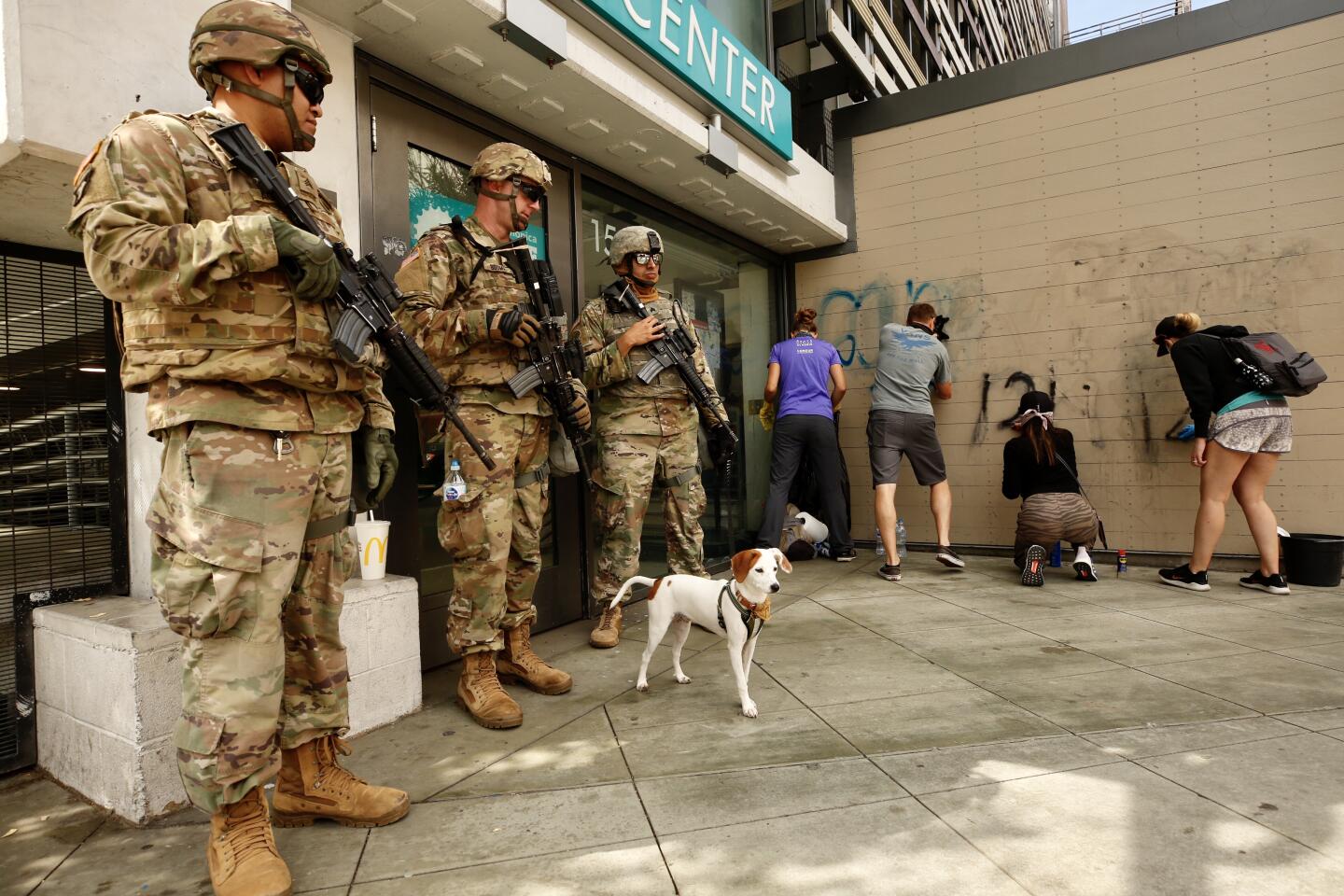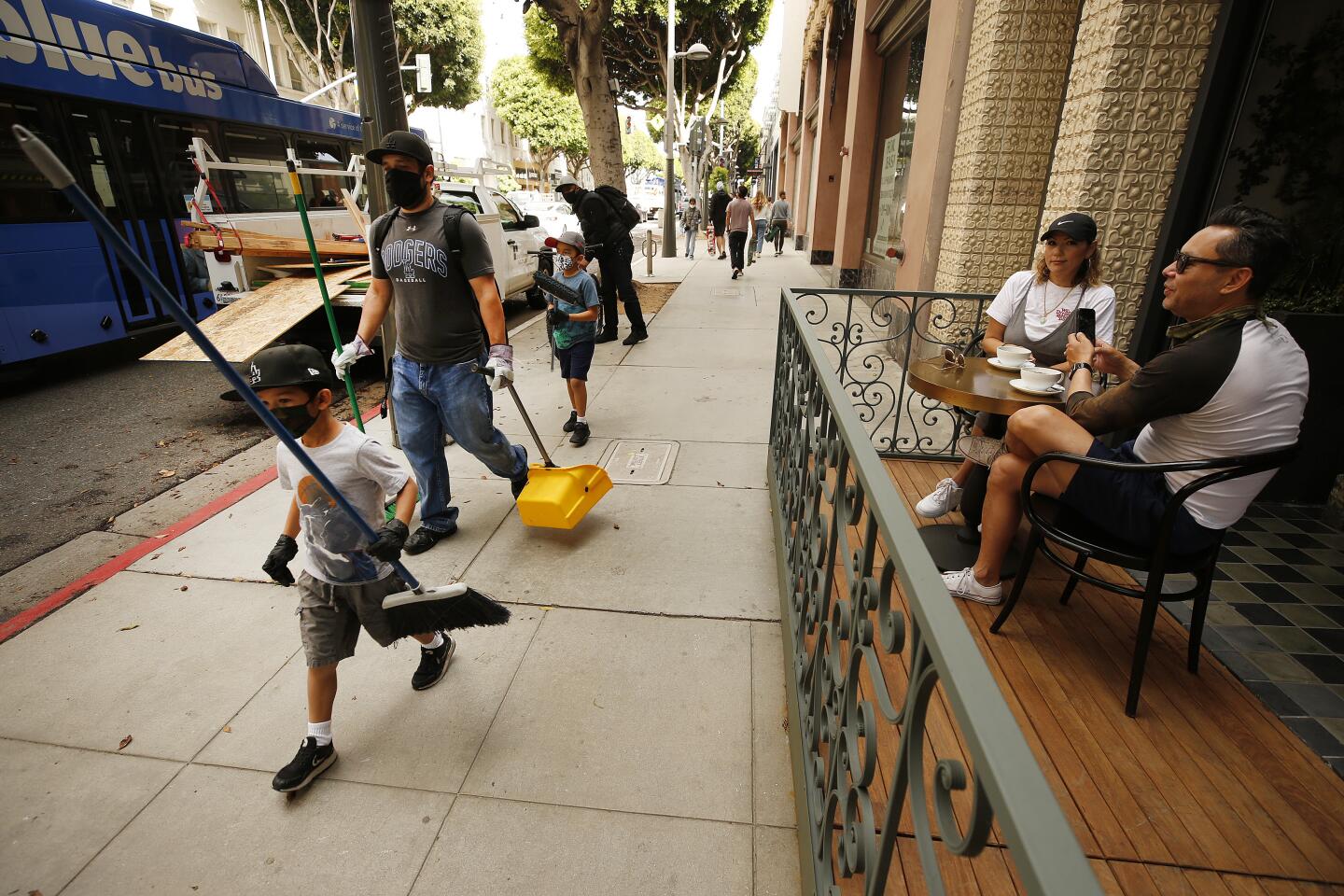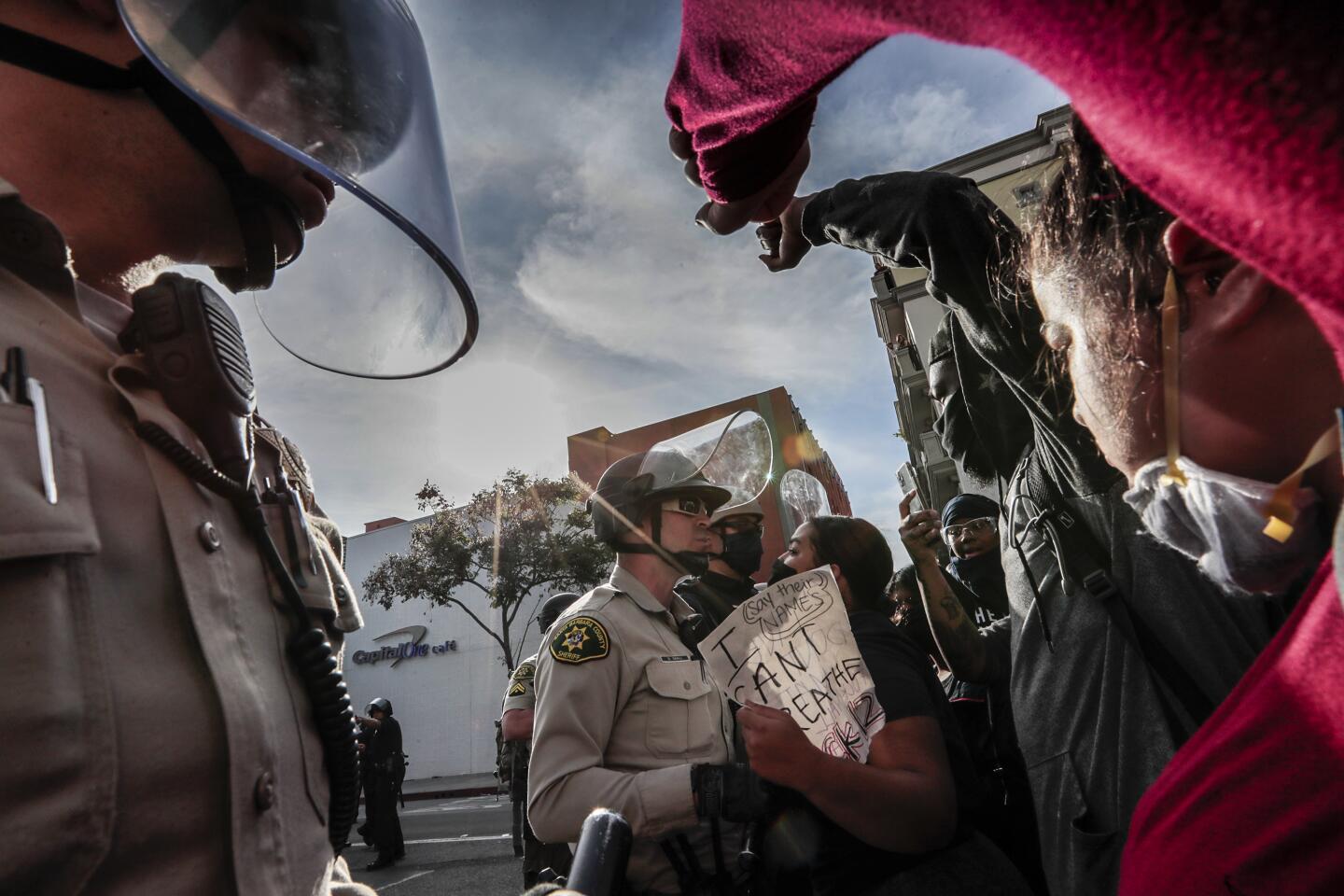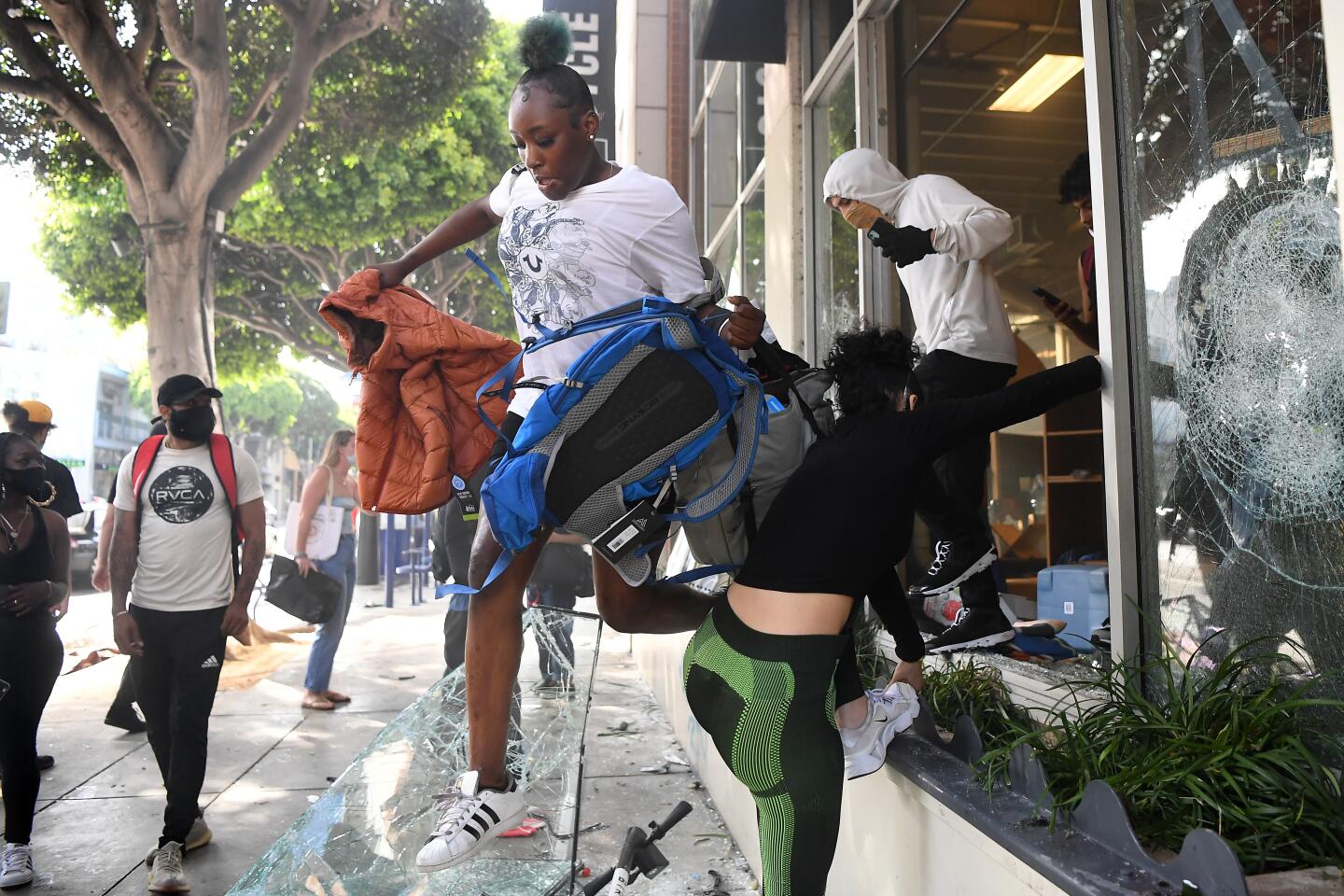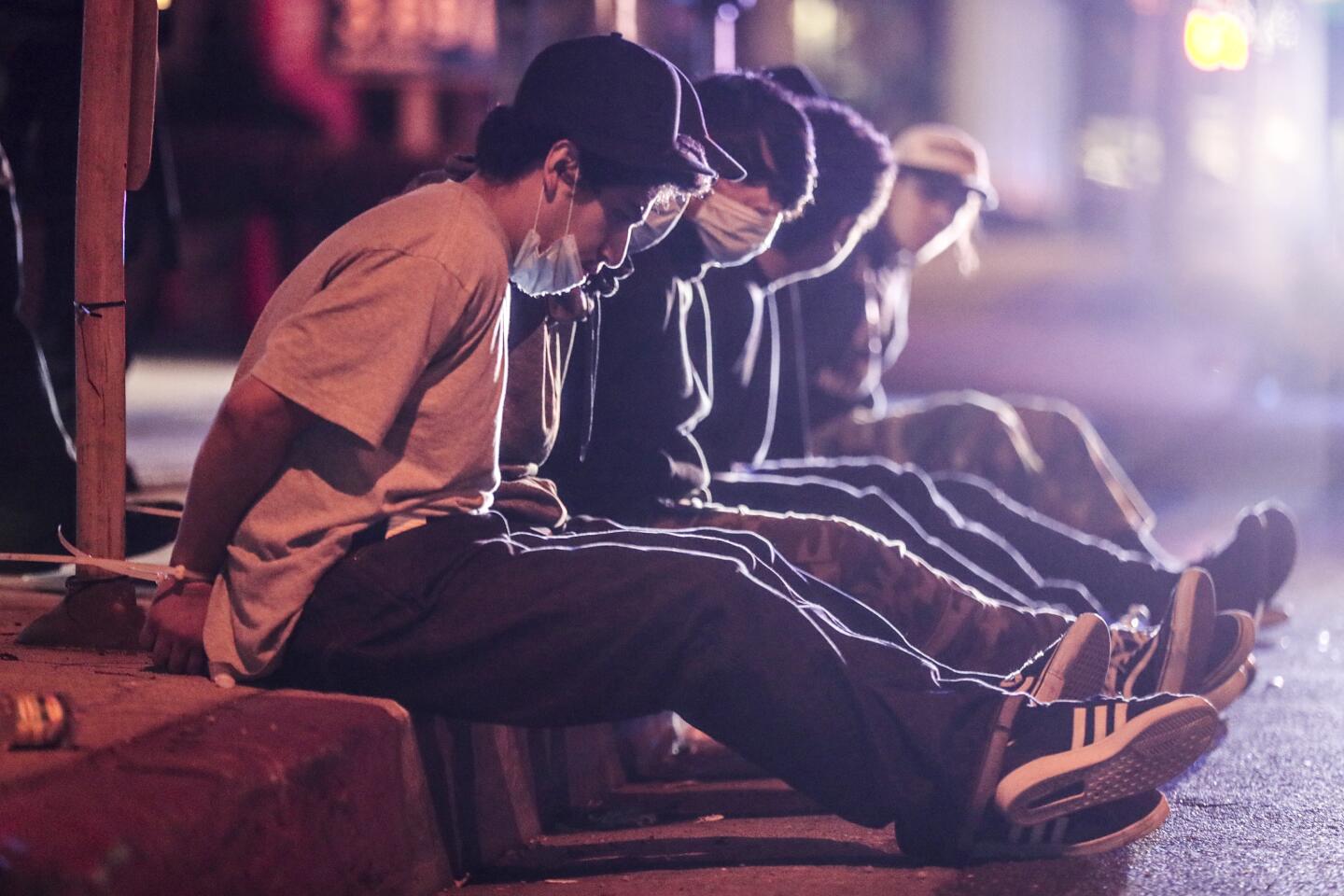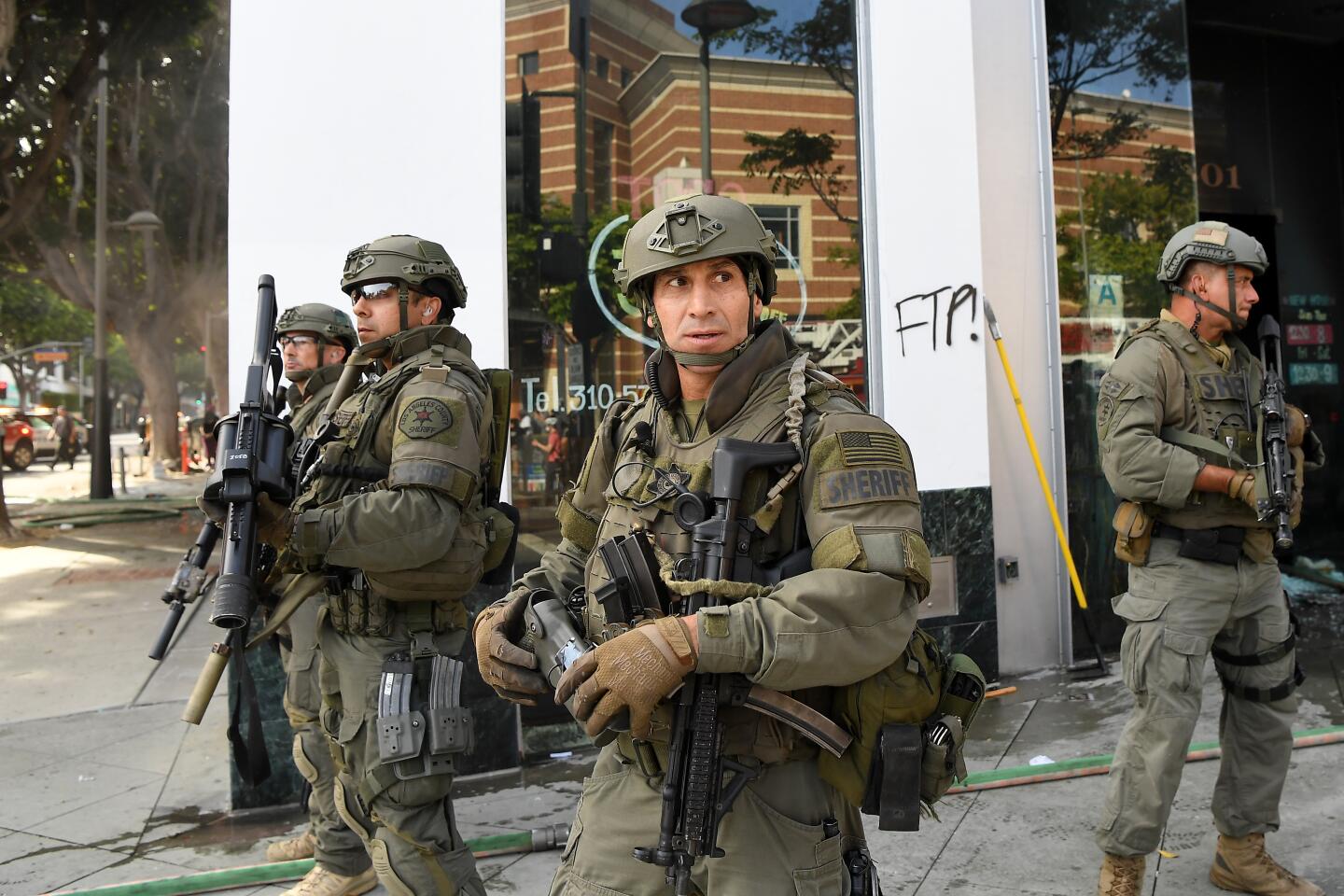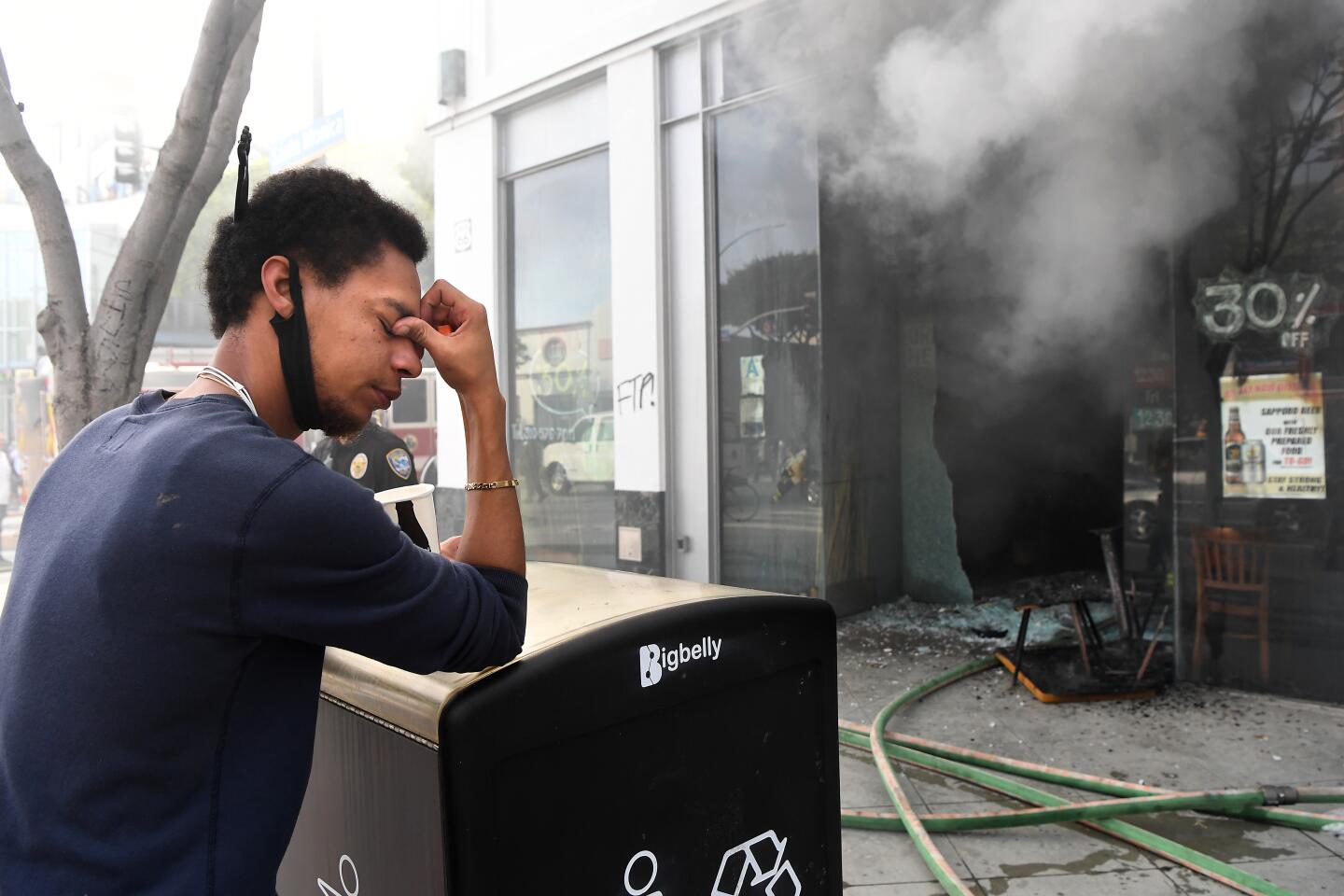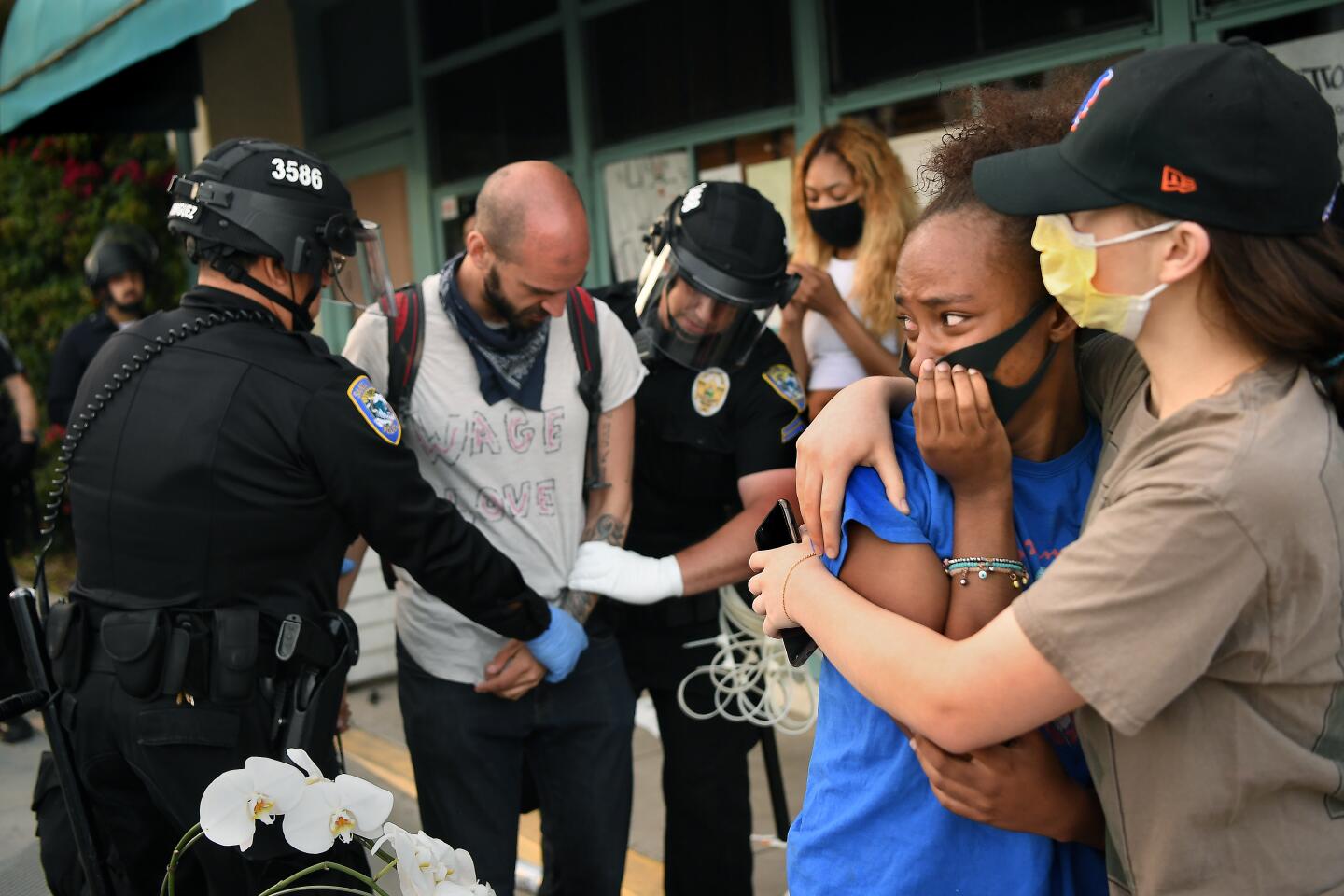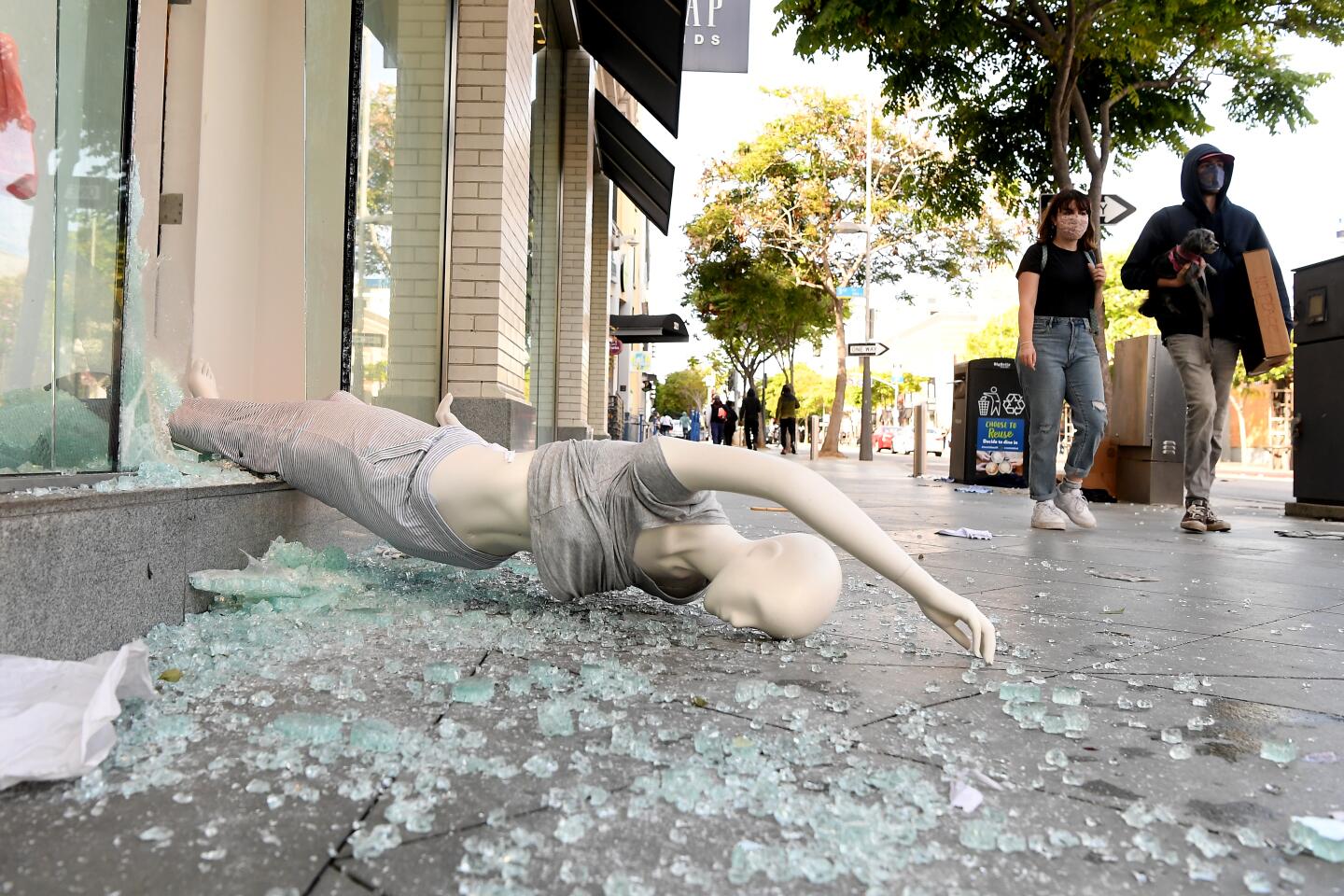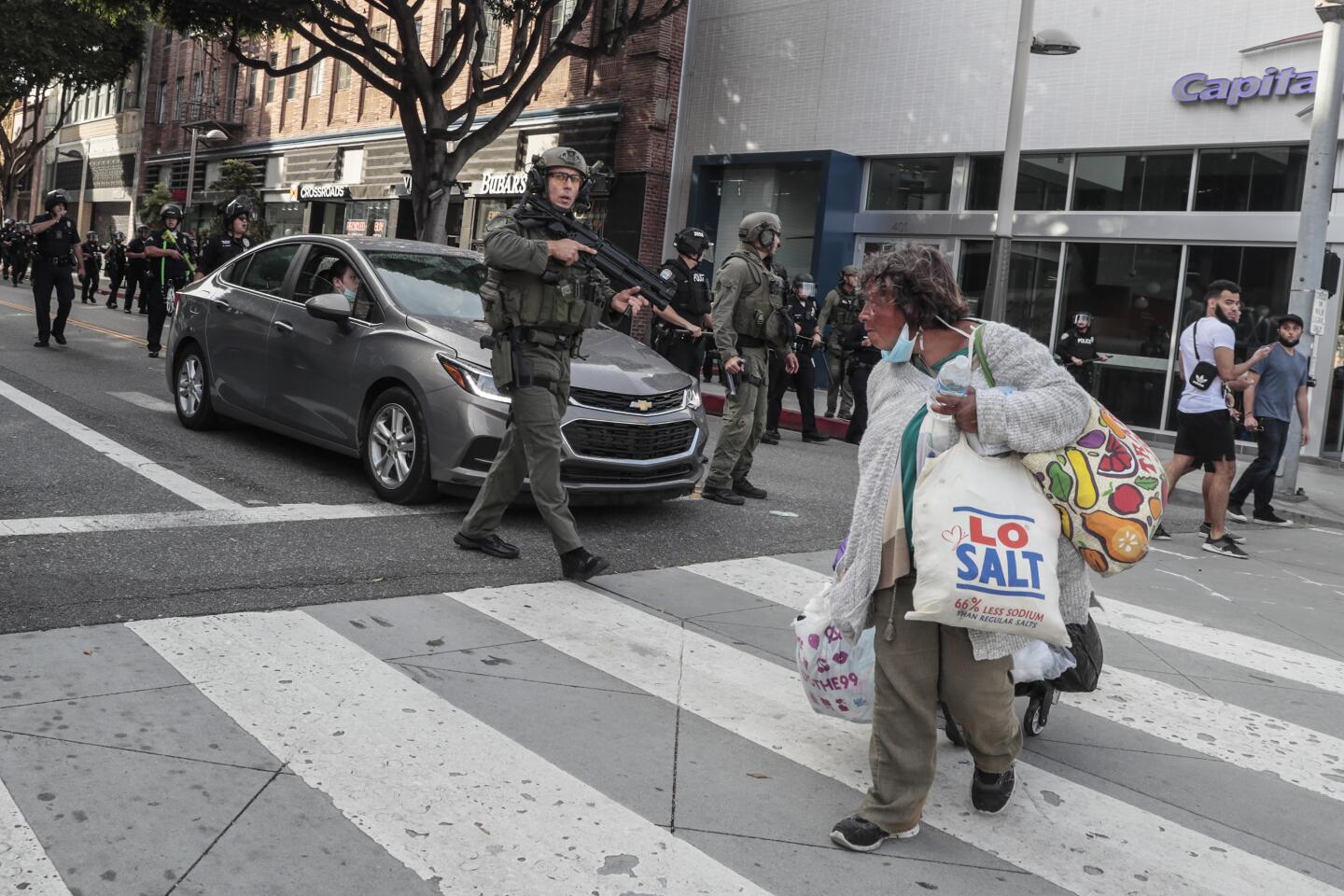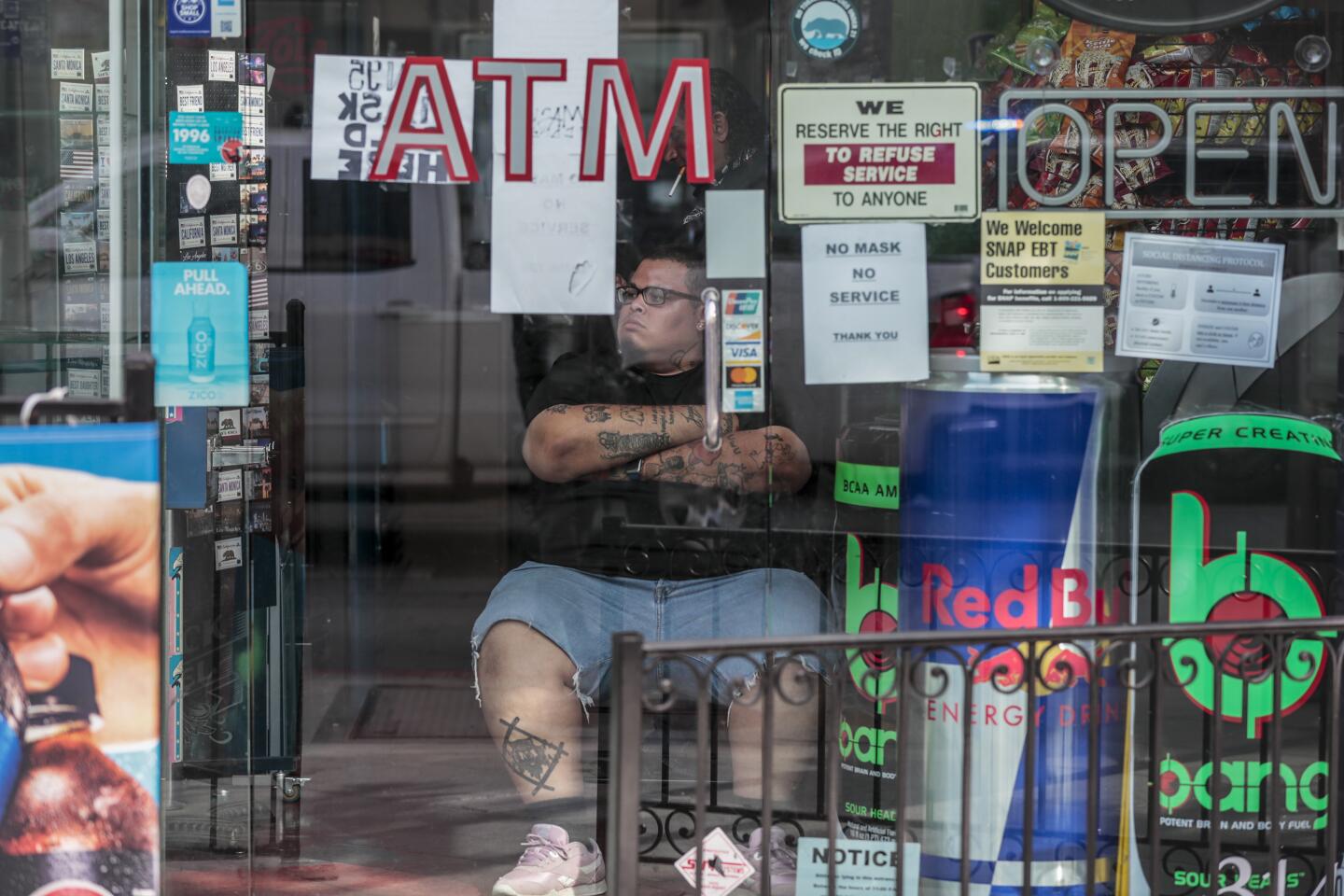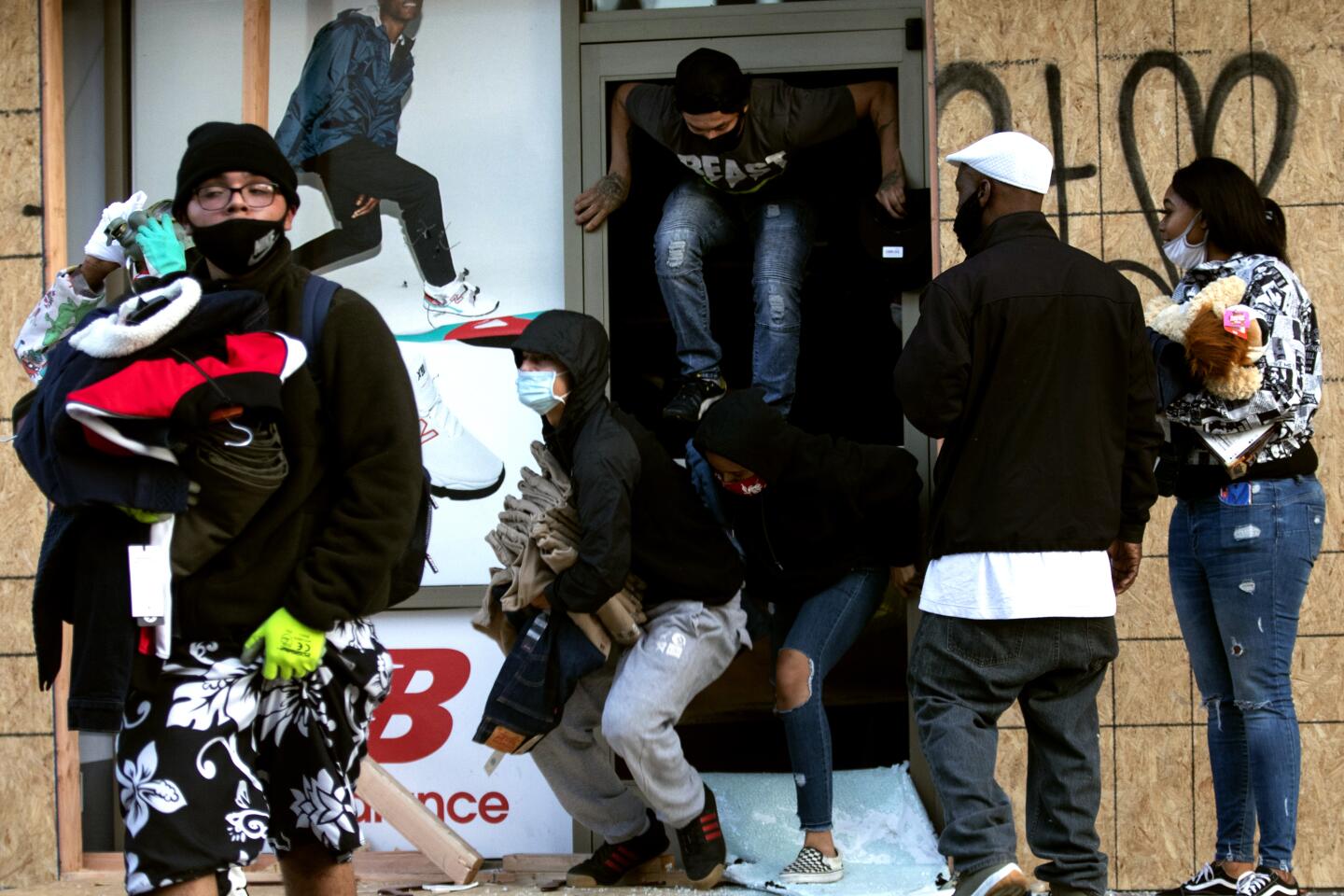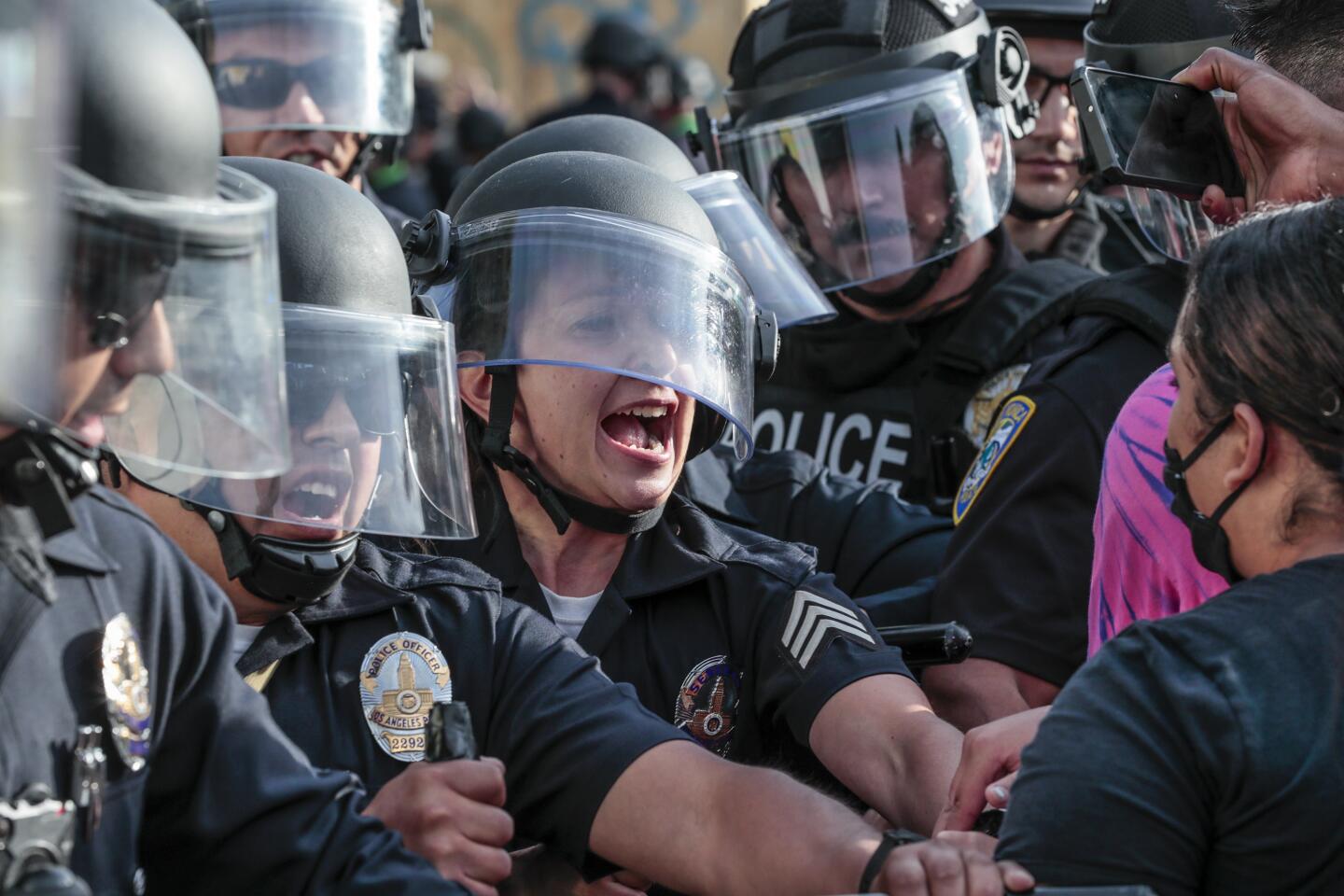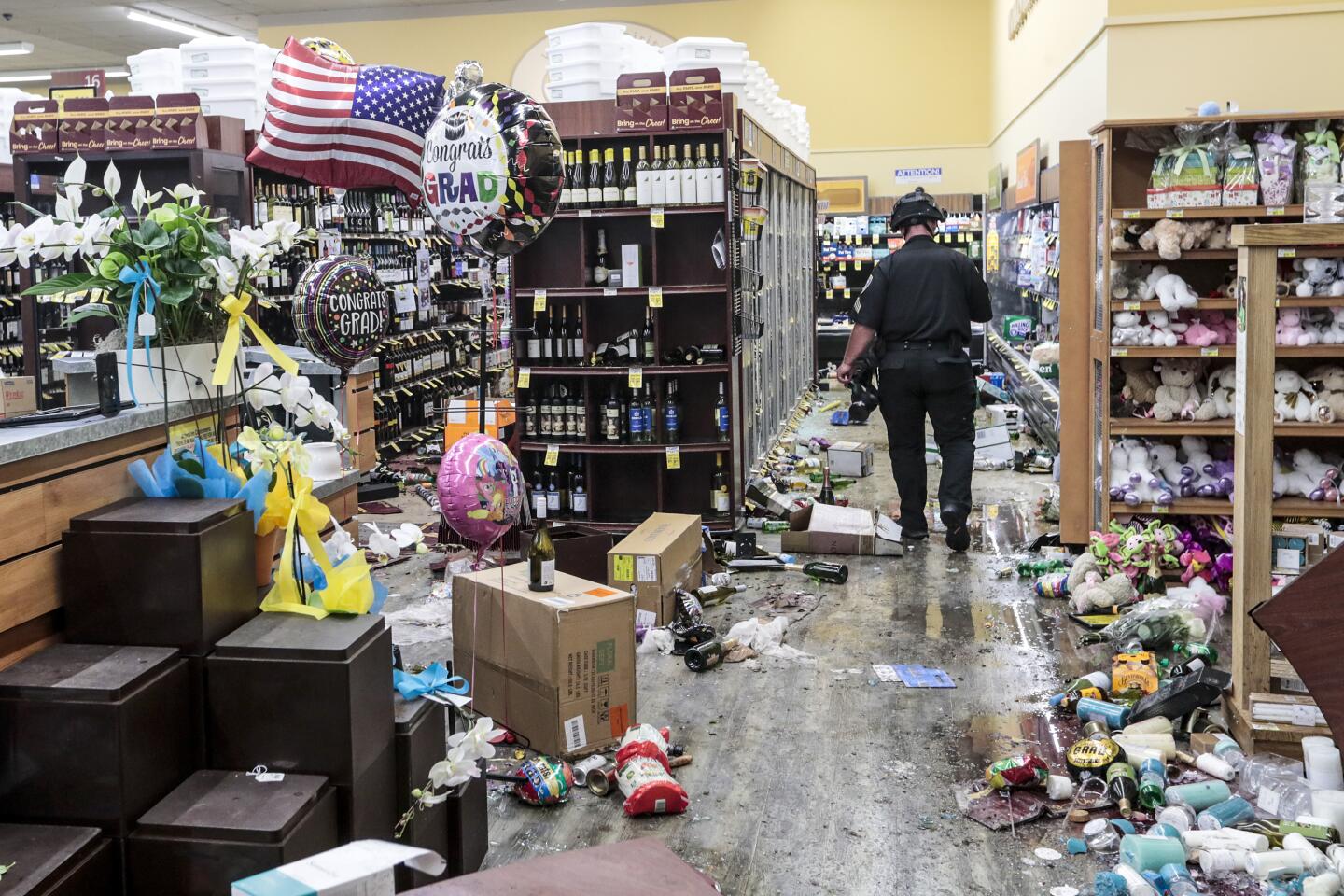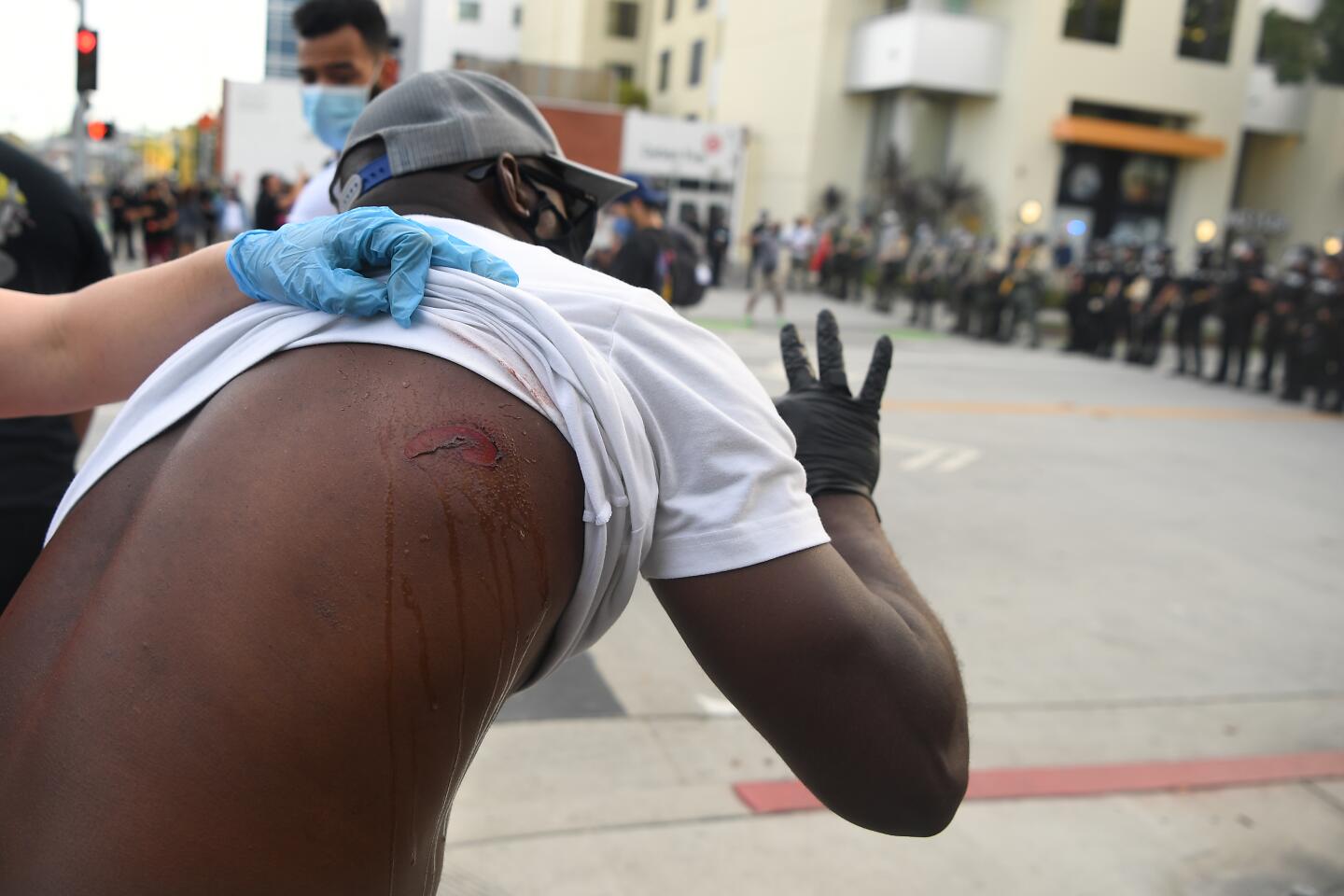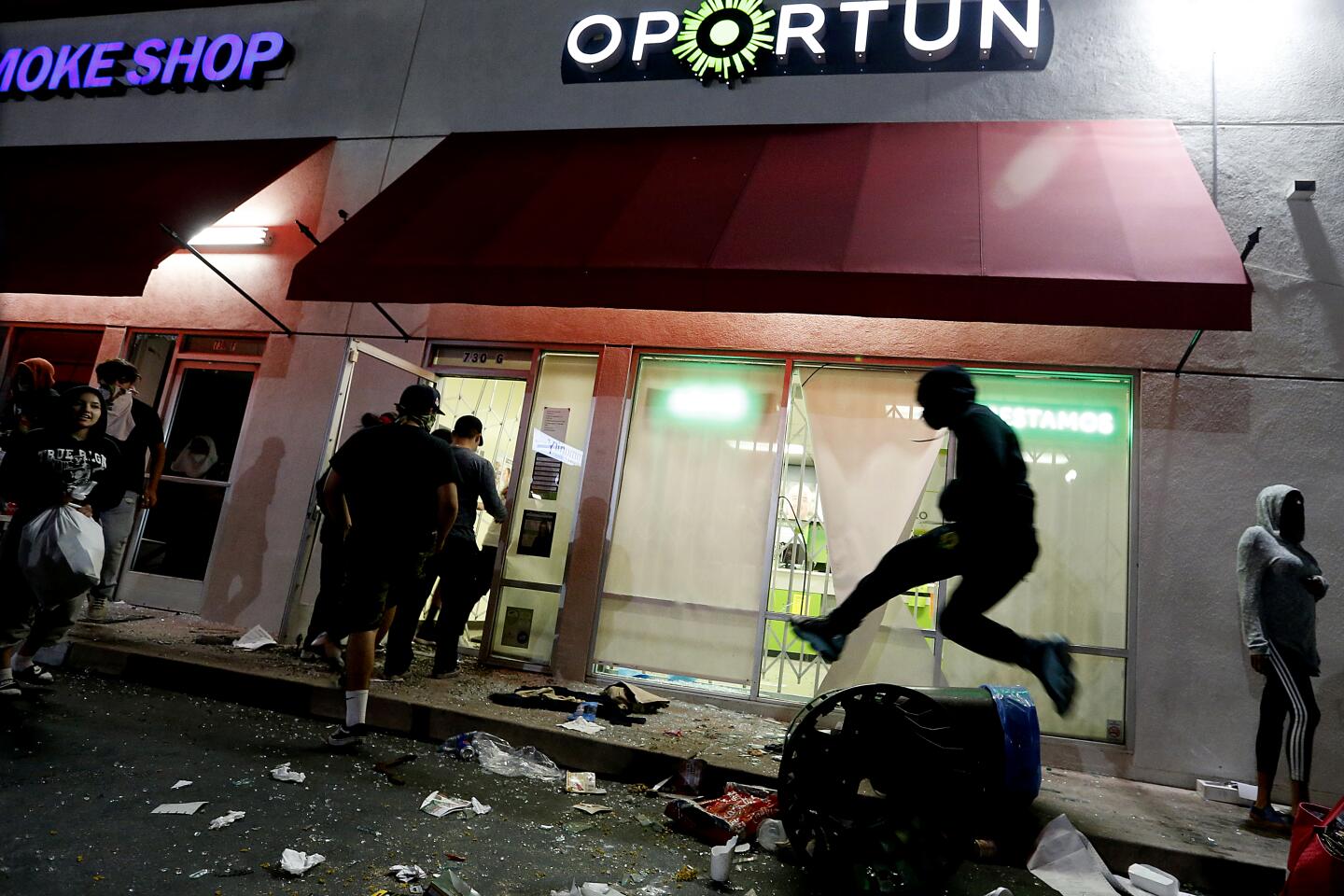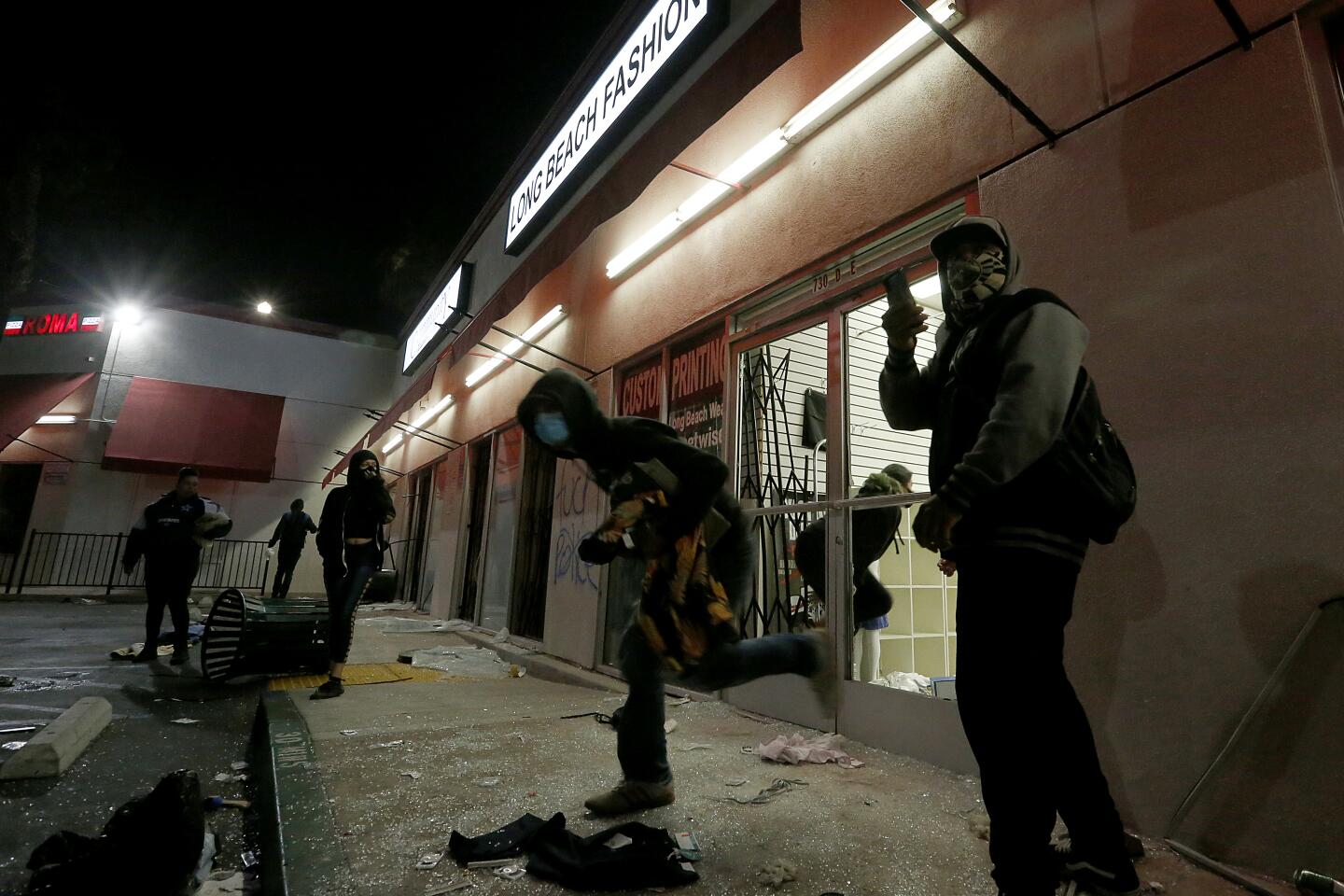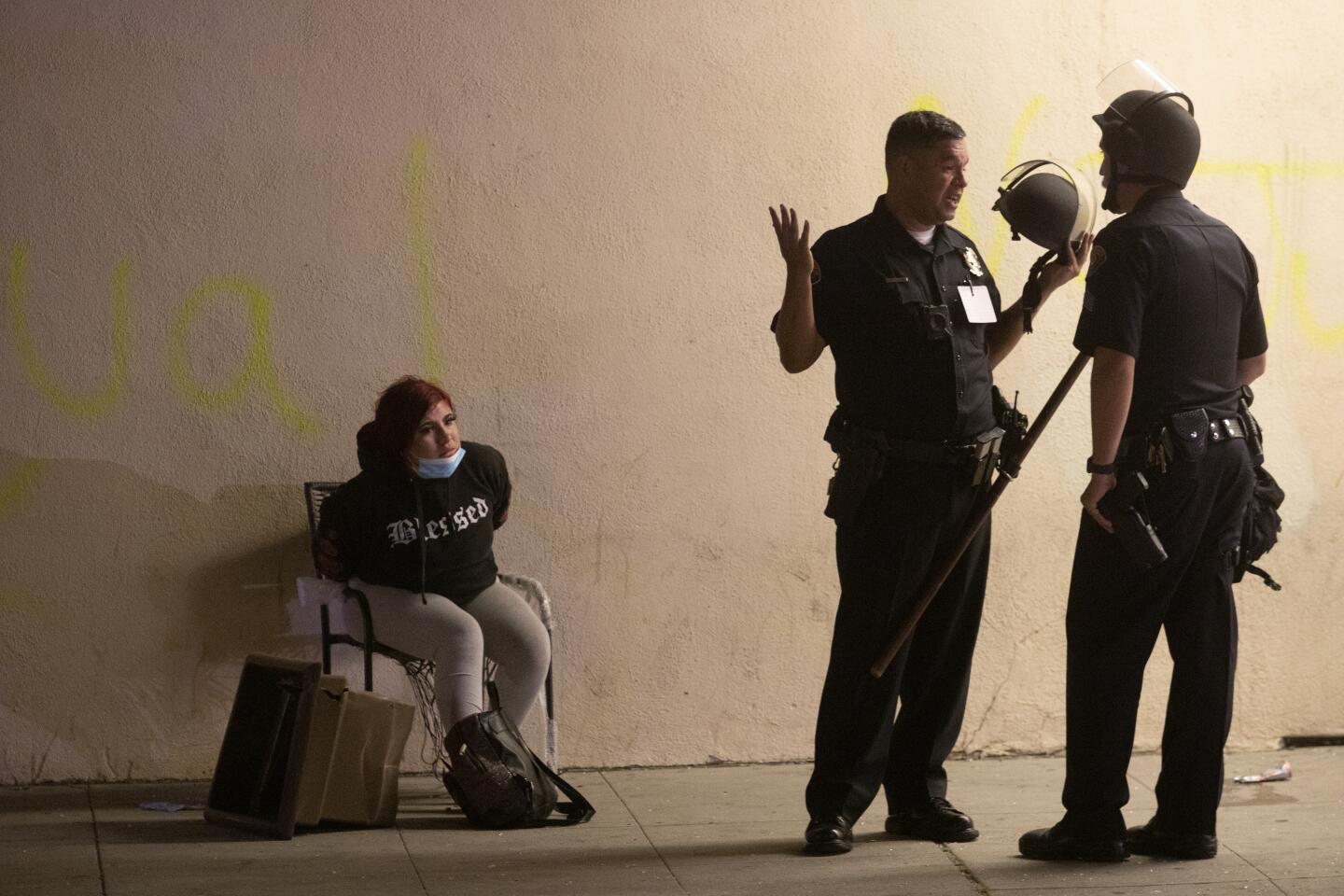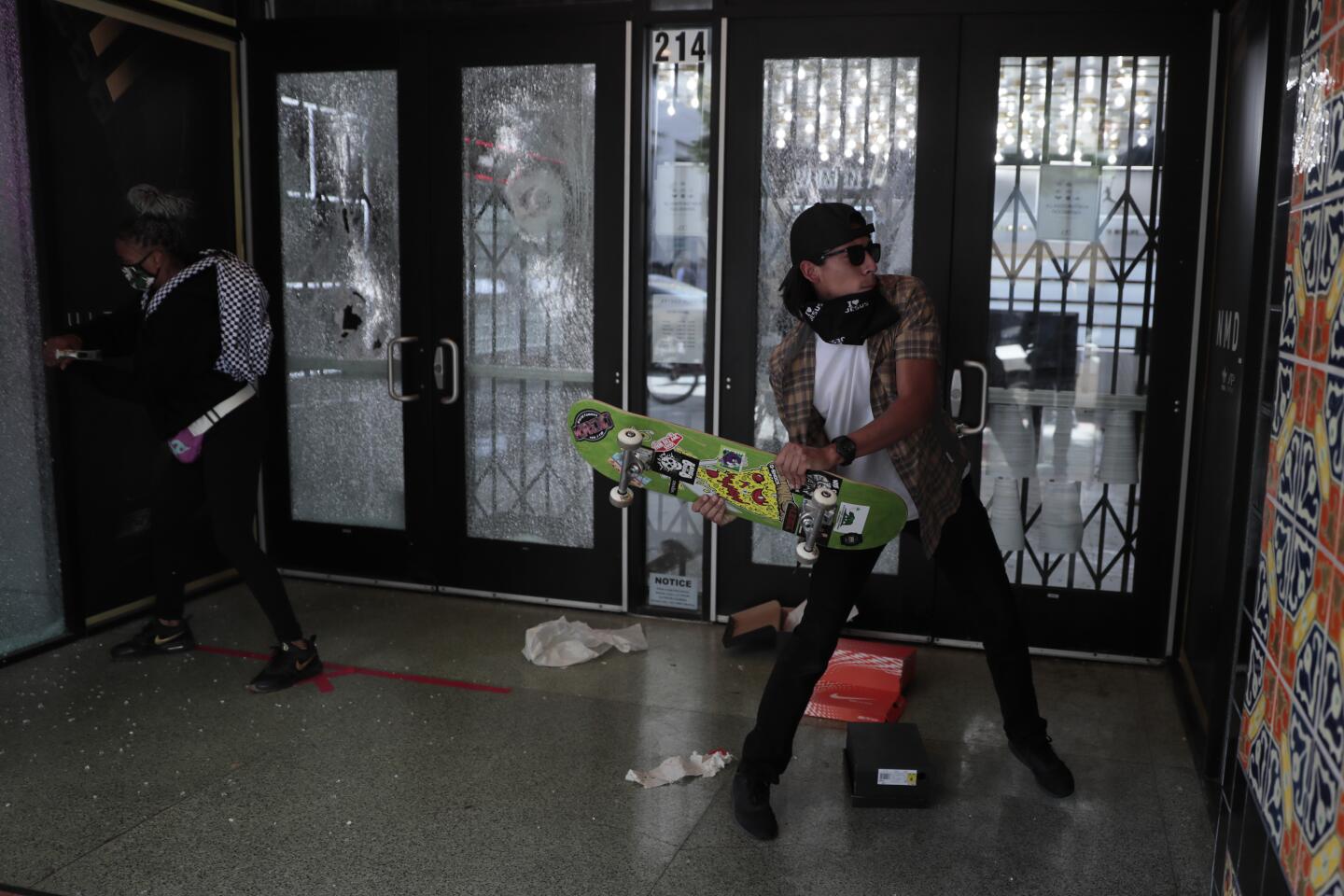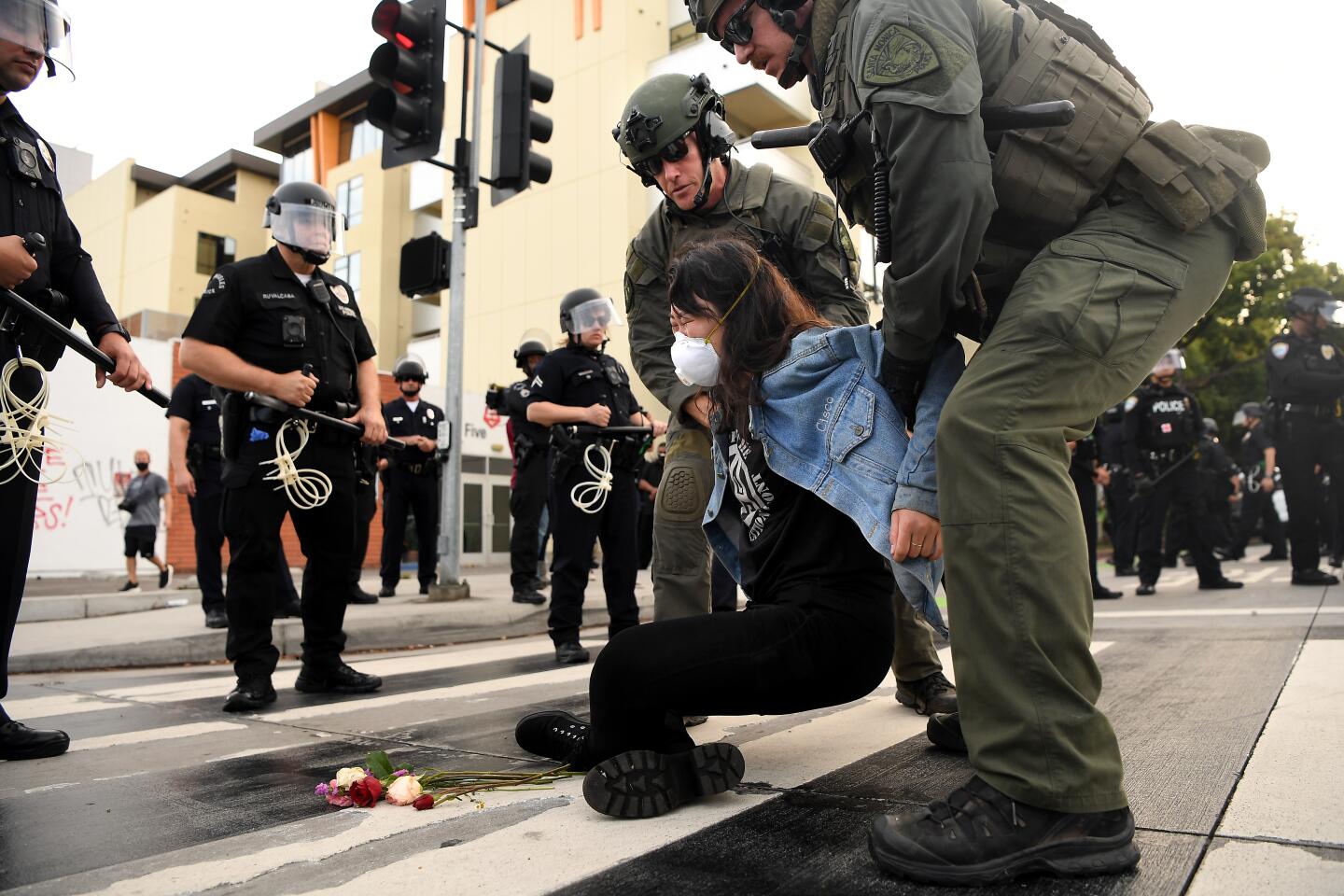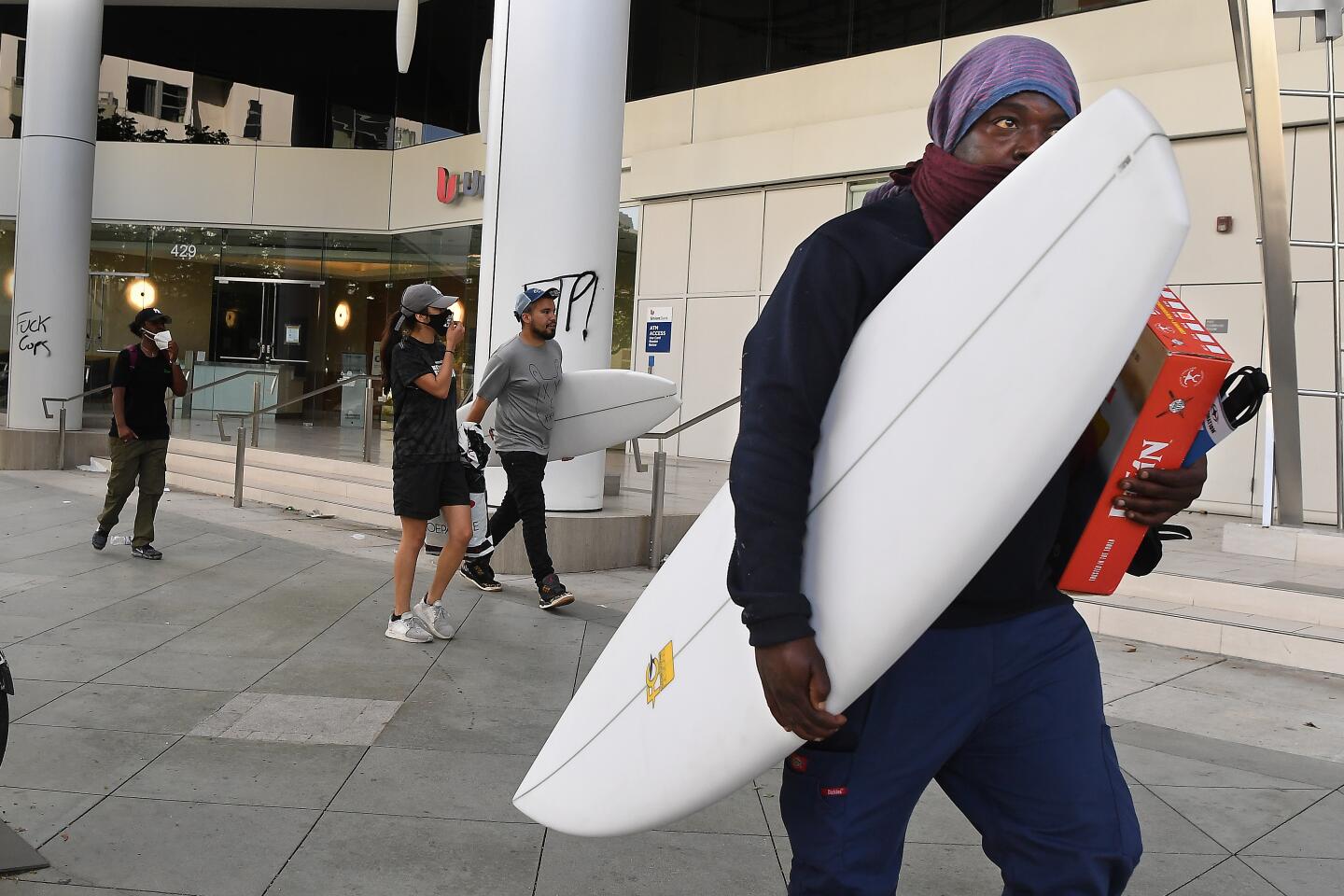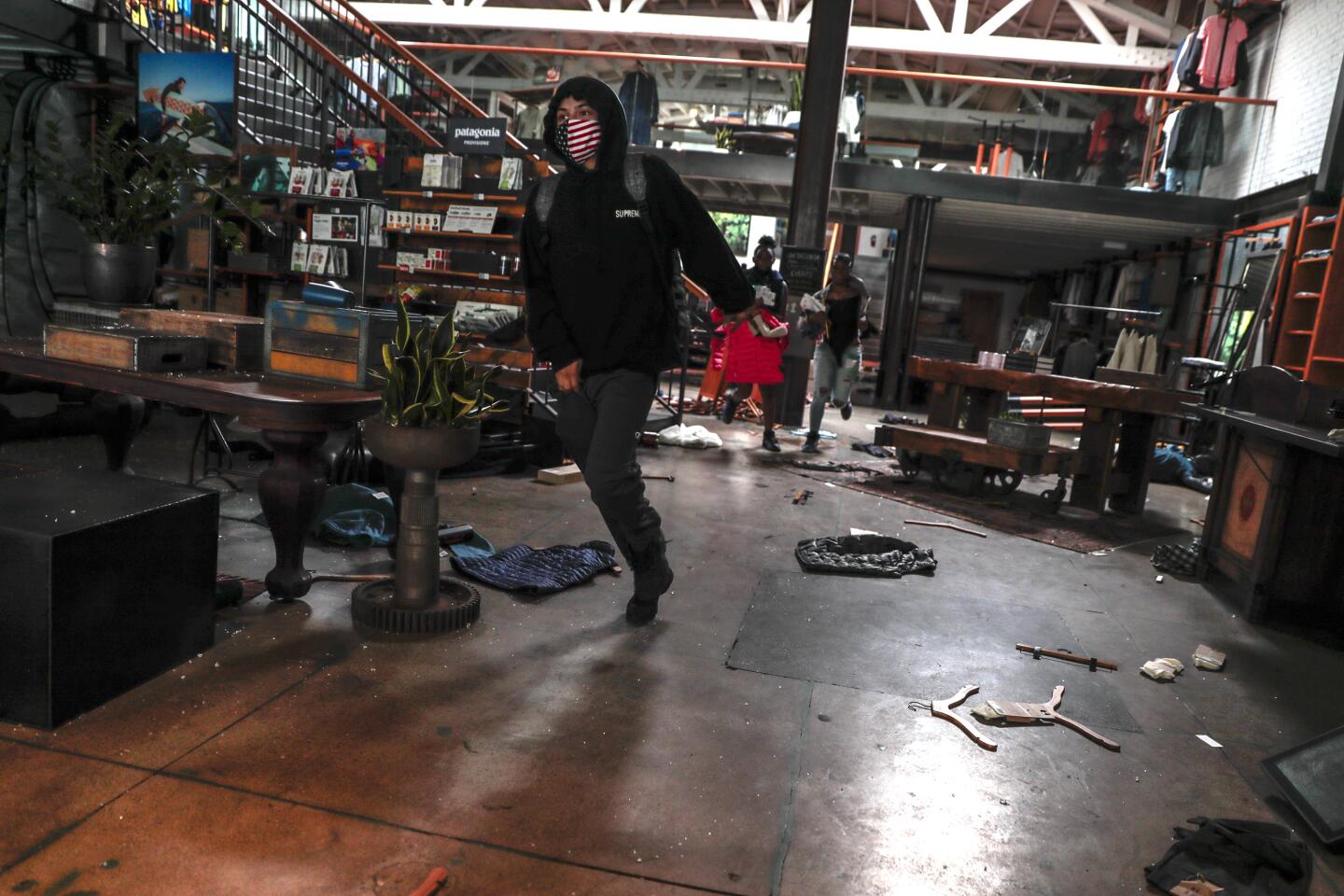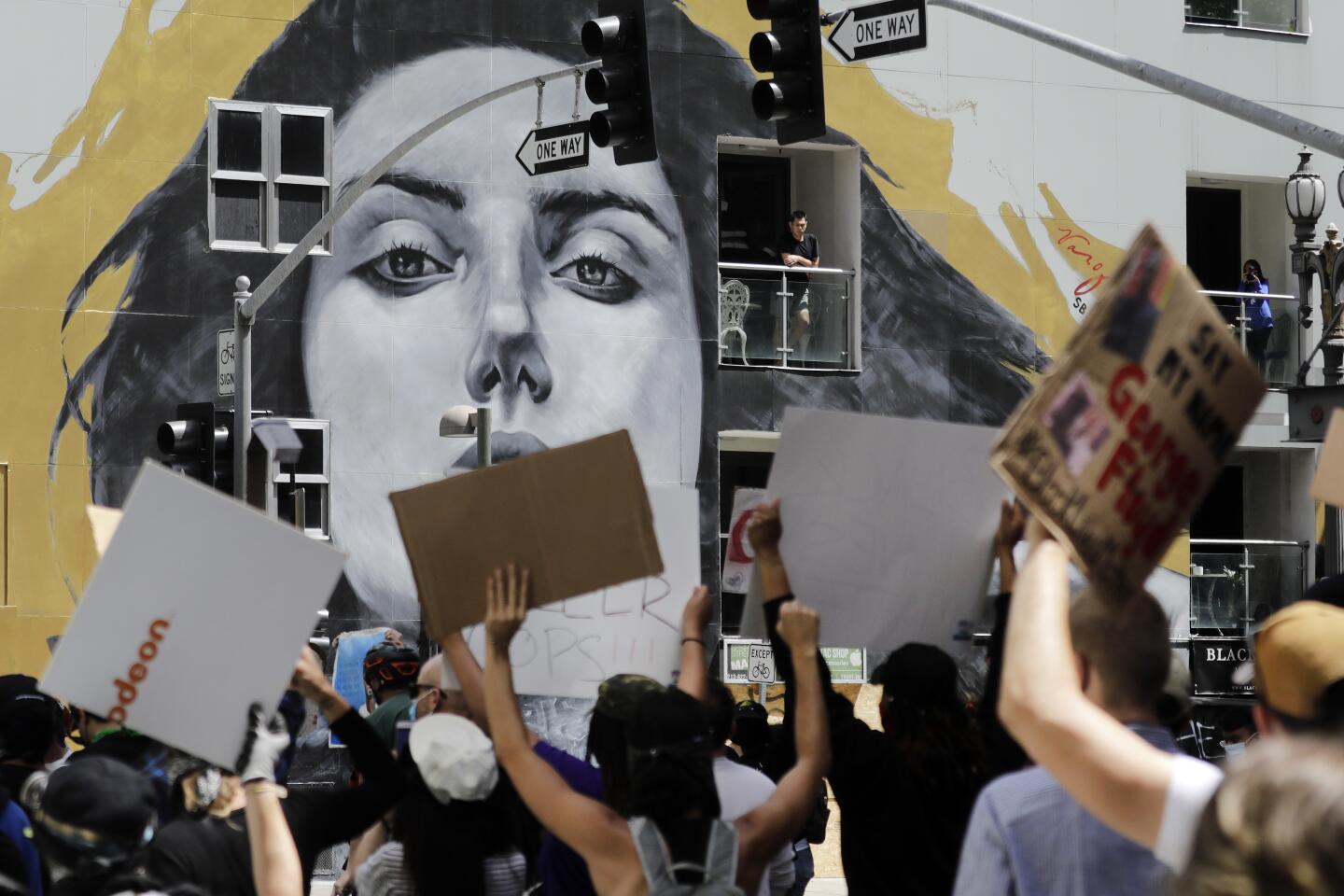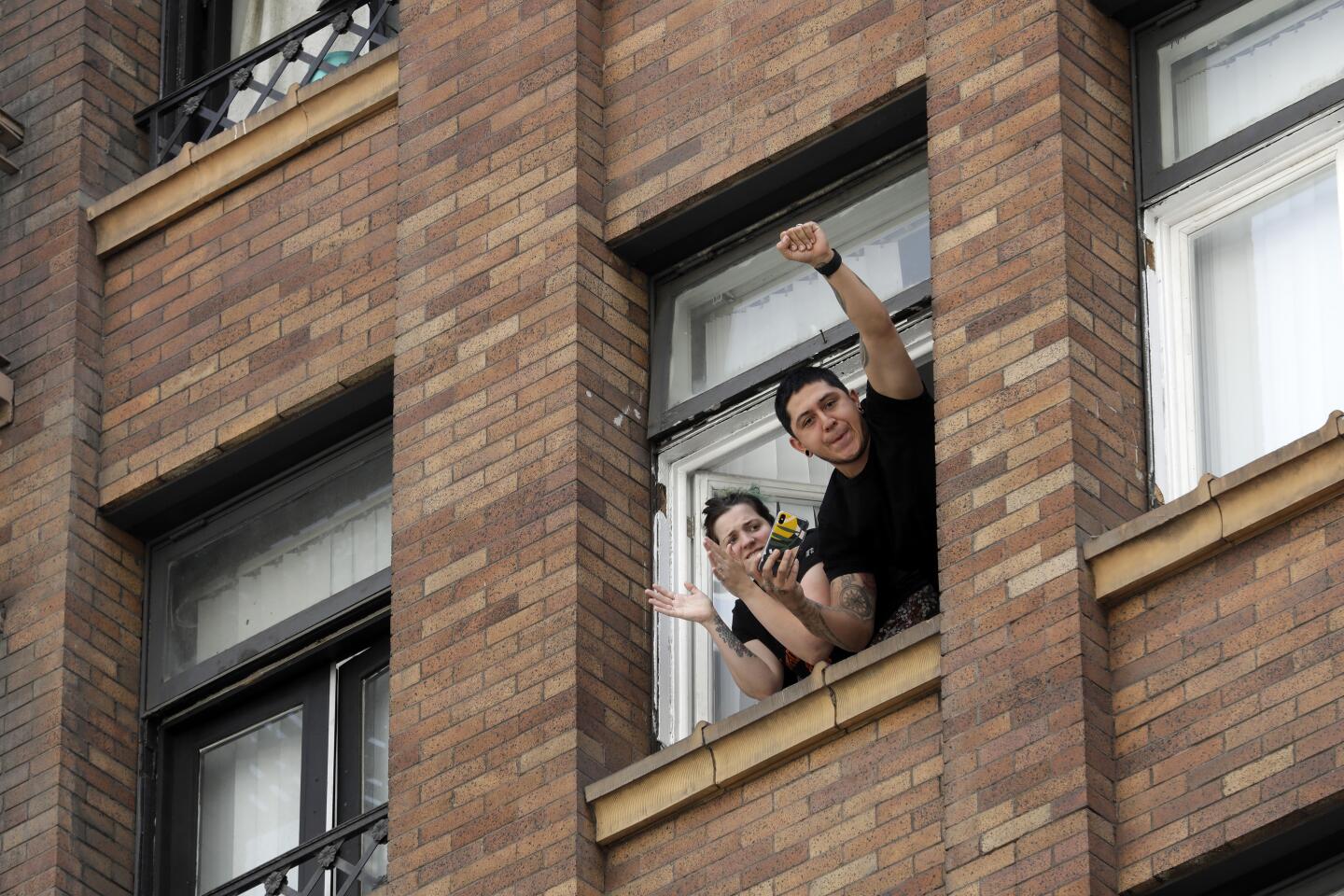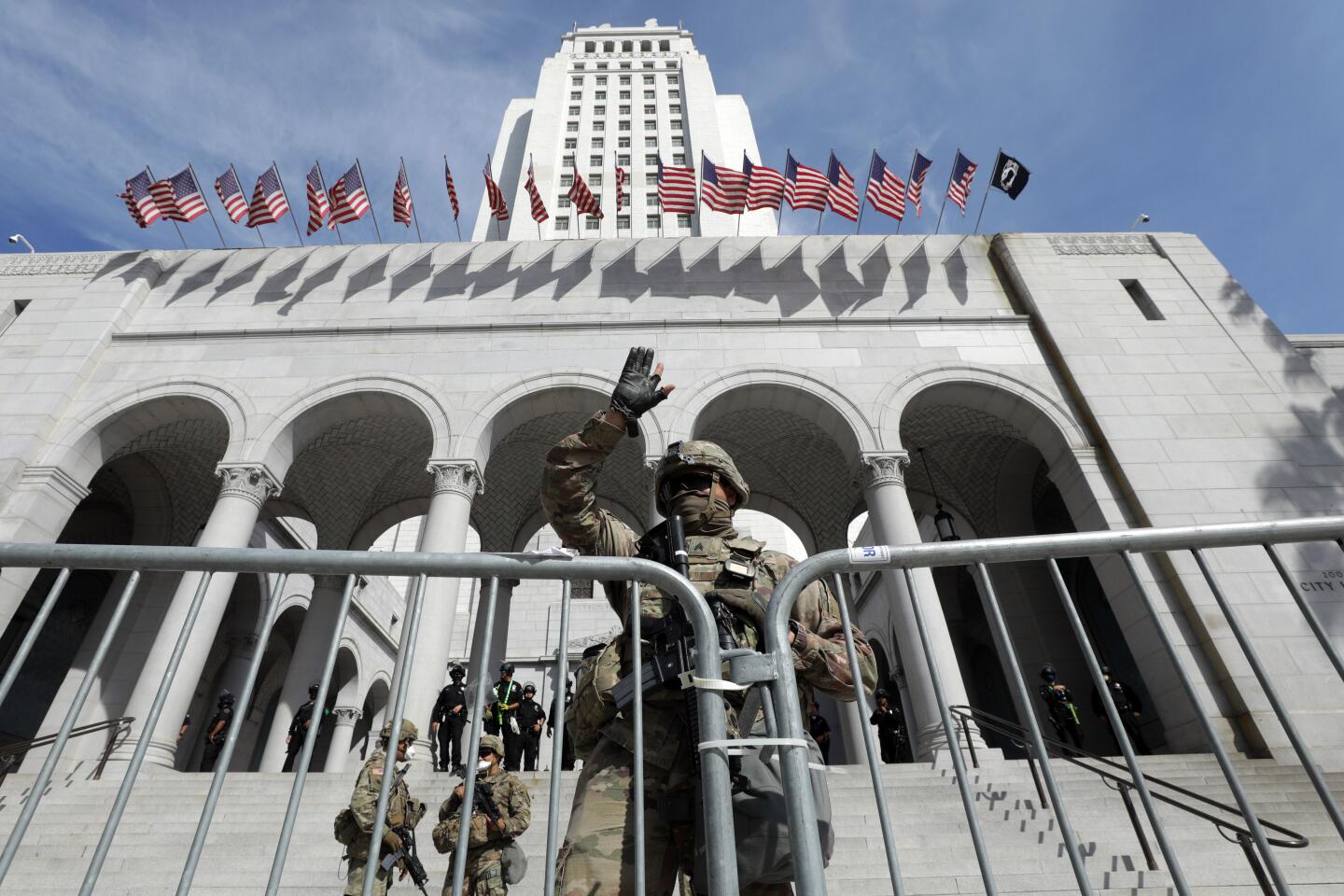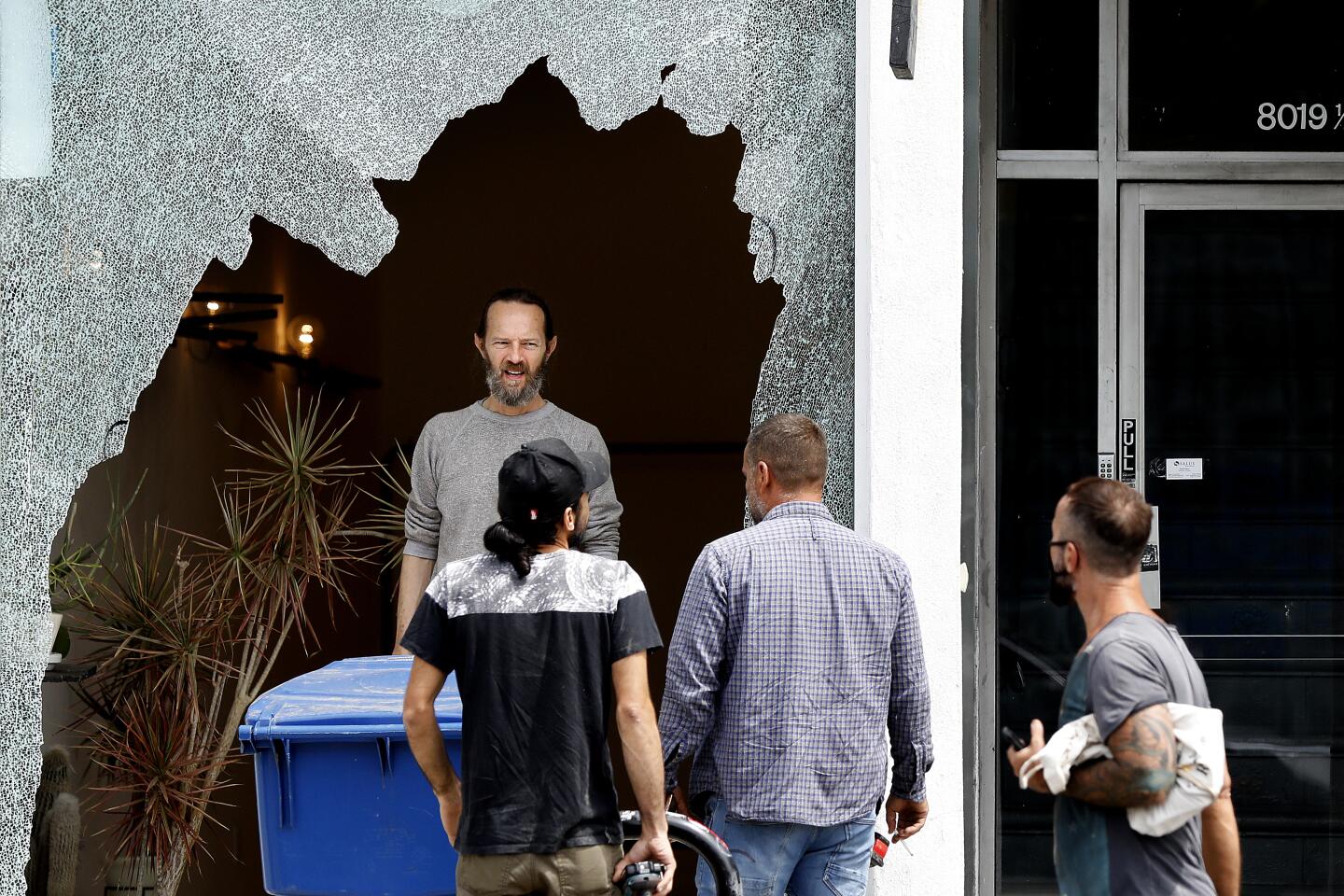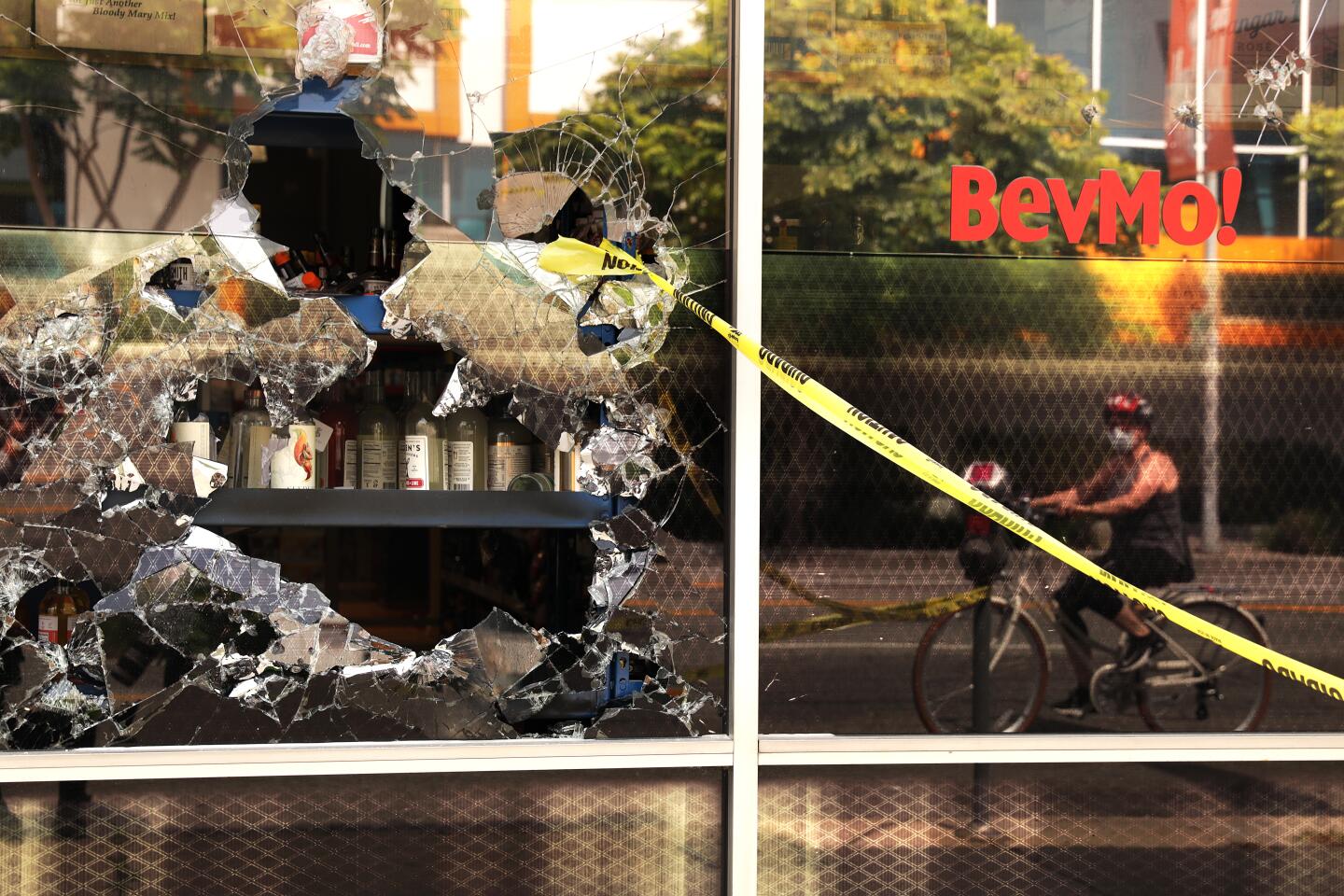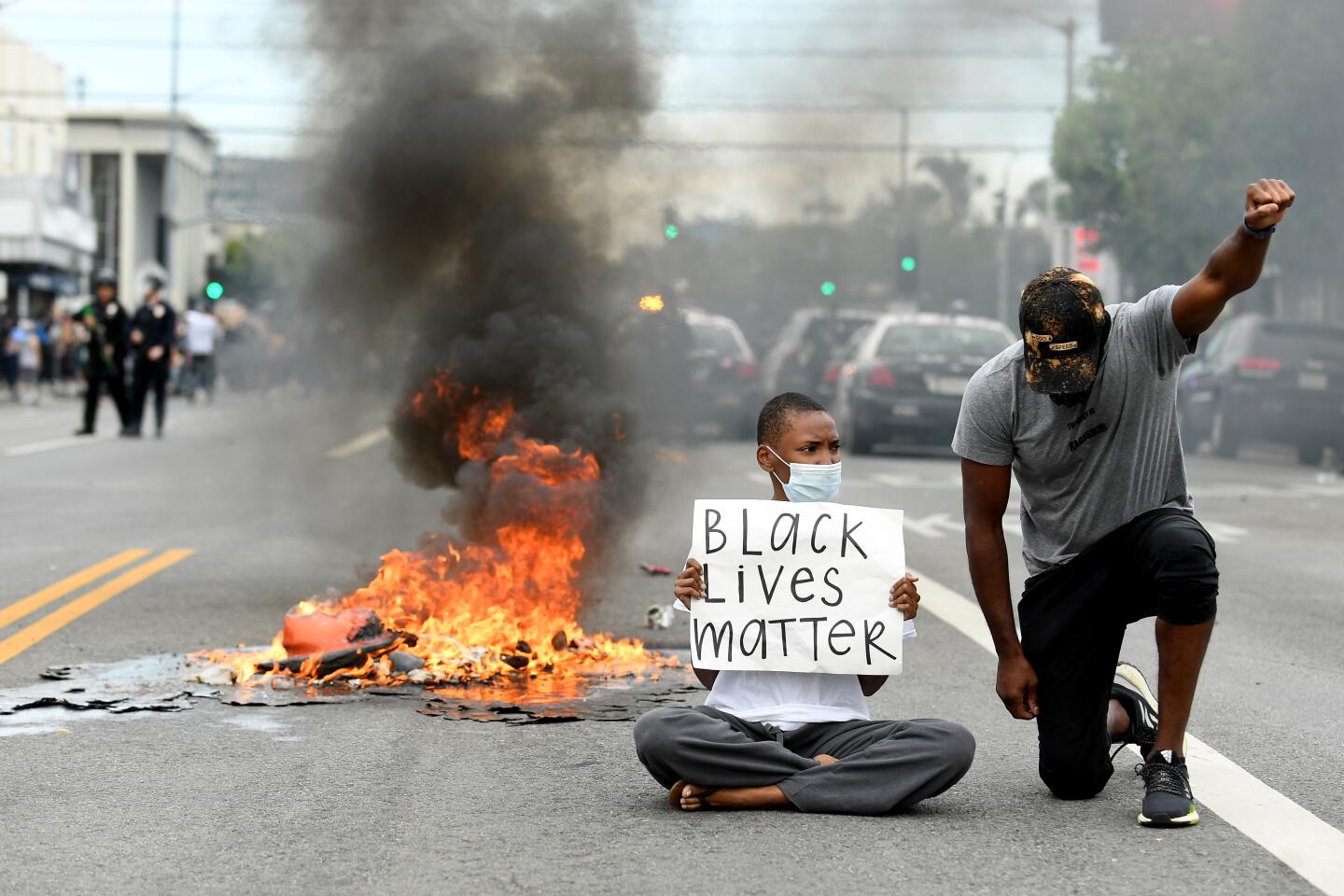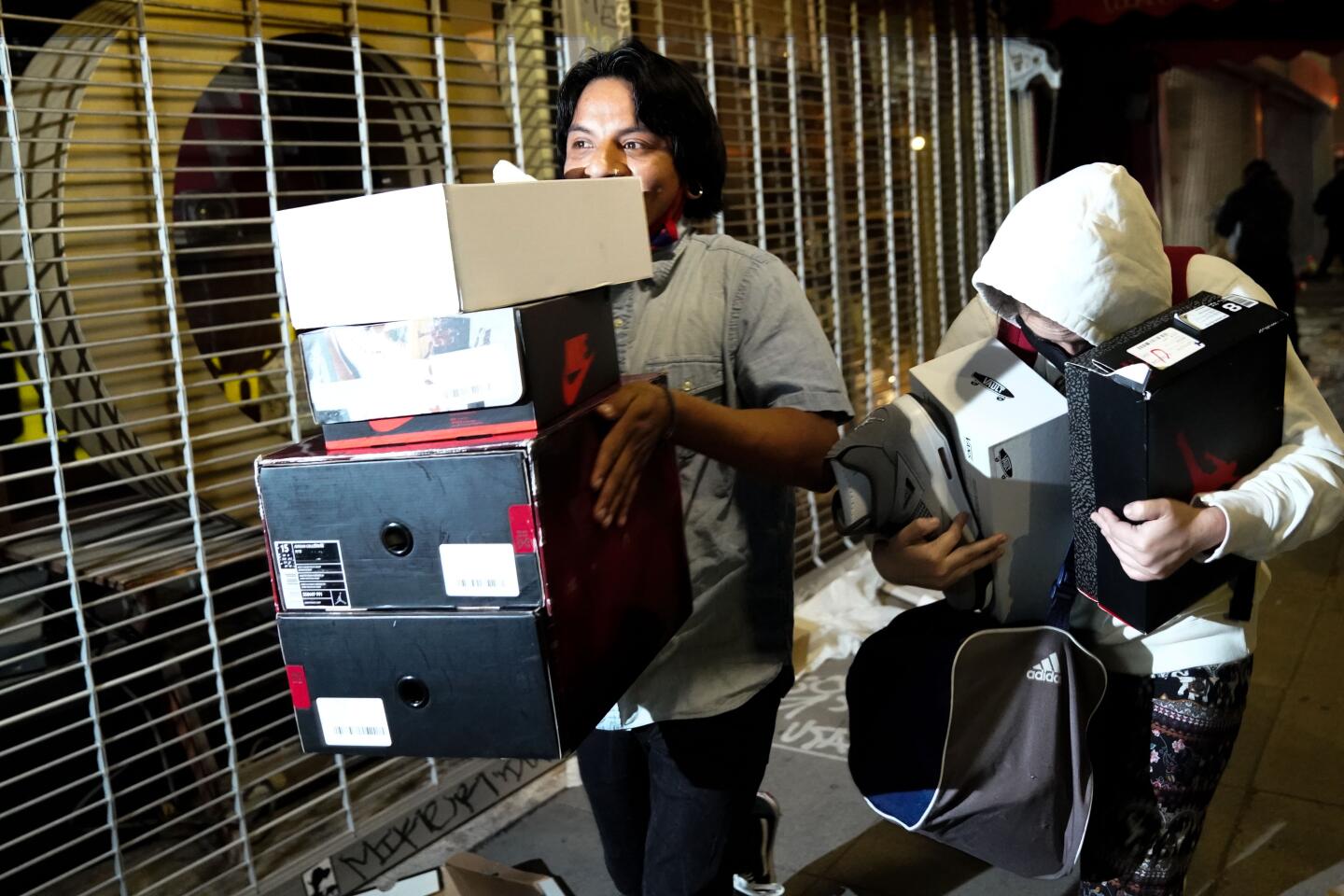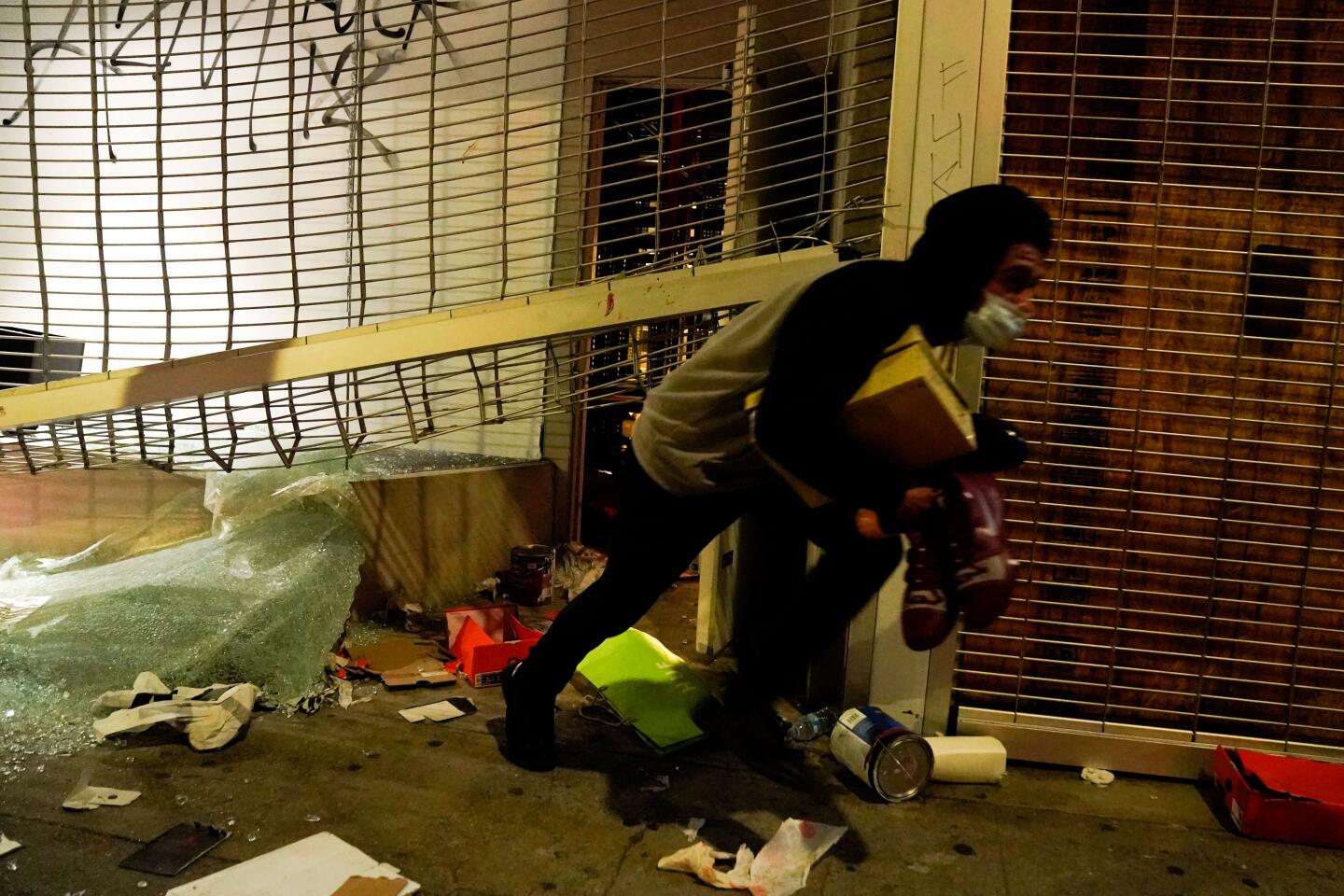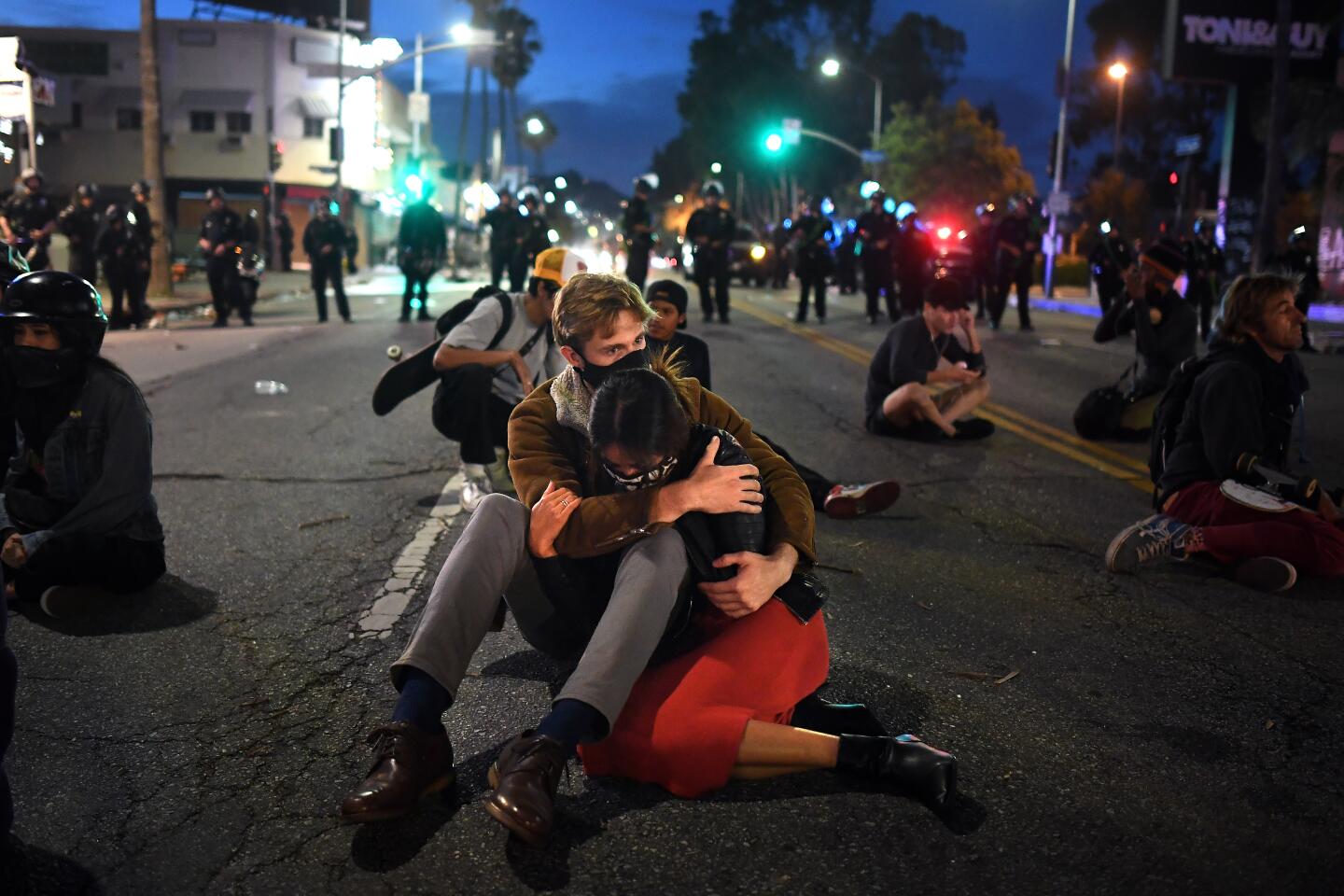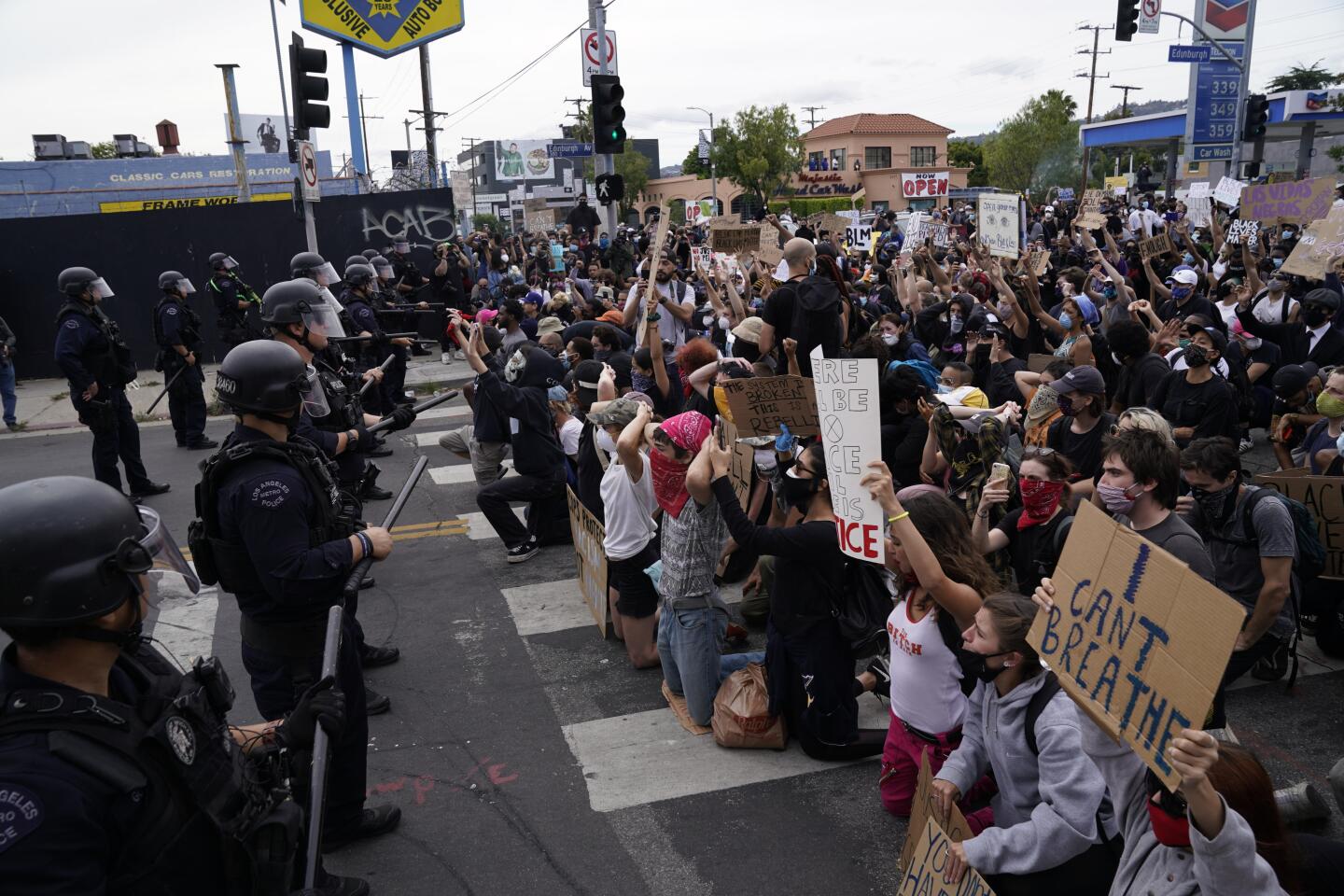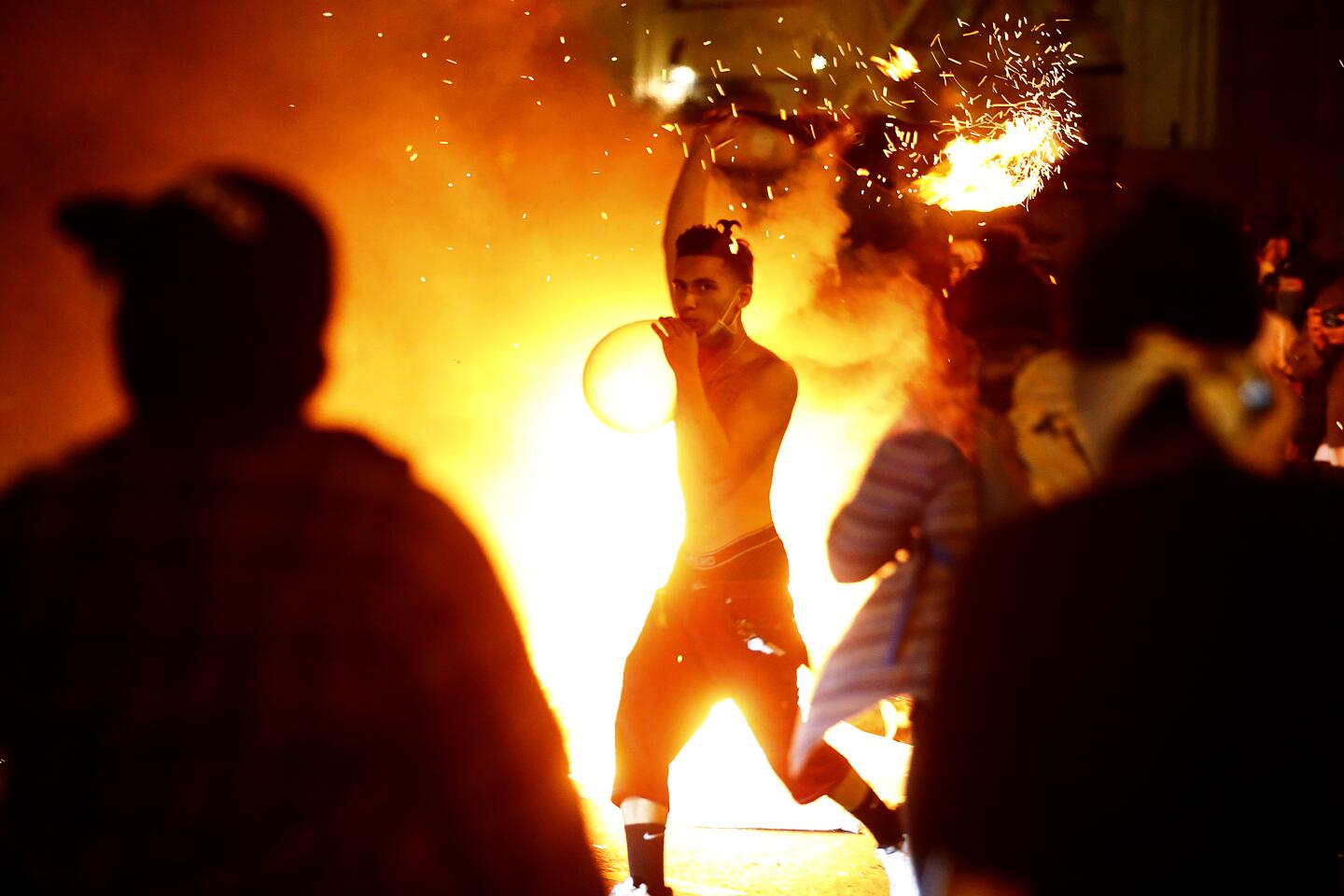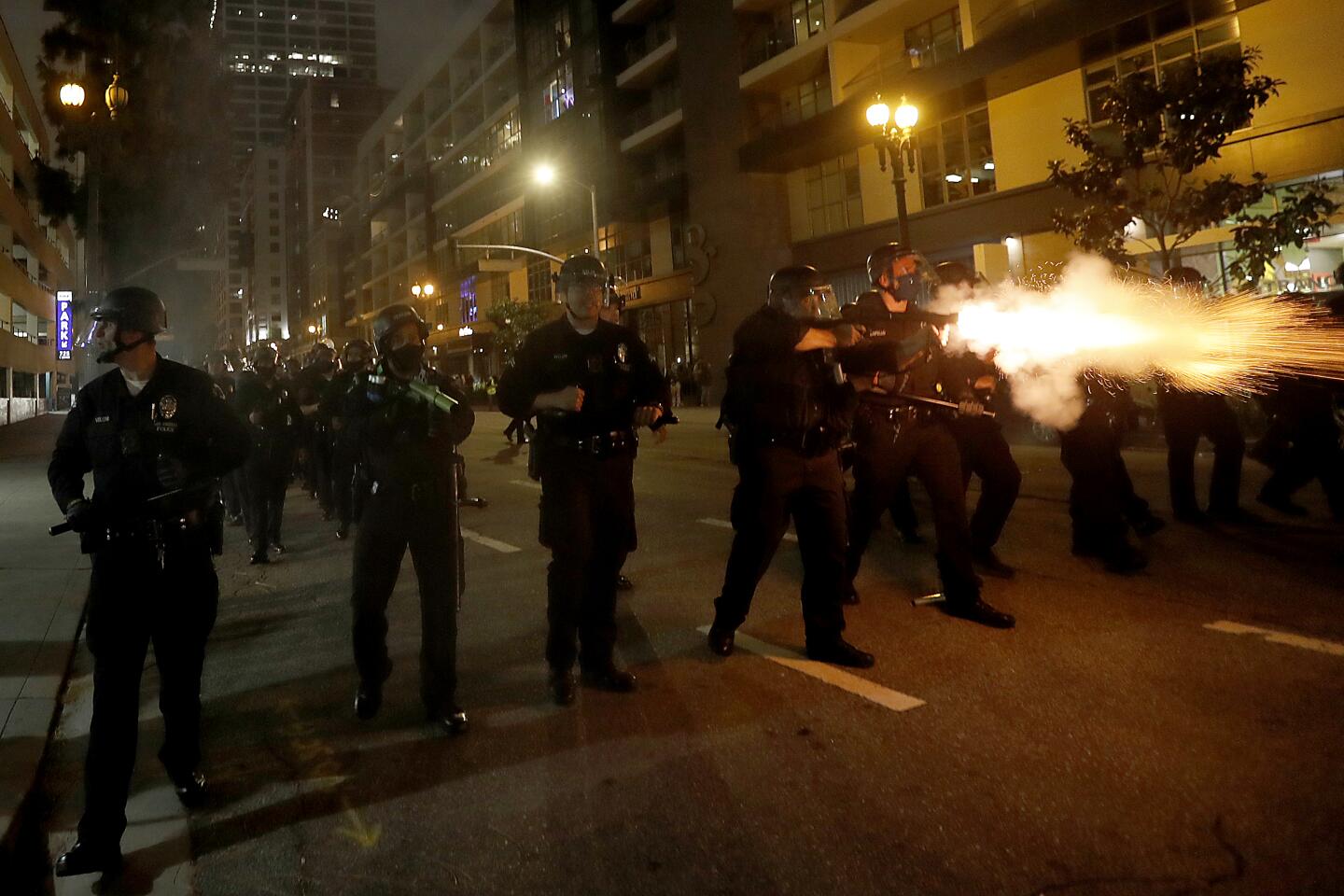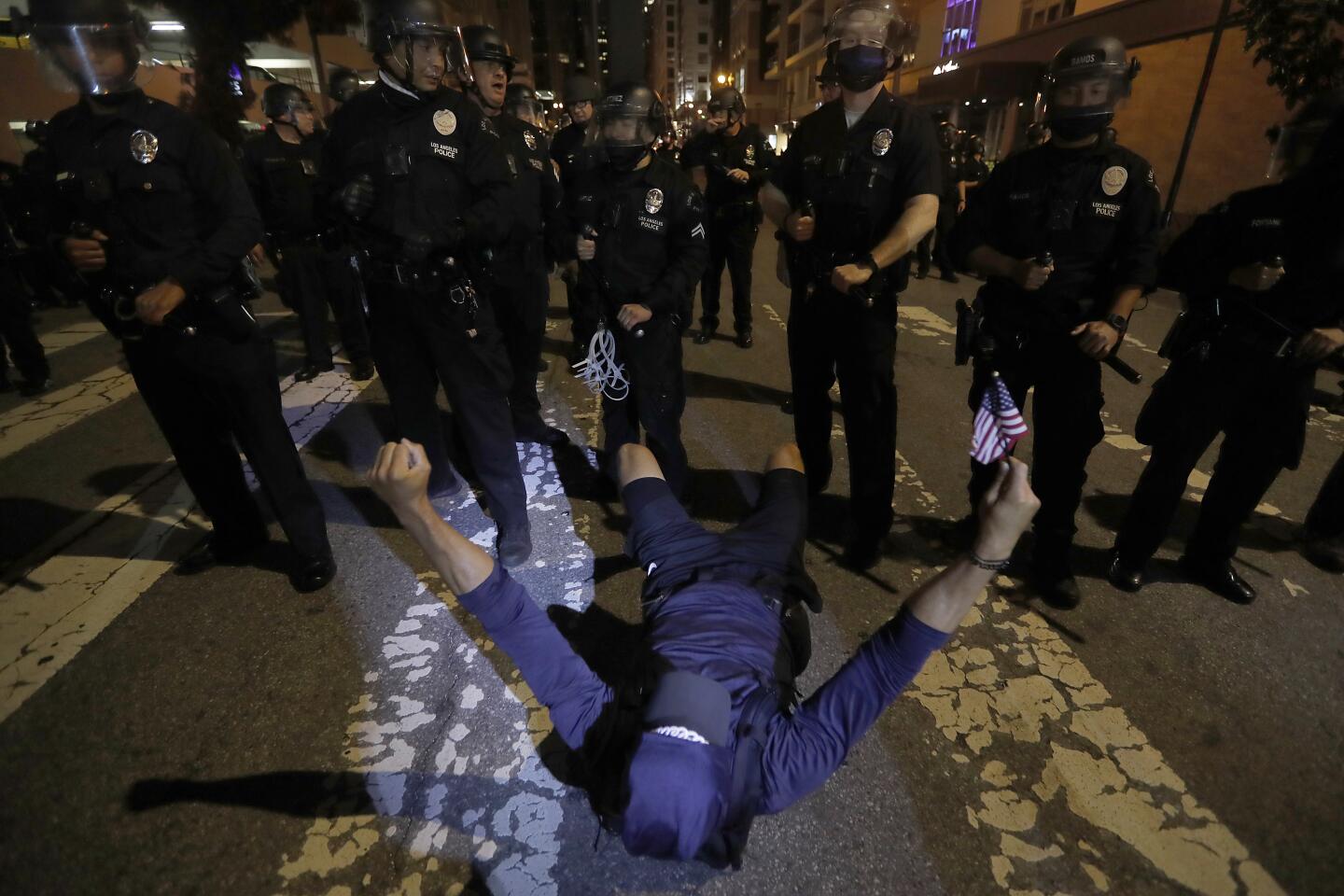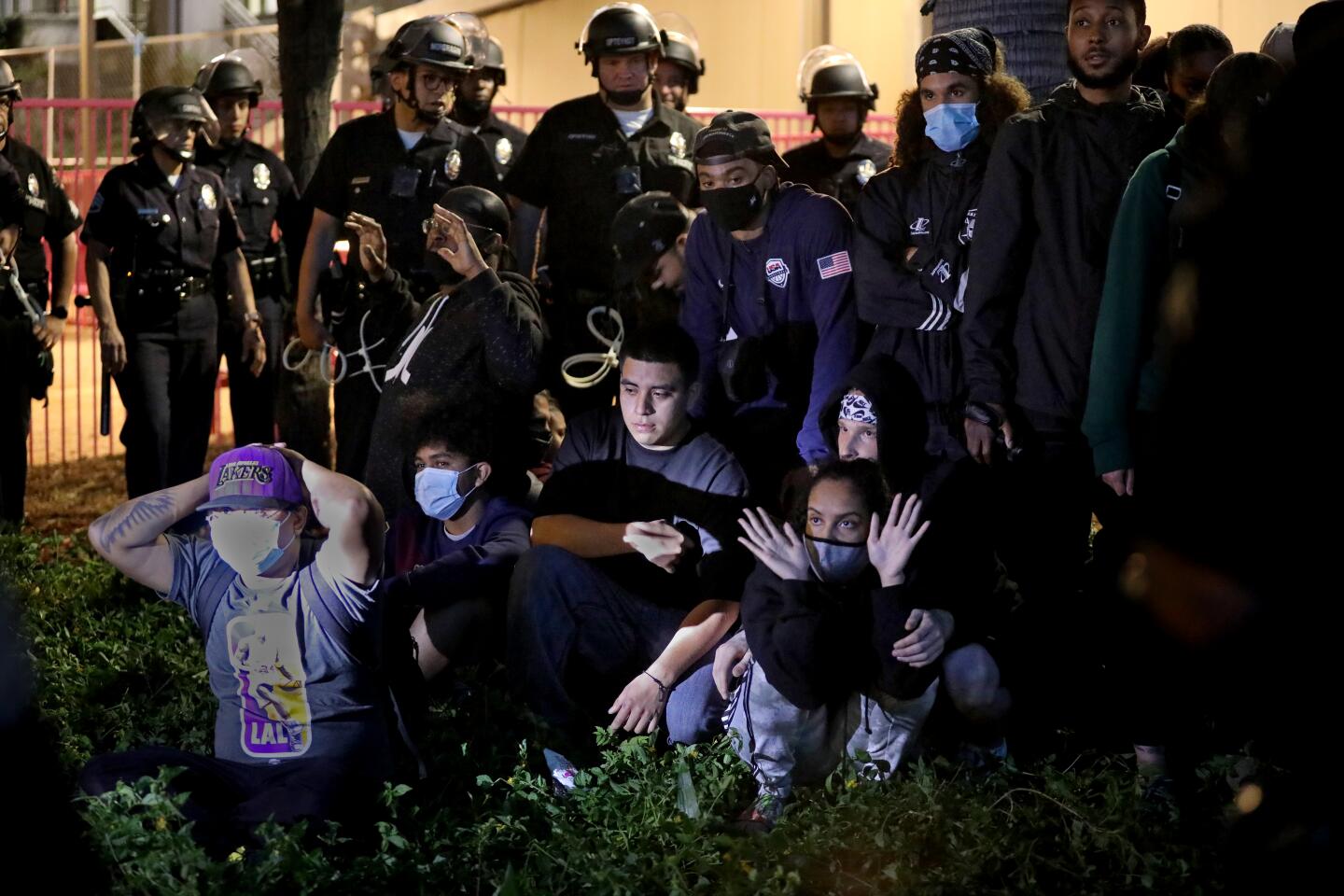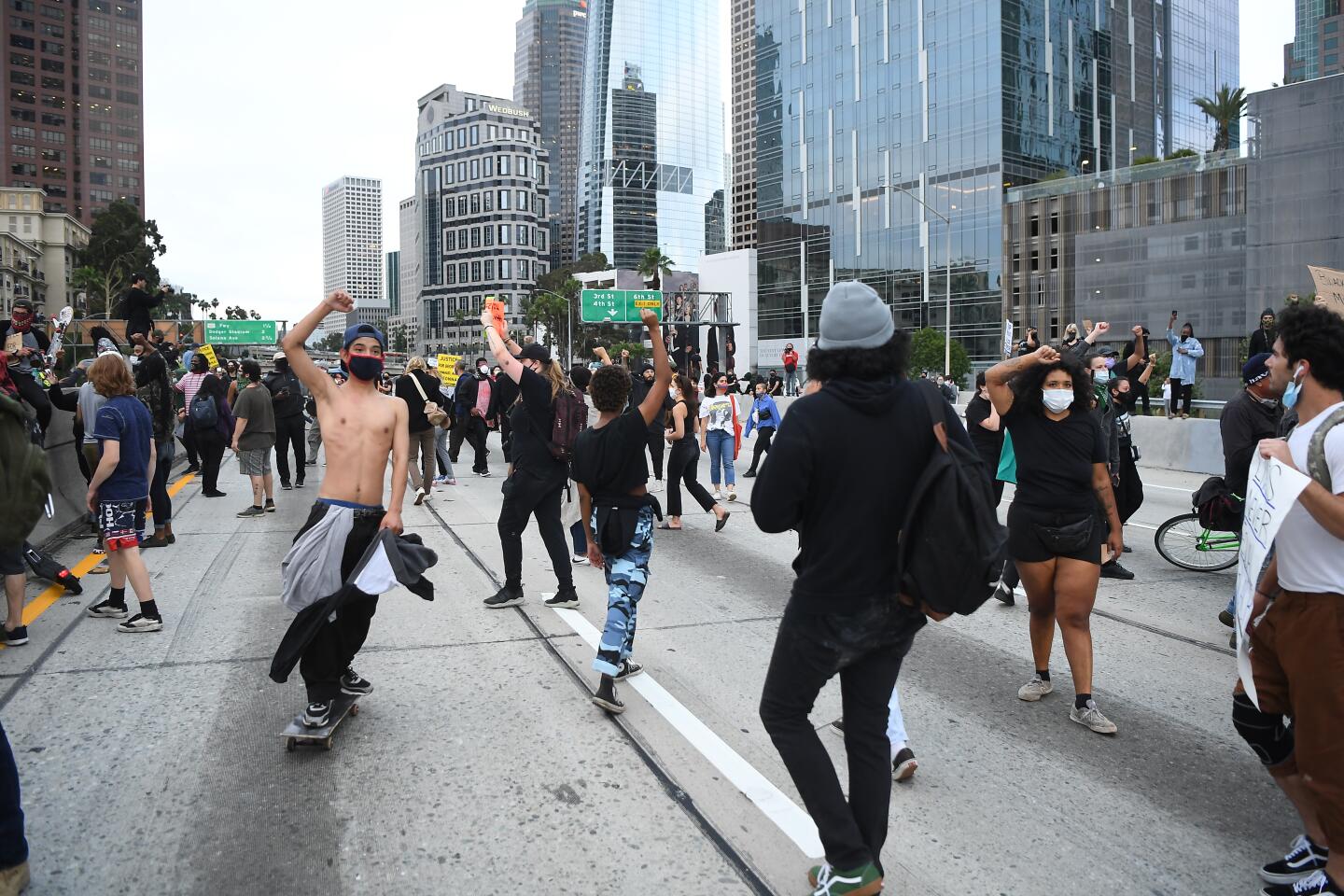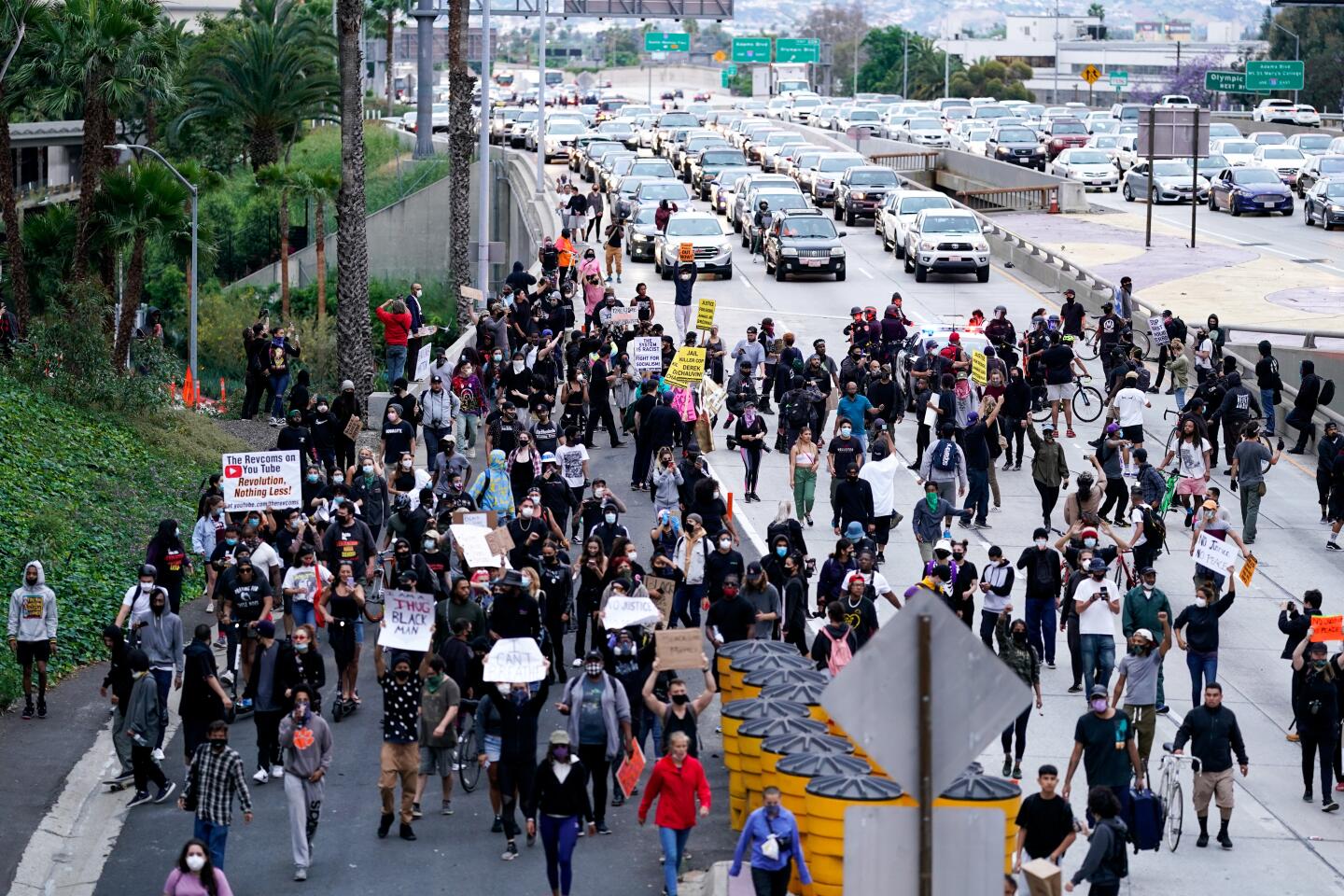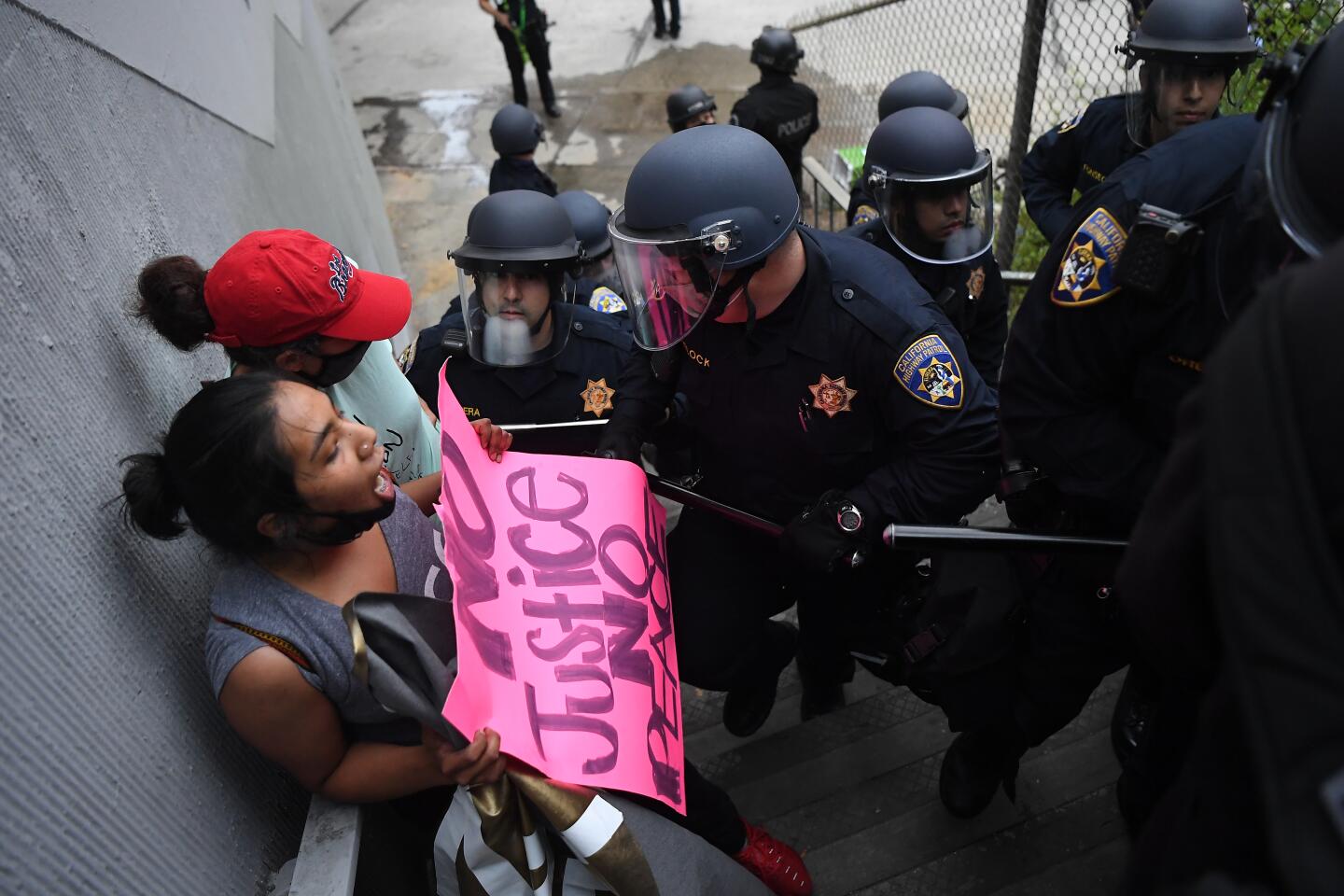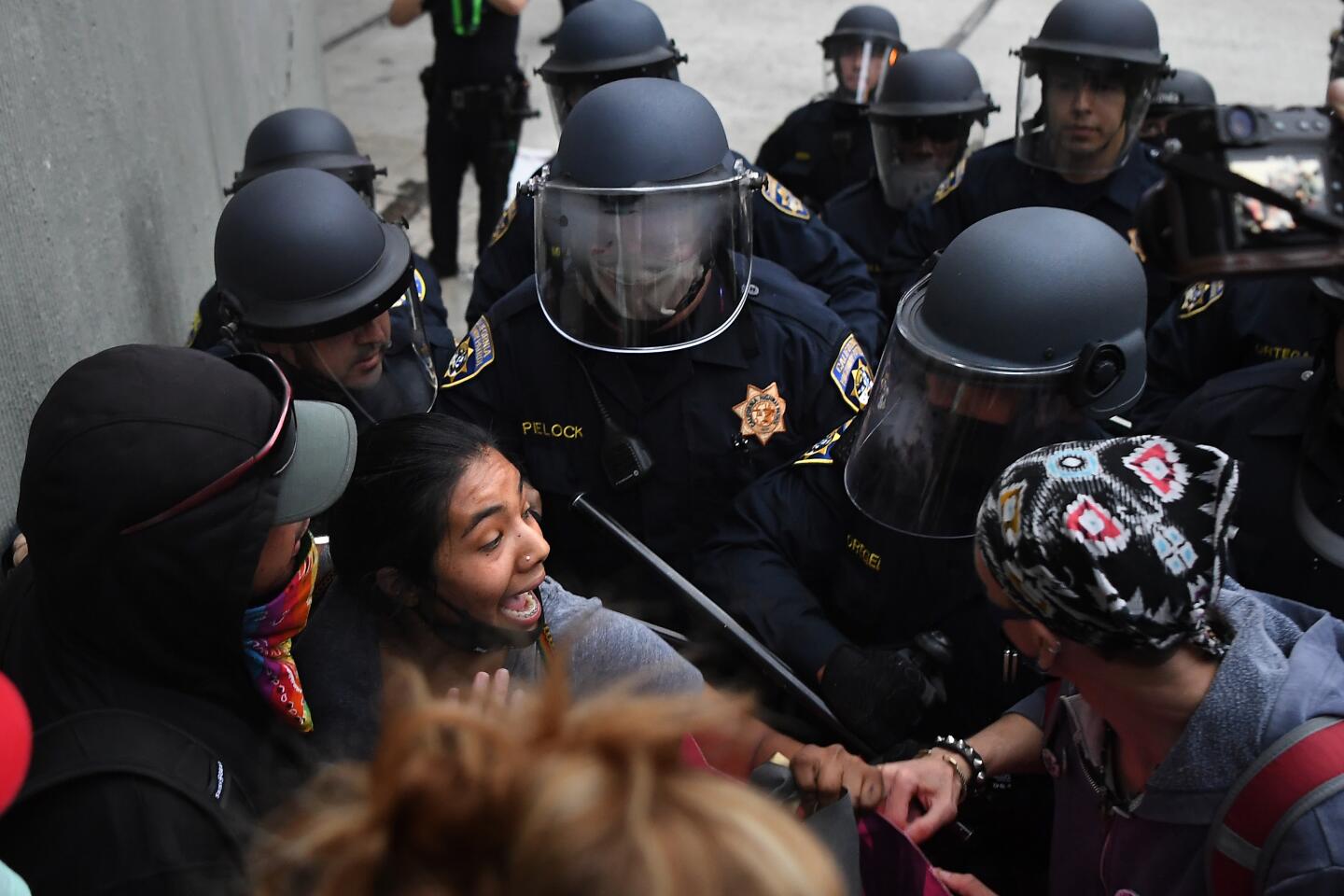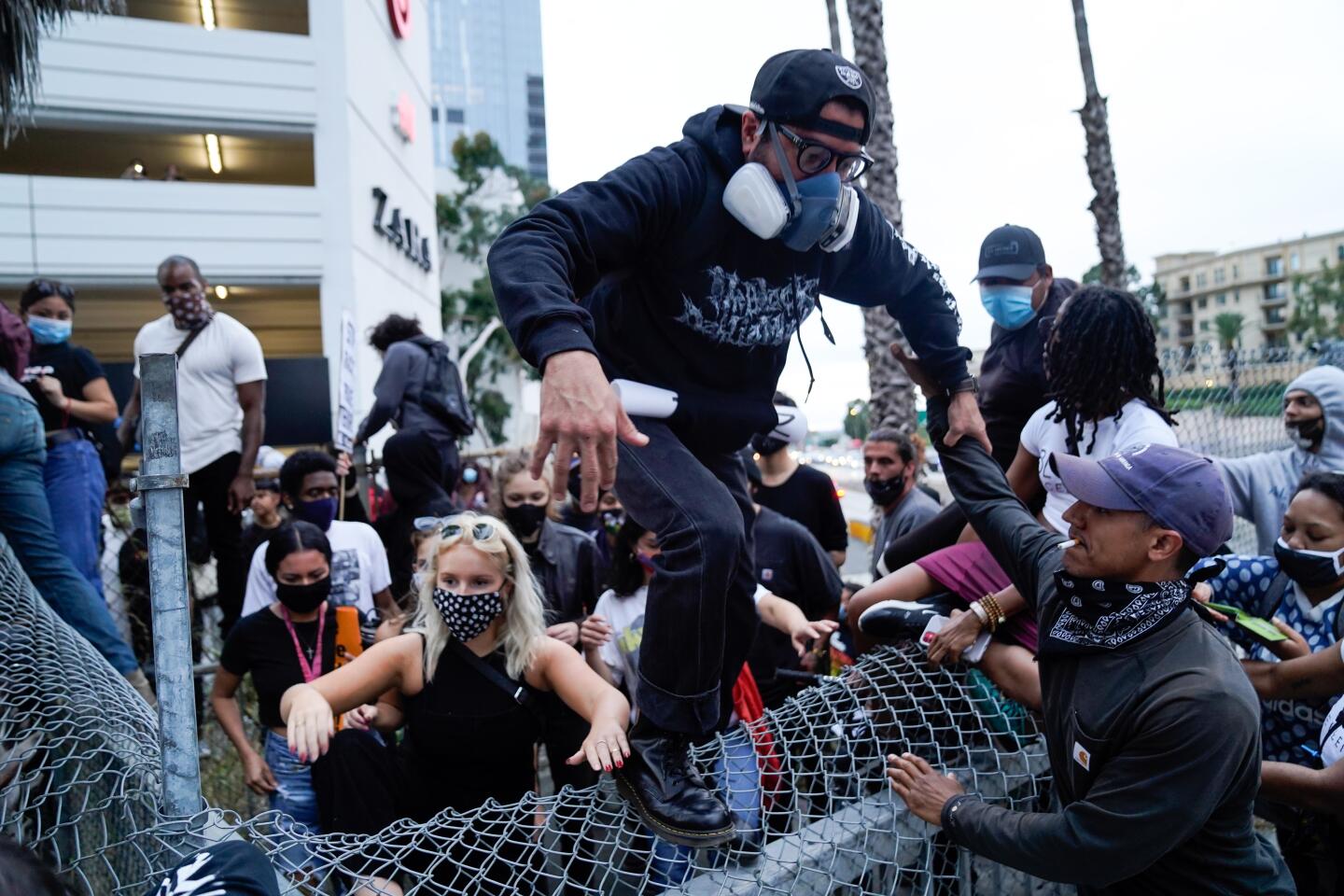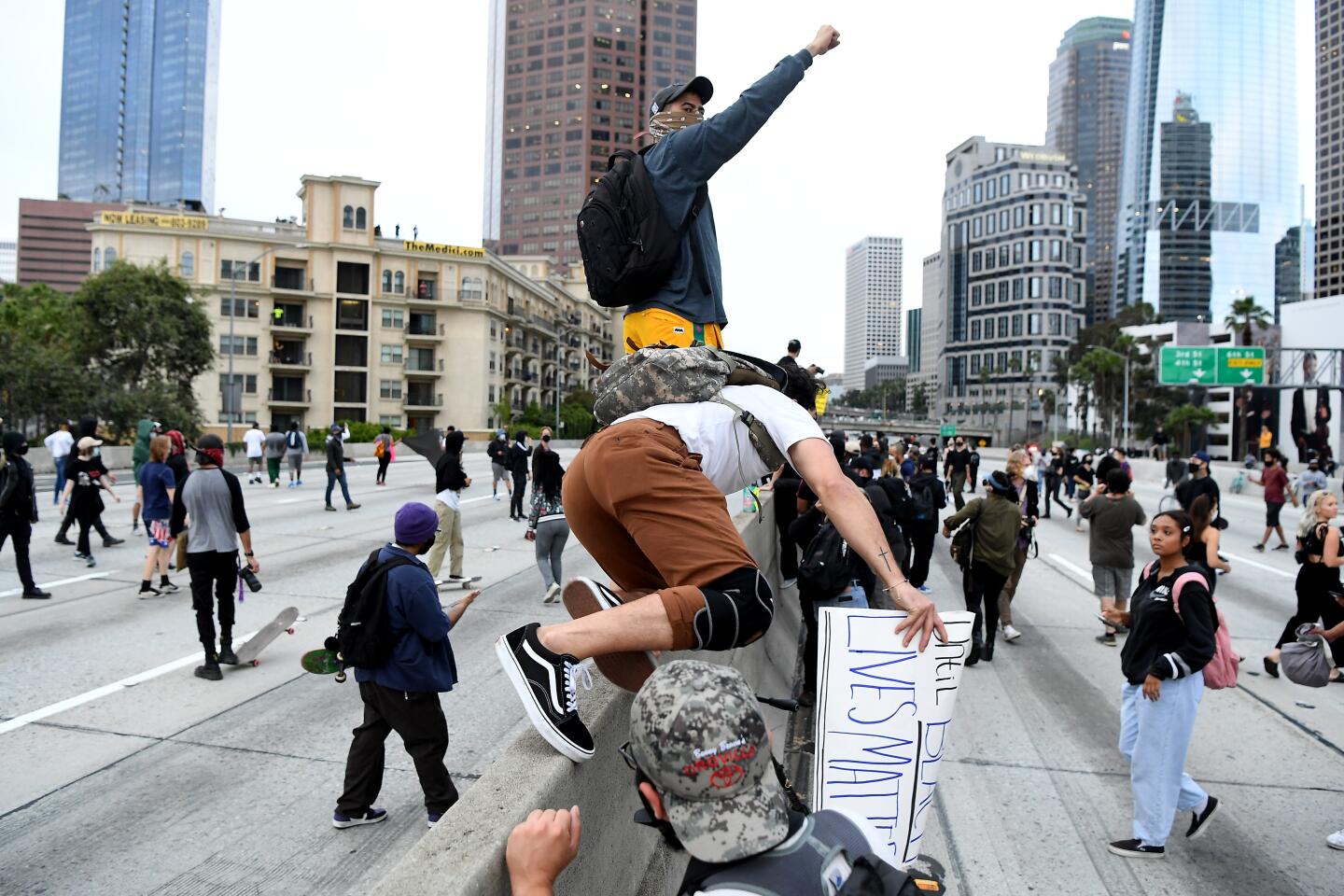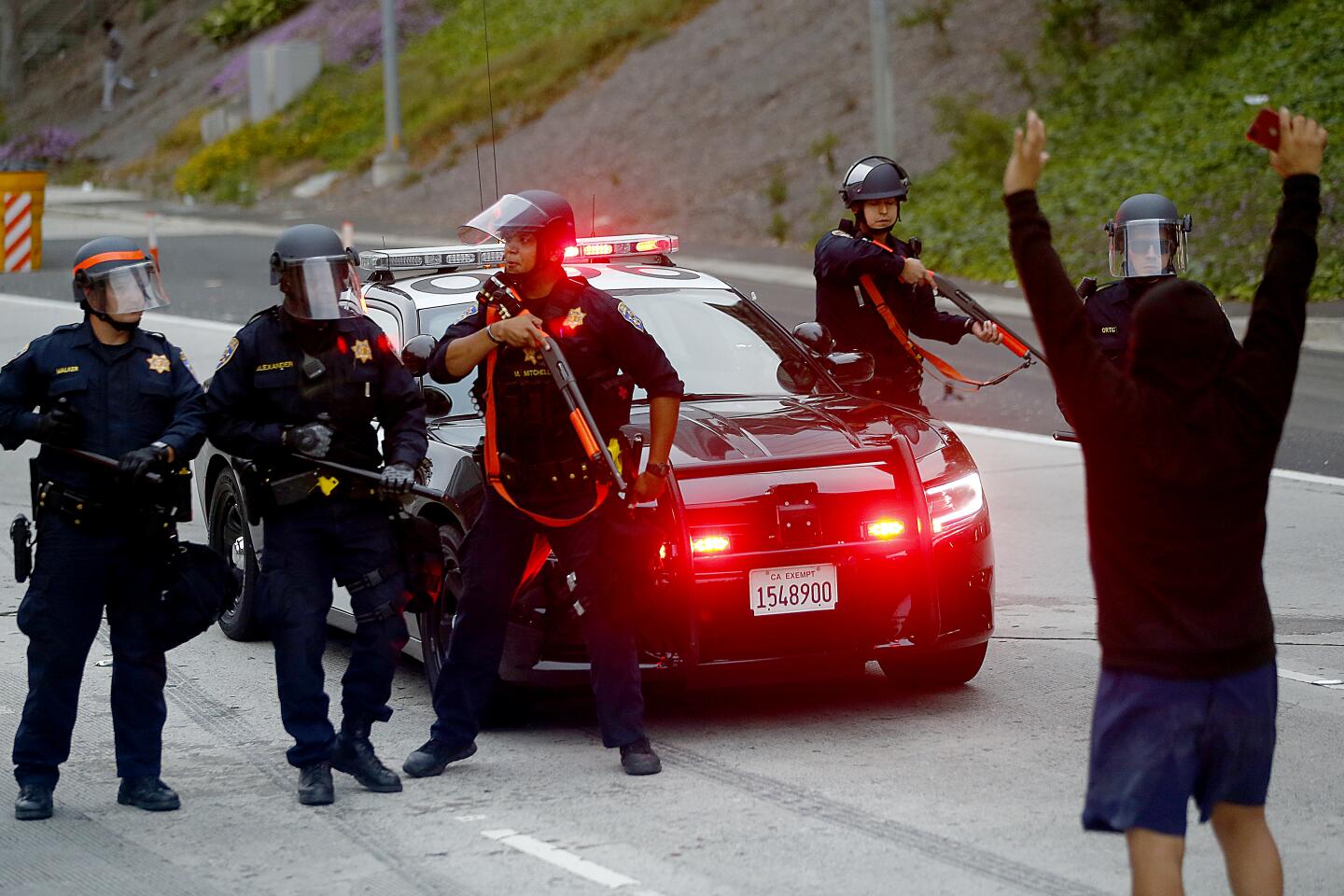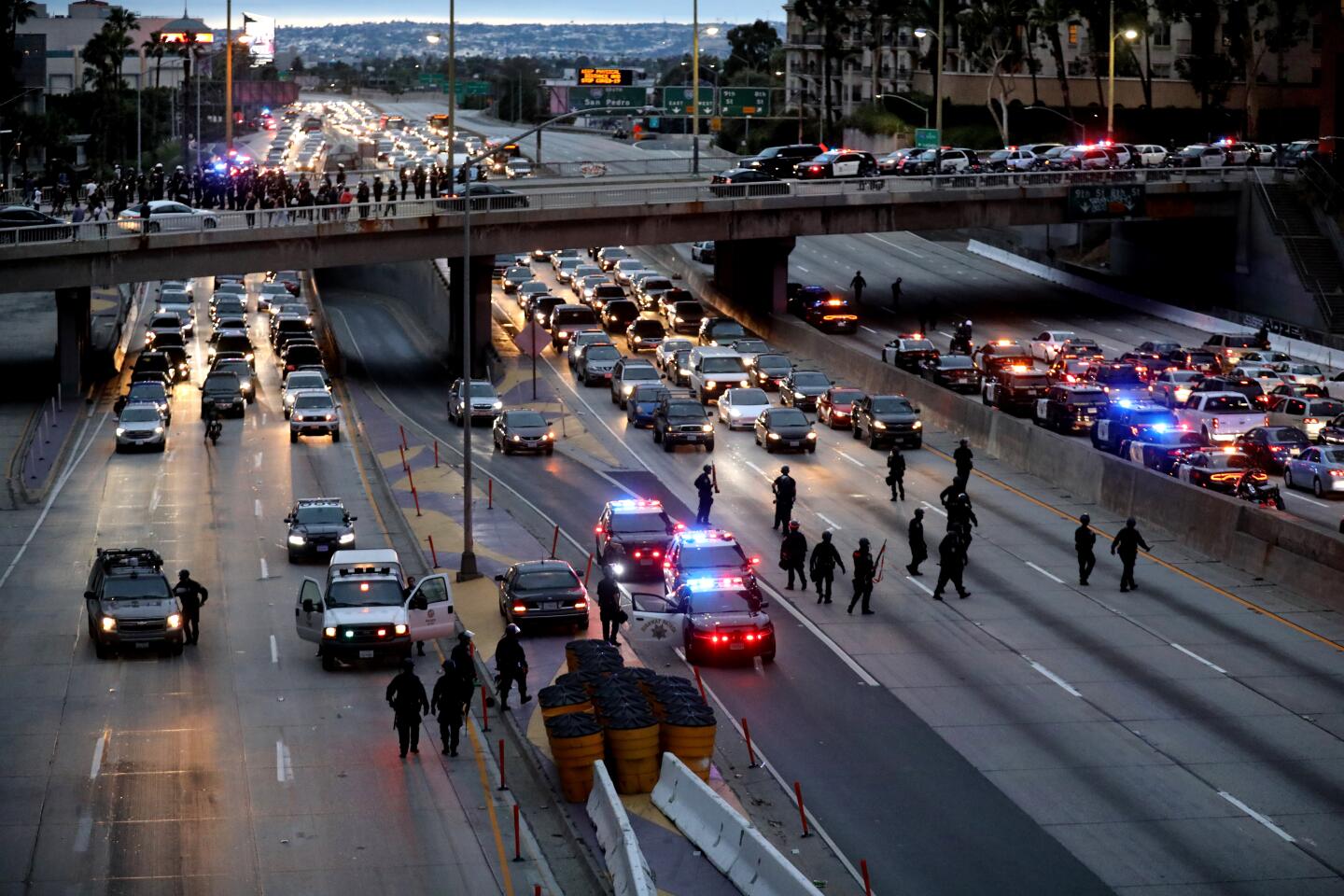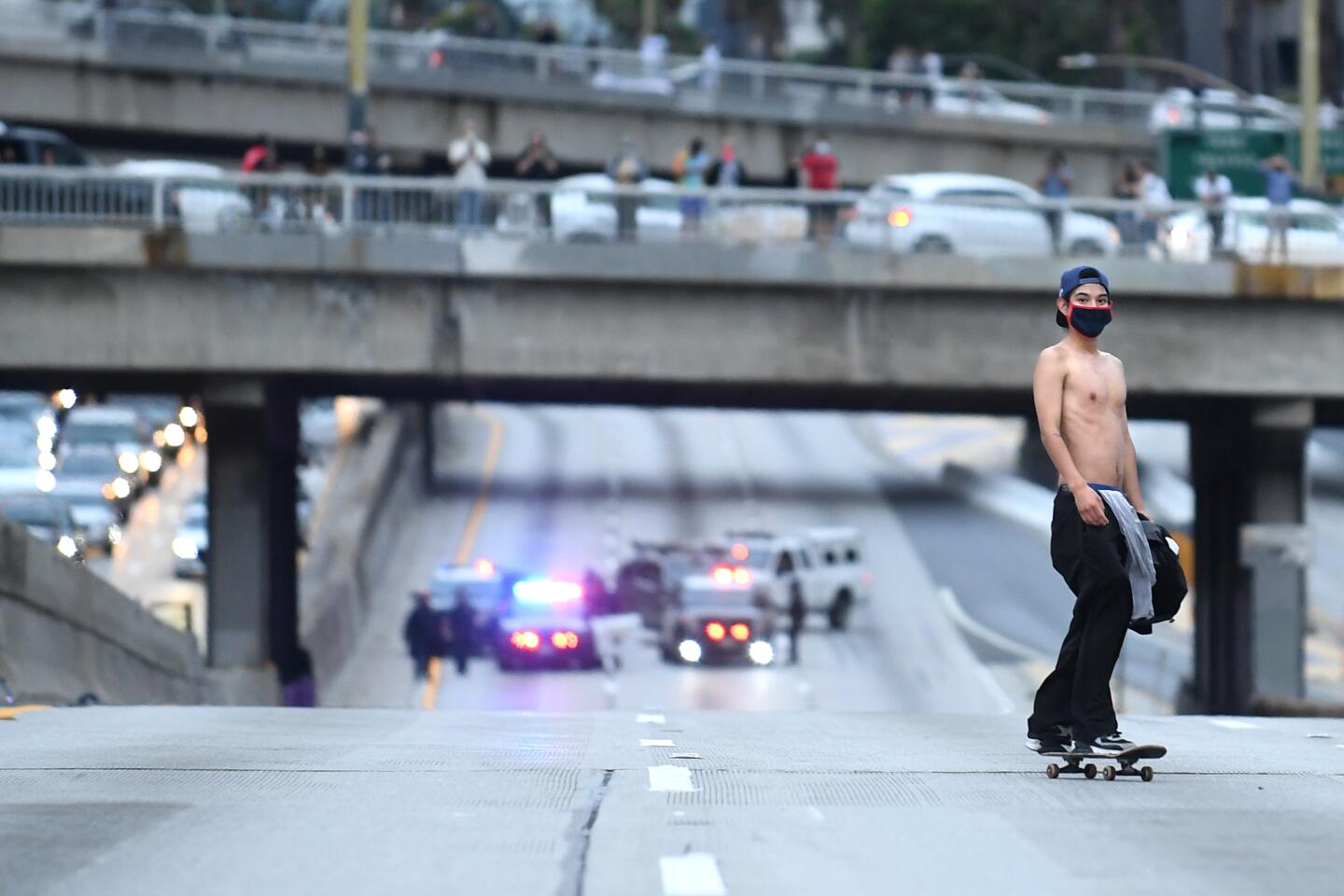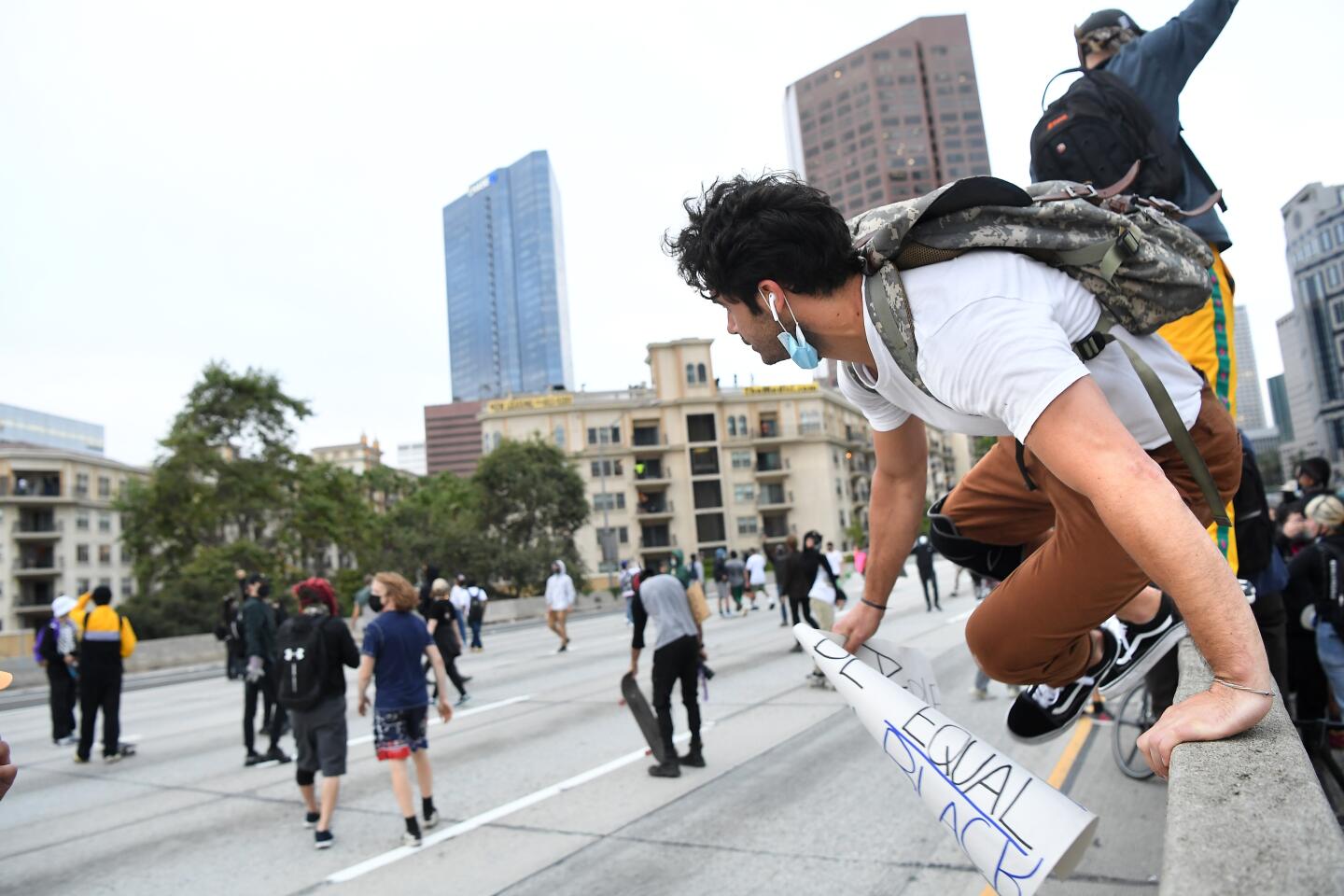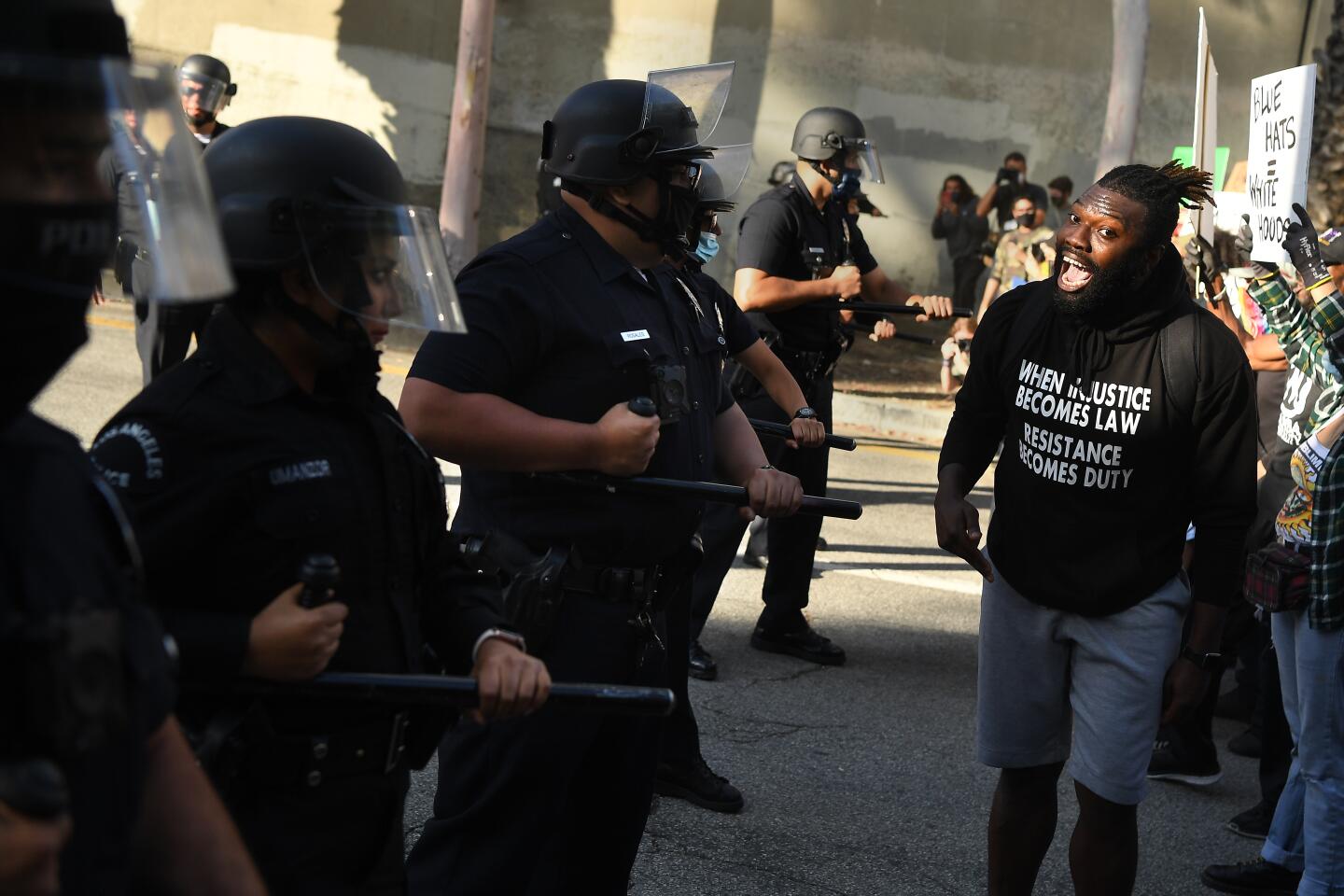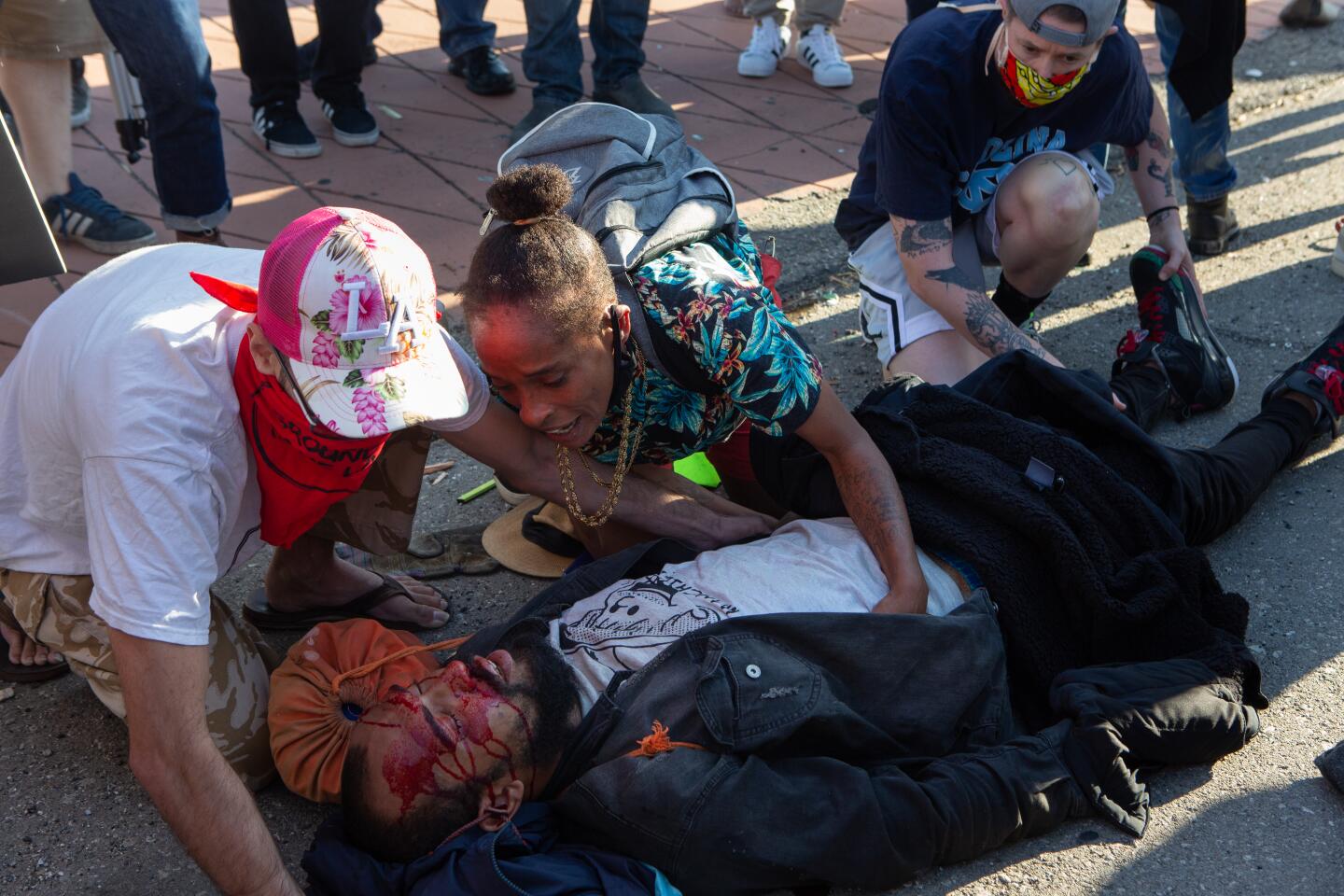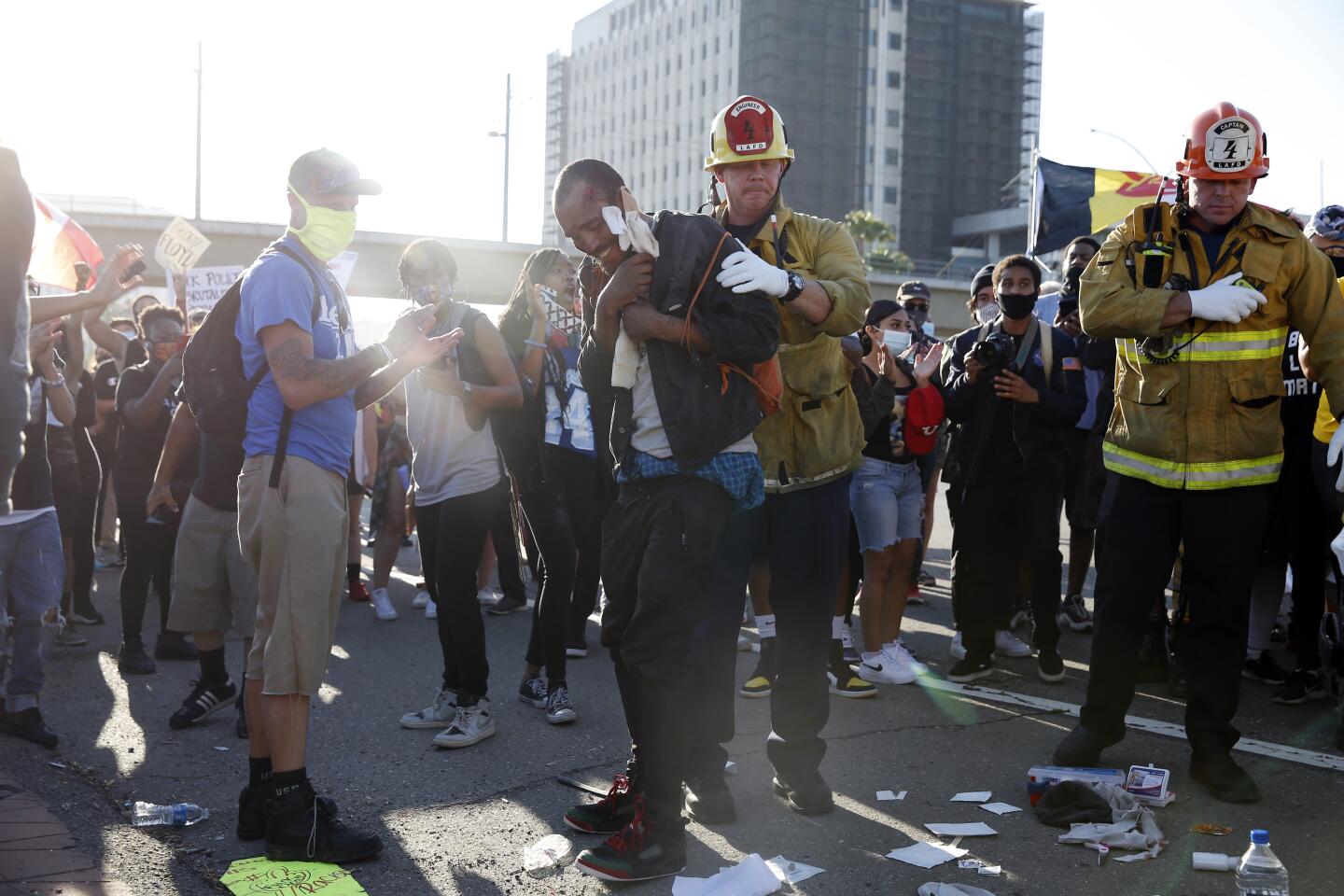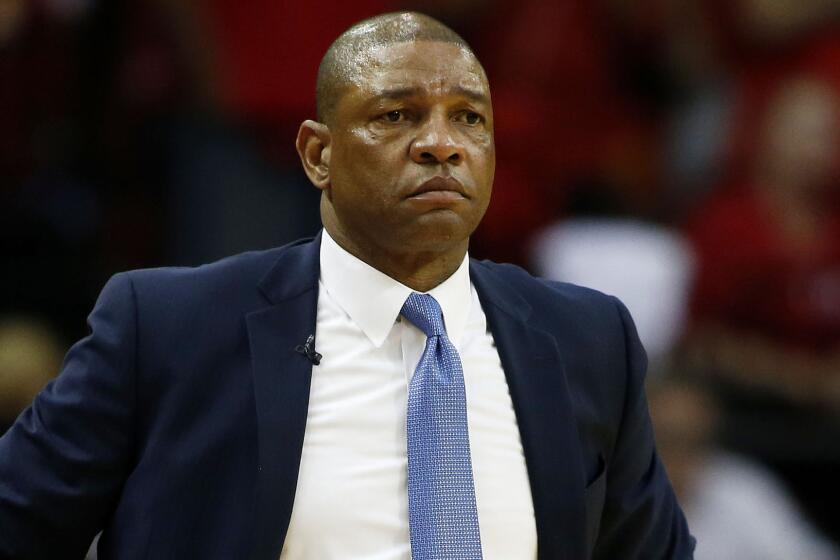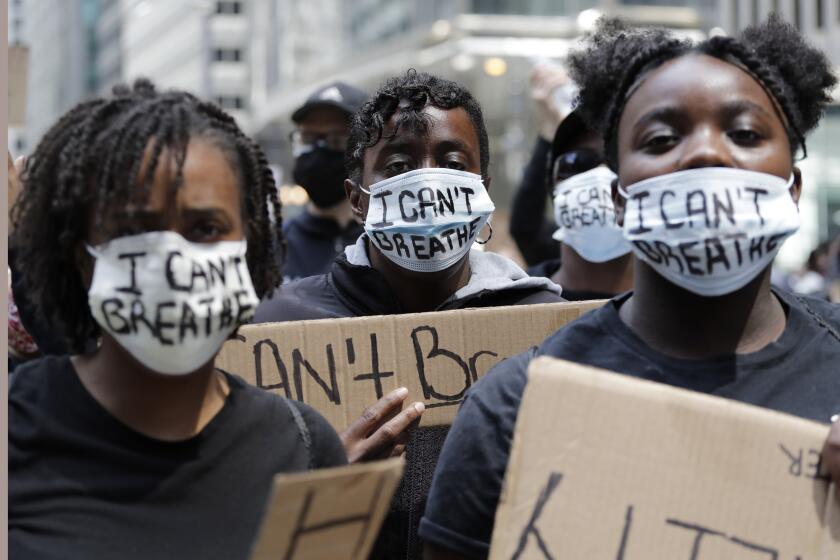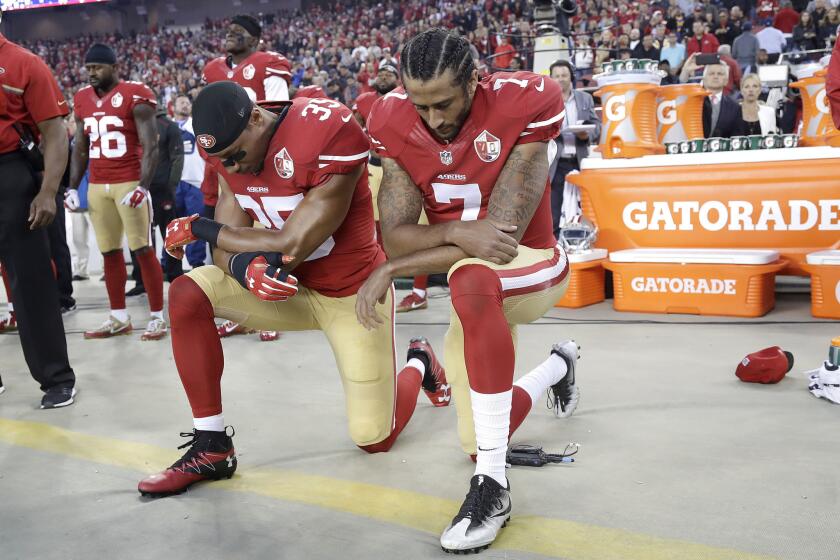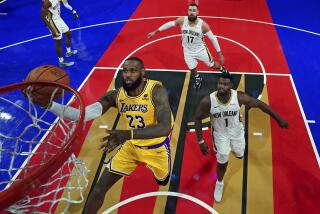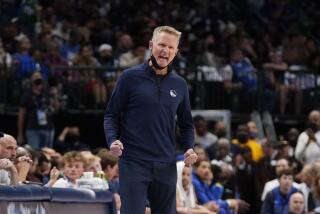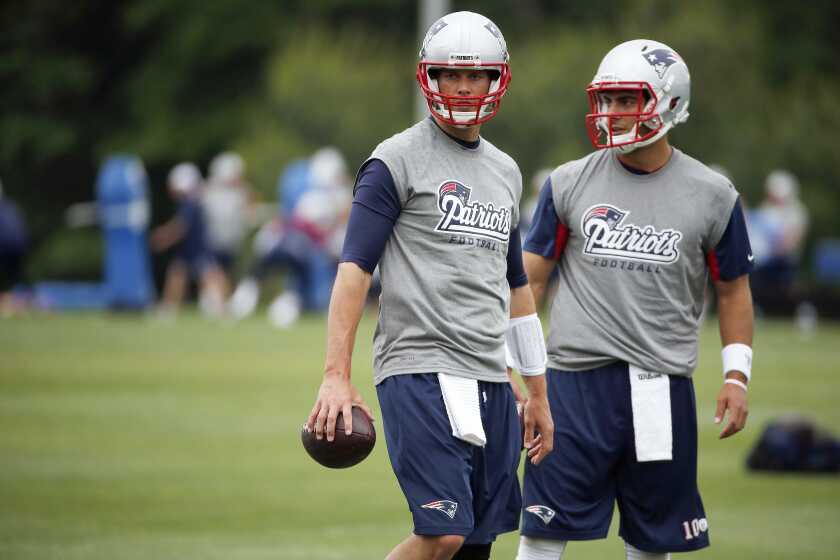NBA players and coaches plead as loud as ever against racial injustice
In the days between George Floyd’s death at the knee of a Minneapolis police officer and a country erupting into fire and violence, a white NBA general manager pondered what the news would have meant for the league had the season not been suspended because of the coronavirus.
“It would be the biggest story,” the executive said. “Rightfully so.”
In a normal year, this week would have marked the start of the NBA Finals. But even the biggest events on the NBA calendar slow down to address a death like that of Floyd, an unarmed black man. It tears at the racial wounds already felt by so many in the NBA. It will not be ignored.
NBA players, the executive said, perhaps more than any other professional athletes, have been empowered to address any injustice, but especially racial injustice. From “I Can’t Breathe” T-shirts to Donald Sterling’s banishment to steps taken to address racially motivated fan misbehavior, the NBA hasn’t been hesitant to use its collective voice.
Not surprisingly, its members, past and present, are among the most vocal athletes speaking out.
In a statement released Sunday, Clippers coach Doc Rivers said the response to George Floyd’s death has been ‘decades in the making.’
Celtics forward Jaylen Brown made the 15-hour drive from Boston to Atlanta to march in the community where he grew up. Former NBA player Stephen Jackson, flanked by current Timberwolves Karl-Anthony Towns and Josh Okogie, held a passionate news conference in Minnesota to address Floyd’s death. Tobias Harris tweeted a photo of himself participating in protests in Philadelphia. Spurs guard Lonnie Walker IV helped clean up San Antonio on Sunday after a night of vandalism. Heat veteran Udonis Haslem addressed the Miami community about the need to protest Floyd’s death.
“I wish America loved black people as much as it loves black culture,” former NBA player Jalen Rose said on ESPN last week. “We’re not here designed only to entertain. We’re actually living and breathing human beings.”
Countless others, including LeBron James, have used social media to express their pain. To his 46.2 million followers, James retweeted the messages of Rose and rapper/activist Killer Mike, who appeared with Atlanta mayor Keisha Lance Bottoms on Friday to urge political responses instead of rioting.
“Why Doesn’t America Love US!!!!!????TOO.” James wondered early Sunday morning.
It’s been more than two years since James attracted the ire of Fox News host Laura Ingraham for discussing politics. During a segment in which she called James’ words “barely intelligible,” Ingraham punctuated her message by telling him and other NBA players to “shut up and dribble.”
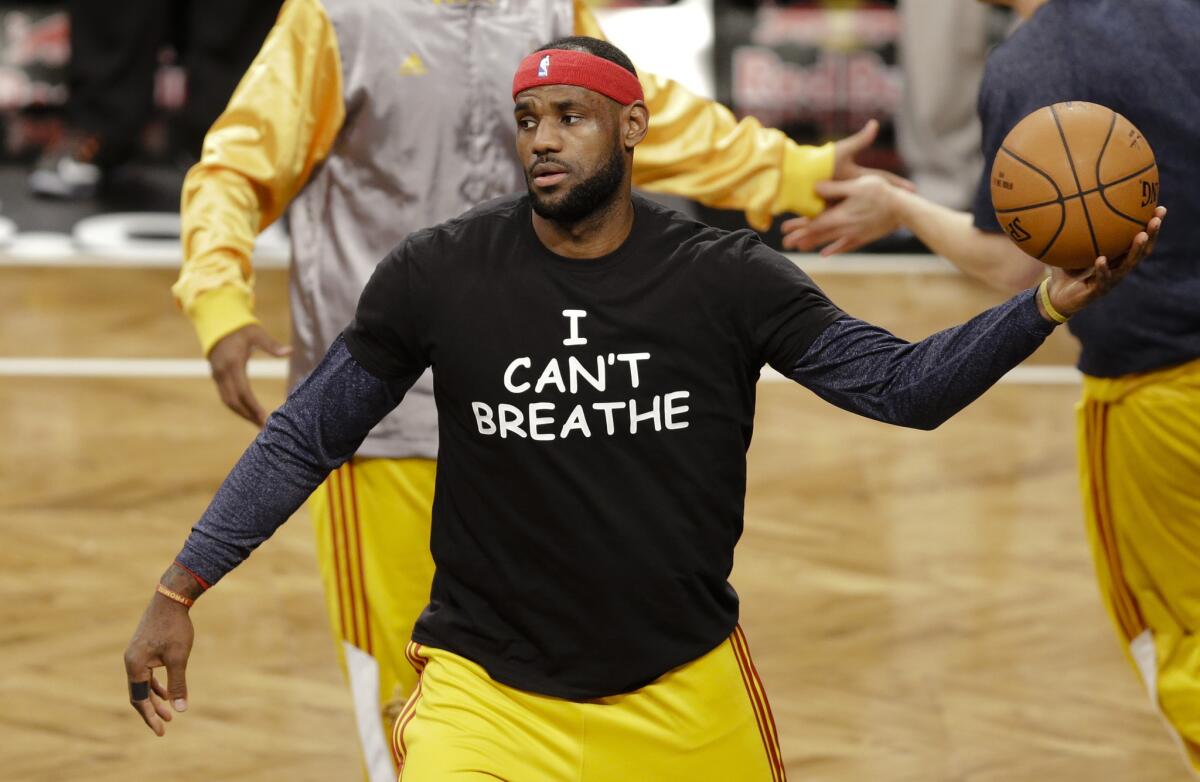
The NBA and its teams increasingly have supported their players’ decisions to not stick to sports. In a memo to all 30 teams, NBA commissioner Adam Silver told teams it’s their duty to make “a meaningful difference” in their communities.
“Racism, police brutality and racial injustice remain part of everyday life in America and cannot be ignored,” Silver wrote. “At the same time, those who serve and protect our communities honorably and heroically are again left to answer for those who don’t.
”...Together with our teams and players, we will continue our efforts to promote inclusion and bridge divides through collective action, civic engagement, candid dialogue and support for organizations working towards justice and equality. We will work hand-in-hand to create programs and build partnerships in every NBA community to address racial inequity and bring people together.”
Several teams, including the Lakers, issued statements condemning racism. And some of the league’s most powerful black voices on its sidelines and in its front offices are speaking out too.
Clippers coach Doc Rivers, the son of a Chicago police officer, delivered a personal written message short on euphemism. Rivers calls Floyd’s death a “murder.” He recounted being called more racial slurs than he can remember. And he said inaction amounts to complicity.
“Too often, people rush to judge the response, instead of the actions that prompted it,” he wrote. “We have allowed too many tragedies to pass in vain. This isn’t an African-American issue. This is a human issue.”
Michael Jordan made a statement too, wading into spaces he had been reluctant to during his career.
“I don’t have the answers, but our collective voices show strength and the inability to be divided by others. We must listen to each other, show compassion and empathy and never turn our backs on senseless brutality,” Jordan said in a statement Sunday. “We need to continue peaceful expressions against injustice and demand accountability. Our unified voice needs to put pressure on our leaders to change our laws, or else we need to use our vote to create systemic change. Every one of us needs to be part of the solution, and we must work together to ensure justice for all.”
Raptors president Masai Ujiri wrote an op-ed in Toronto’s Globe and Mail, in which he described his reaction to seeing Floyd die on video. Ujiri also referenced his altercation with a white police officer after Game 6 of the NBA Finals in Oakland last June.
The main concern of black people right now isn’t whether they’re standing three or six feet apart, but whether their sons, husbands, brothers and fathers will be murdered by cops.
“Our team had just won the NBA championship and I was rushing to get on the court to celebrate. I was stopped, physically stopped, by a police officer, and the confrontation turned nasty. There’s a lawsuit that’s still before the courts — he is suing me — so I can’t say too much,” Ujiri wrote. “But I will say this: If it was another team president heading for the court — a white team president — would he have been stopped by that officer? I’ve wondered that.
“I recognize what happened in Oakland last June is very different from what happened in Minneapolis last Monday. My own experience only cost me a moment; Mr. Floyd’s experience cost him his life.”
Phoenix Suns coach Monty Williams wrote an open letter Sunday that began with three short sentences: “I’m angry. I’m afraid. And I’m in pain.”
Williams lost his wife to a drunk driver in 2016 and showed grace and forgiveness at her funeral during her eulogy. Sunday, he delivered that same type of message.
“I pray for those we have lost but more personally for those who have lost — the families of Ahmaud Arbery, Breonna Taylor, George Floyd and so many before you. I know how it feels to get that call that someone you love isn’t coming home,” he wrote. “The pit in your stomach. The unequivocal feeling of helplessness. Dropping to your knees and imploring God ‘why?’ I feel your pain and can truly sympathize and empathize. I wish no one would ever have to receive that call again.
“To my brothers and sisters from around the sports world, and in full transparency, help me. I’m looking for direction. I may not be the most profound or prolific — I know there are others with their own platforms out there telling yourself the same things — but we have an opportunity and I daresay, an obligation. How can we help each other find that direction?”
Colin Kaepernick has helped start a fund to provide defense lawyers for those arrested in Minneapolis protesting the police killing of George Floyd.
In 2016, days after the deaths of Philando Castile and Alton Sterling at the hands of law enforcement, players from the WNBA’s Minnesota Lynx wore shirts with a declaration that “Change starts with us” on the front and the victims’ names on the back. Four off-duty Minneapolis police officers working the game walked off the job after a pregame news conference denounced the violence.
“If we take this time to see that this is a human issue and speak out together, we can greatly decrease fear and create change,” Lynx star Maya Moore said that night. “Tonight we will be wearing shirts to honor and mourn the losses of precious American citizens and to plead for change in all of us.”
Even with their leagues suspended, voices from all over professional basketball still are pleading, loud as ever.
The L.A. County curfew was put in place after looting and arson amid peaceful George Floyd protests. The National Guard and police officers were out.
More to Read
Go beyond the scoreboard
Get the latest on L.A.'s teams in the daily Sports Report newsletter.
You may occasionally receive promotional content from the Los Angeles Times.
